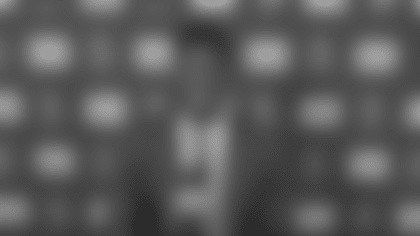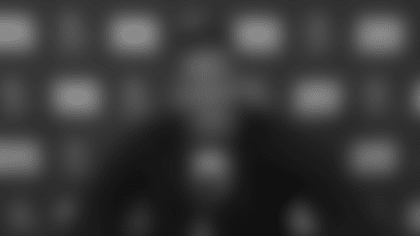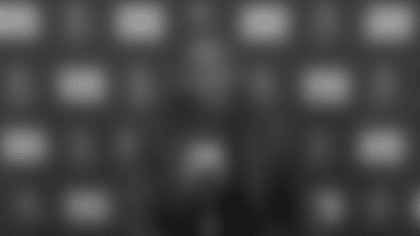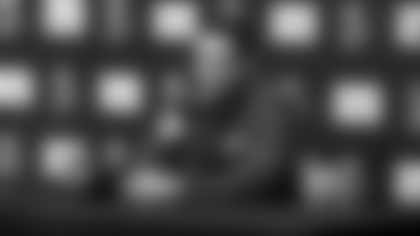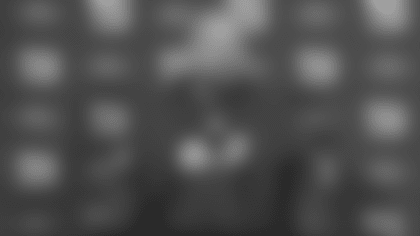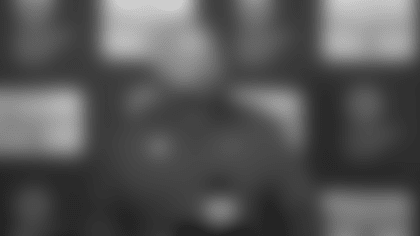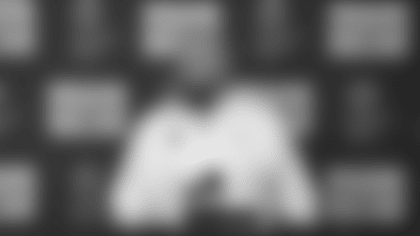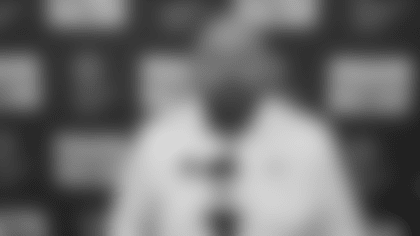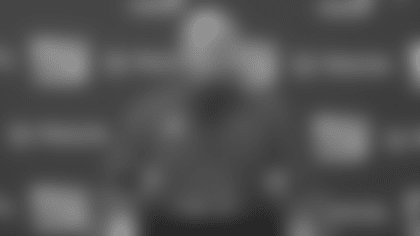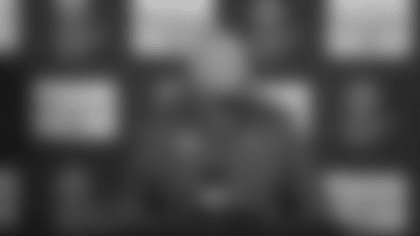Giants GM Dave Gettleman and Director of College Scouting Chris Pettit talk draft prep and strategy on a conference call with reporters
Dave Gettleman: Good afternoon. Hope everybody is still well, safe and healthy, including your family. As I spoke to you guys a few days ago and as I said then, the process we have is really going well. Everybody's really strapped it on and just done a great job. Our IT people Justin Warren, (Vice President of Information Technology) and his group, and Ty Siam (Football Operations/Analytics), Ed Triggs (Football Operations Coordinator) and Chris Pettit and the college scouts. Everybody has really chipped in and done a great job. Of course with Joe (Judge) and his staff as well. So we're really pleased with where we're at in the process. We're starting to tidy things up and put a bow on it. Like I said, everybody's putting in the old man's work. We're certainly going to be prepared. For what it's worth, I'm on with Chris Pettit our Director of College Scouting.
Chris Pettit: Hey guys, thanks for having me. I just wanted to give a thank you, since I didn't get to speak to you the other day, our First Responders, our medical professionals, all the essential workers who have helped us out at this time. Also, just want to thank, as Dave mentioned, our IT department, our trainers, our coaches, our scouts, have just been outstanding to set us up for next week. Really thankful for everybody.
Q: Given the impact that COVID-19 has had with cancelling pro days and all of that stuff, how much more valuable was it to you that Joe (Judge) hired a bunch of coaches from the college ranks and they have that vast network, not just the guys they coached but the guys that they coached against?
Gettleman: I'll tell you what, it's a big help. If you think about it, we hired (Former University of Alabama Running Backs Coach) Burton Burns, Joe hired Burton to coach the running backs and he's been at Alabama, so just think about all of the insight we get into the 'Bama kids. Obviously a number of our coaches are coming directly from the Southeastern Conference. So, you've got great contacts. It's very helpful, it gives you insight, all of the information. Our college scouts do a great job of digging out information, so between the information the college scouts have, and Burton, and fellas like that that we've hired that are coming from college, it sure really gives us a good in.
Q: Last time we spoke to you about the draft was probably back at the combine, you spoke about how you're open for business and considering trading back. I'm wondering with the logistics that are going to be in place on Thursday and the craziness and everything like that, how does that impact trade talks? Would you need to have a deal in place before you get to the first round, probably more than other years where you could do it on the fly?
Gettleman: I think really, obviously, we're sitting there with the fourth pick in the draft. It's got to happen pretty soon. I'm going to make calls and anybody that wants to move up I'm going to say, listen, we don't have much time, we can't fool around, and I'd like to get the parameters of deals in place, of the deal in place before we get on the clock. That would be the best thing. You know the NFL is going to have a mock draft on Monday, I'm sure you guys are aware of that. So, that'll be an interesting thing to see how it works. Again, the biggest piece is making sure that we, meaning the Giants, are coordinated in how we're going to approach the trade process. You know, we'll have two veteran guys on it, so I think we'll be fine. Obviously once you hit the third round you only have five minutes. It's going to be tight to try to do that, to try to trade back or trade up. I think what's going to happen, what this is going to force everybody to do, is do deals before their pick is up. So, let's say for the sake of discussion, someone calls, one team calls another team and says, "I want to trade up." They'll make a deal off the clock and then if the guy is there for the team that wants to move up, then they'll consummate the trade. So ,I think a lot of it's going to be done ahead of time.
Q: I'm sure you're made aware, obviously, that you've never traded back but you've traded up in the past. I'm curious, when you've made those trades do you use the Jimmy Johnson chart or do you guys have your own version of that? What do you use as a tool to determine what's a good value in a trade?
Gettleman: You know, it's funny. It's one of those if you think about, if you and I walk into a dealership and buy the same car, we're going to pay two different prices. But, if we feel good about it, who cares what you paid and you don't care what I paid. The Jimmy Johnson chart, people have moved off of it to a certain degree. A little bit here, a little bit there. So, when you talk to someone, it's one of those deals where you say to yourself, "Why don't we all agree on one chart?" That might make too much sense. So, there's three or four different variations and what you do is, if someone calls you up and their chart doesn't match yours and they make an offer and you don't think it's a good deal, you don't do it. It's that simple. If both groups are motivated, you'll come to some kind of conclusion.
Q: What is your Thursday night going to look like? Obviously you're going to be home, there's no one else around you from the Giants...you have to coordinate all of this, right? Can you take us through step-by-step, do you get the first word and do you then open it up to Dave and to Kevin (Abrams) and to the scouts and to Joe? How do you coordinate all of this?
Pettit: Really, everything is going to be done and treated the same way that we've done it our last two drafts together. Really nothing is different, just we're not in the same room. We've kind of gone over some scenarios already, we're going to be set up in different Zoom rooms and we'll be able to have the same conversations we've had every year in the past just that we're doing it from our homes, that's the only thing different. But, everyone's going to have the same voice that they've always had. It's been a good process. We've taken some steps, especially this last week, honing it to getting it right to where we feel comfortable to make the right decision in the same way we would if we were sitting in our office in East Rutherford.
Q: I know you've rethought a couple of things you used to think, like negotiating contracts in season. I'm wondering if you've given any thought to rethinking the best player available. This is a hypothetical, if a guy is a 98 (grade) on your board, is he the pick? Or if a guy is a 96 (grade) but at a more valuable position of need can he be the pick? Will you consider need a little bit more than you have in the past?
Gettleman: When you're splitting hairs, it's okay to take the 96 instead of the 98. Because really what you're doing is you're splitting hairs. It's when you have a 98 and then you've got an 88. That's not splitting hairs anymore. Even if the 88 is the bigger position of need, once you start reaching you've created issues for yourself. Part of it too, you can never have too many great players at one position. That doesn't scare me, it doesn't bother me. What you're trying to do is build the best roster you can. So, when you're talking a 96 to a 98, that to me is not a big deal. It's when you start dropping, when you have precipitous drops in your evaluation, that's when you get into trouble.
Q: There is usually a top tier of players, around where is that point that you guys think there is a drop off in this draft?
Gettleman: This is a pretty good draft. It really is. There's a couple of positions, there's a few positions that are really thick with players. You can't put a number on that. Are you asking me, does it really drop off after 15 players, does it really drop off after 25 players, I can't really speak to that. But, I just know that it's a good draft and really and truly as we've set our board just taking a look at it, we've got about the same number of players in every round that we had in last year's draft, which was a hell of a draft. You can't say that if you're not picking in the top 15 you're in trouble. You can't say that.
Q: Is there a point at the top where those guys are so good that maybe there's a group of five, six, eight or ten that are significantly graded than everybody else?
Gettleman: No, we've got a pretty good first round in terms of a spread. It's a good group. It's a really good group. So, no there's not. There's not two players, ten players...I can't give you a number.
Q: I'm curious your thoughts overall on the offensive tackle class and when you're evaluating these guys how much versatility plays into that? Does it matter that a guy is able to play both left and right or are you just looking to try and come away with the best guy at that position?
Gettleman: Well, I think that versatility certainly doesn't hurt. But, it's a thick group. I think I mentioned it on Monday. There are tackles throughout the draft, throughout the vertical...we call it our vertical. There's a lot of talent there. Is it helpful if a guy played both? Absolutely. Is it fatal if he's only played one? Certainly not. If you have a tackle need and need meets value, then you know you work through it. You say to yourself, "This is a good tackle," whether he's a left or a right and you take him. It's certainly no different than any other position. If he's a good corner, whether he's a right or a left, a good linebacker, whatever -- you just take the guy. So to answer your question, versatility is really a plus but it's not fatal if a guy is not.
View photos of every player projected to the Giants in mock drafts one week ahead of the 2020 NFL Draft.
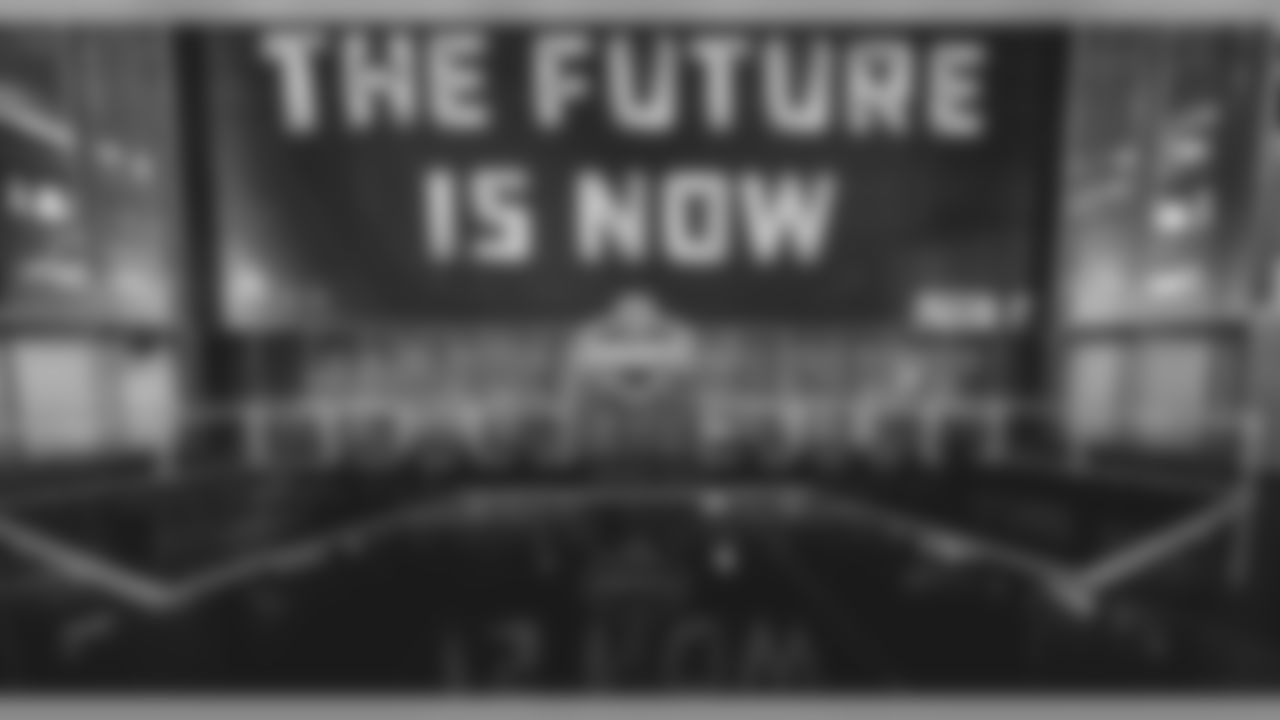
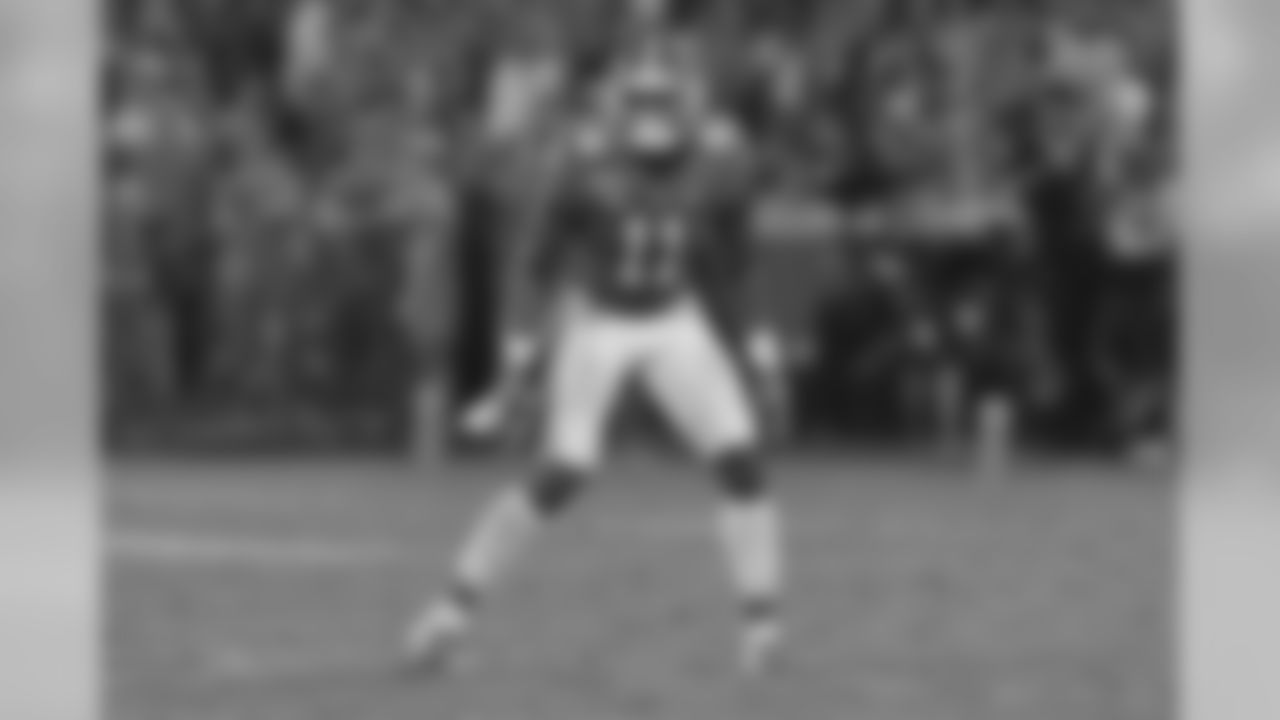
Clemson LB/S Isaiah Simmons
(AP Photo/Richard Shiro)
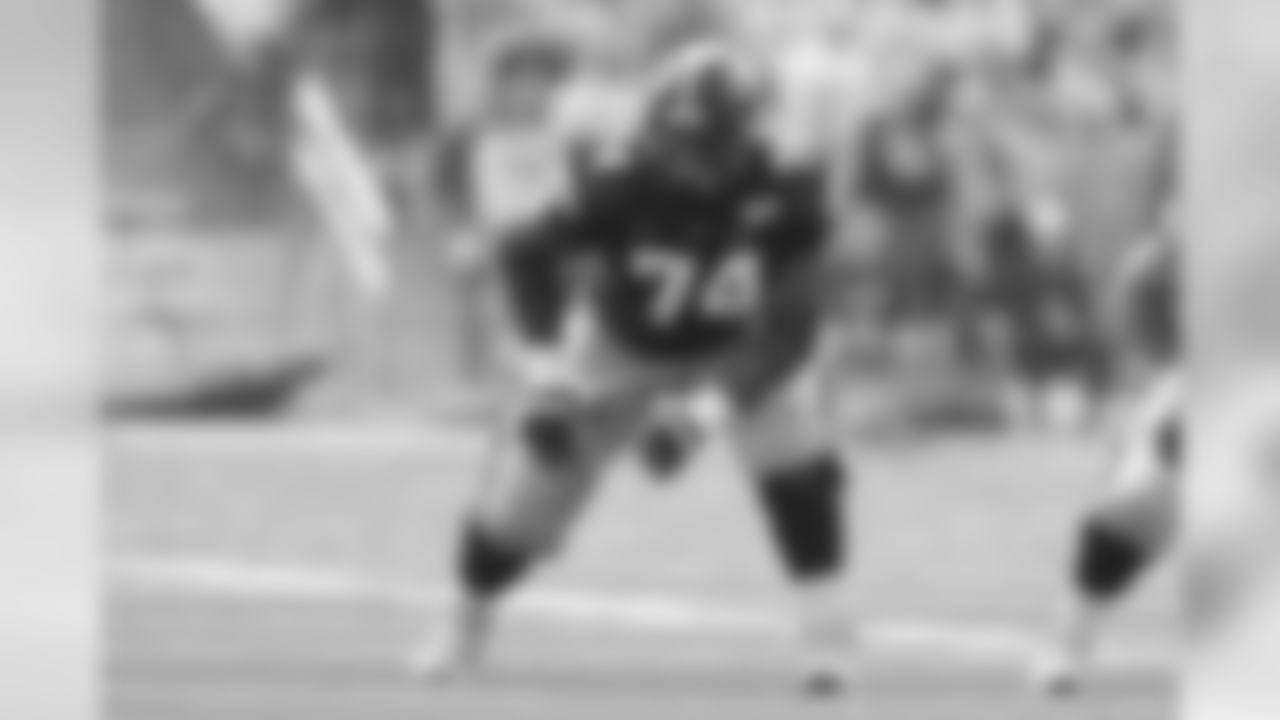
Iowa OT Tristan Wirfs
(AP Photo/Charlie Neibergall)
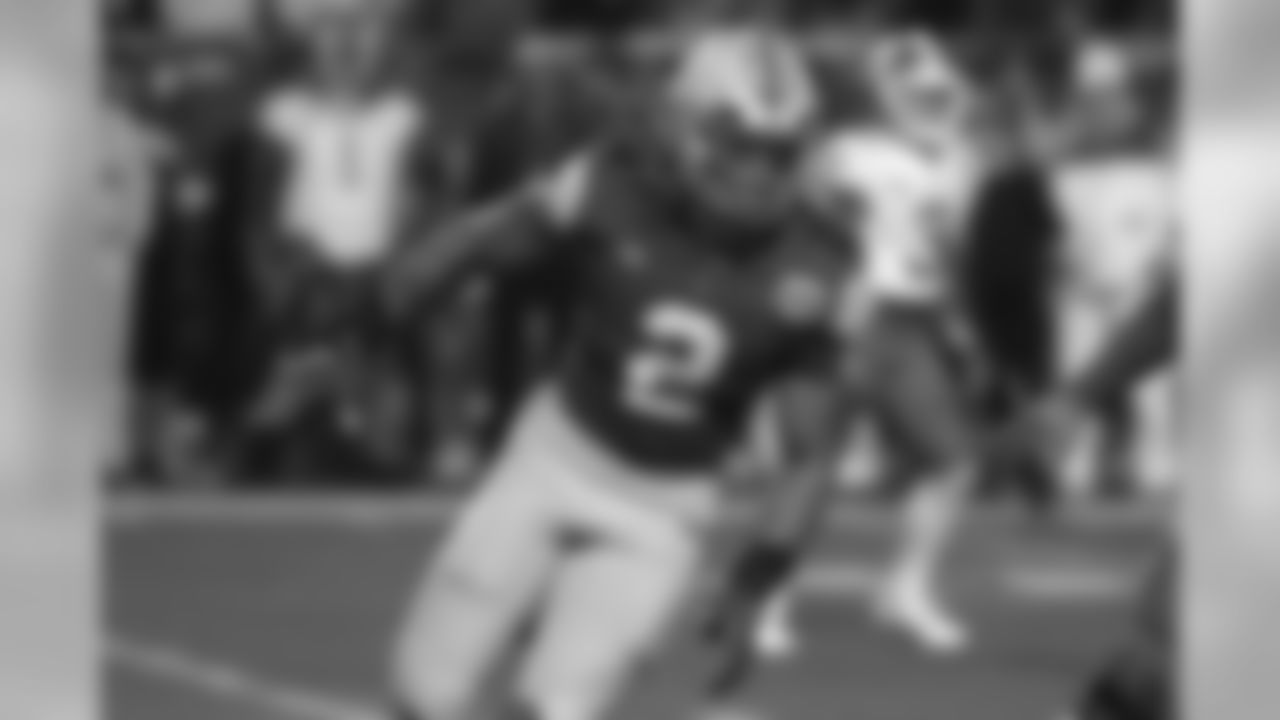
Ohio State EDGE Chase Young
(AP Photo/Rick Scuteri).
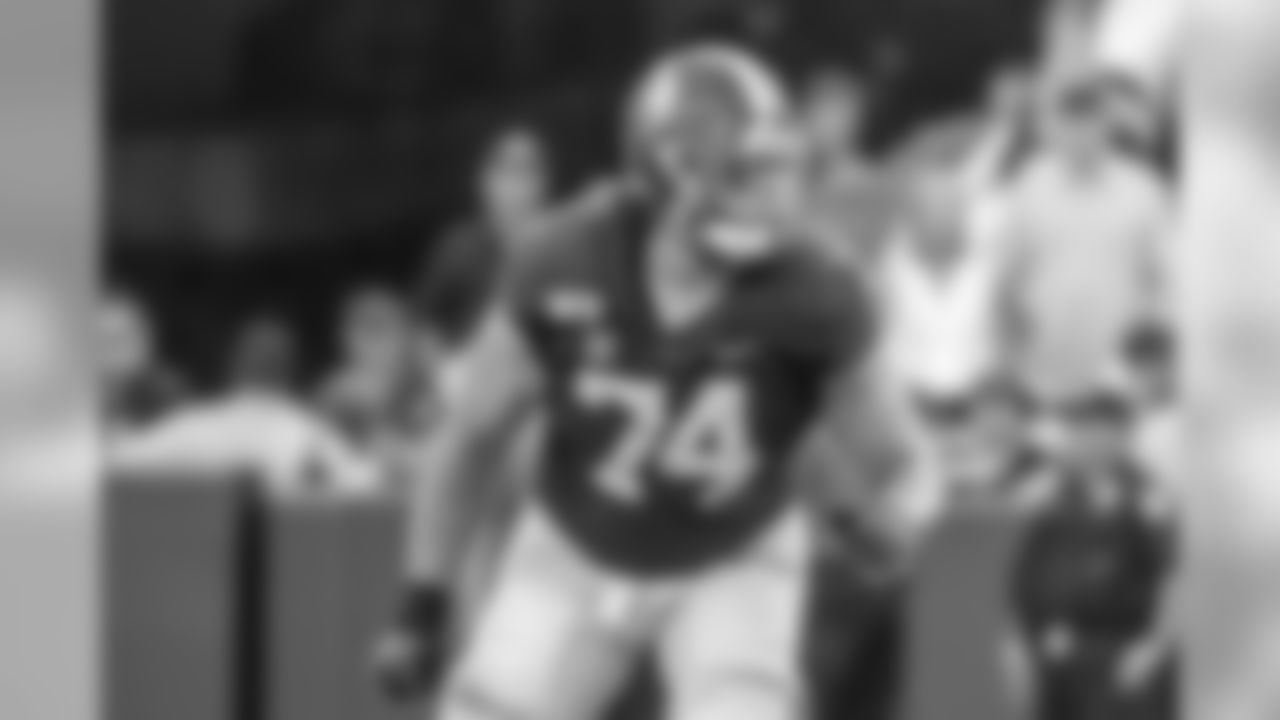
Alabama OT Jedrick Wills
(AP Photo/Vasha Hunt, File)
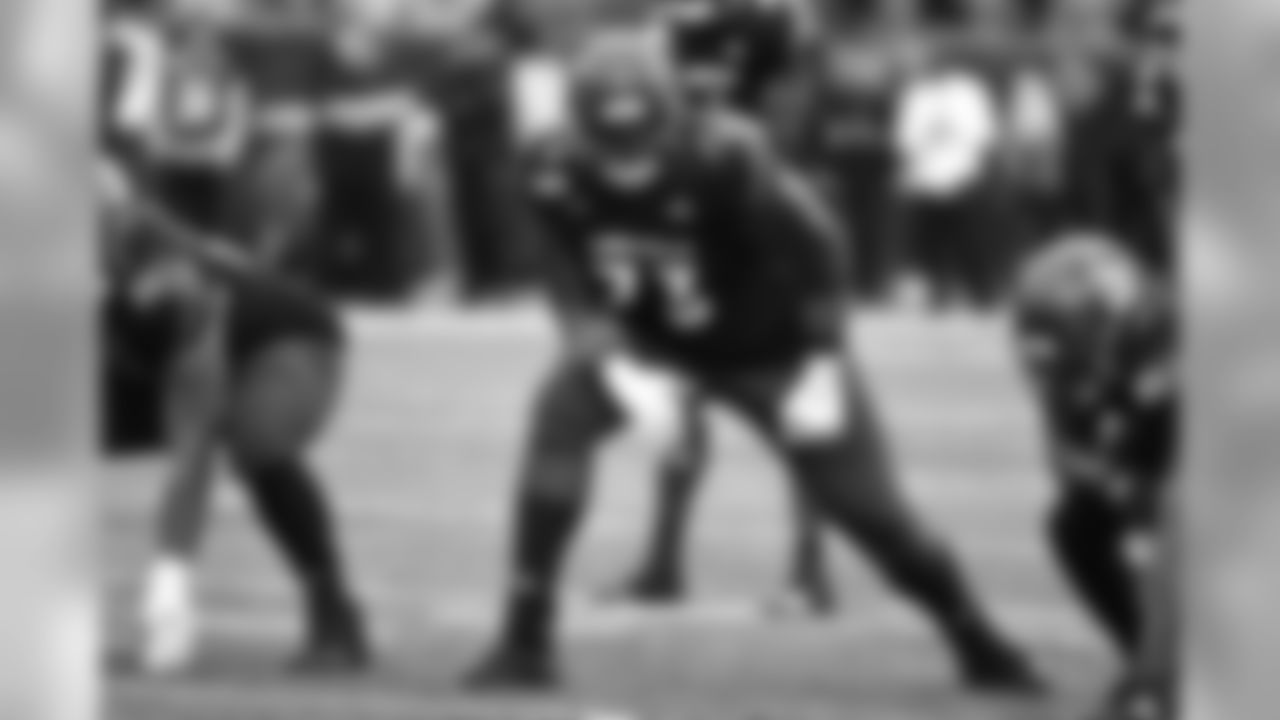
Louisville OT Mekhi Becton
(AP Photo/Timothy D. Easley)
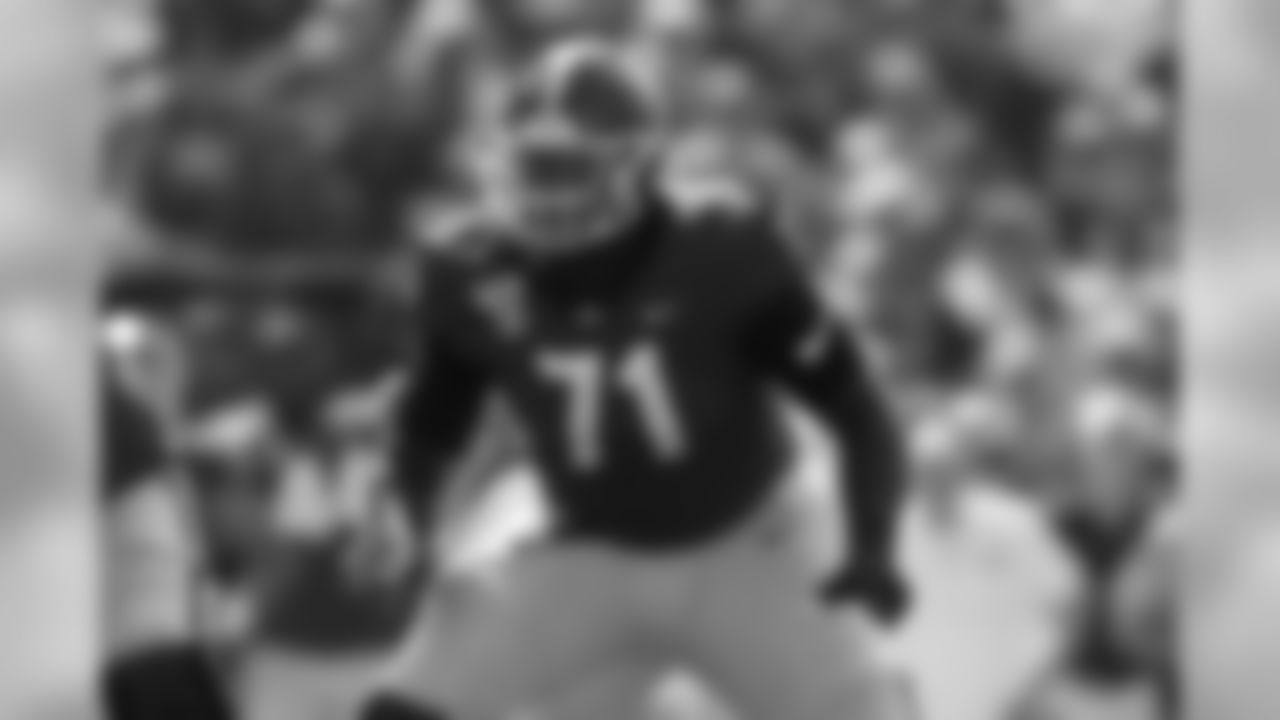
Georgia OT Andrew Thomas
(AP Photo/John Bazemore, File)
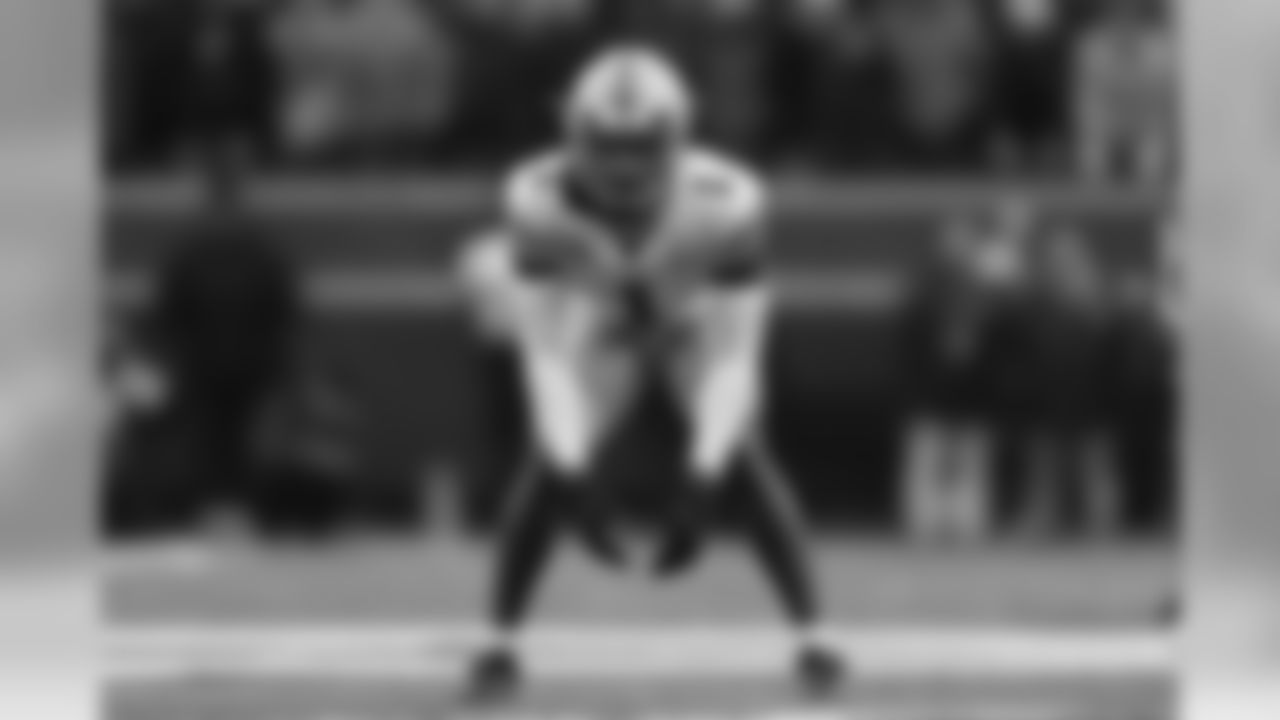
Ohio State CB Jeff Okudah
(AP Photo/Paul Sancya)
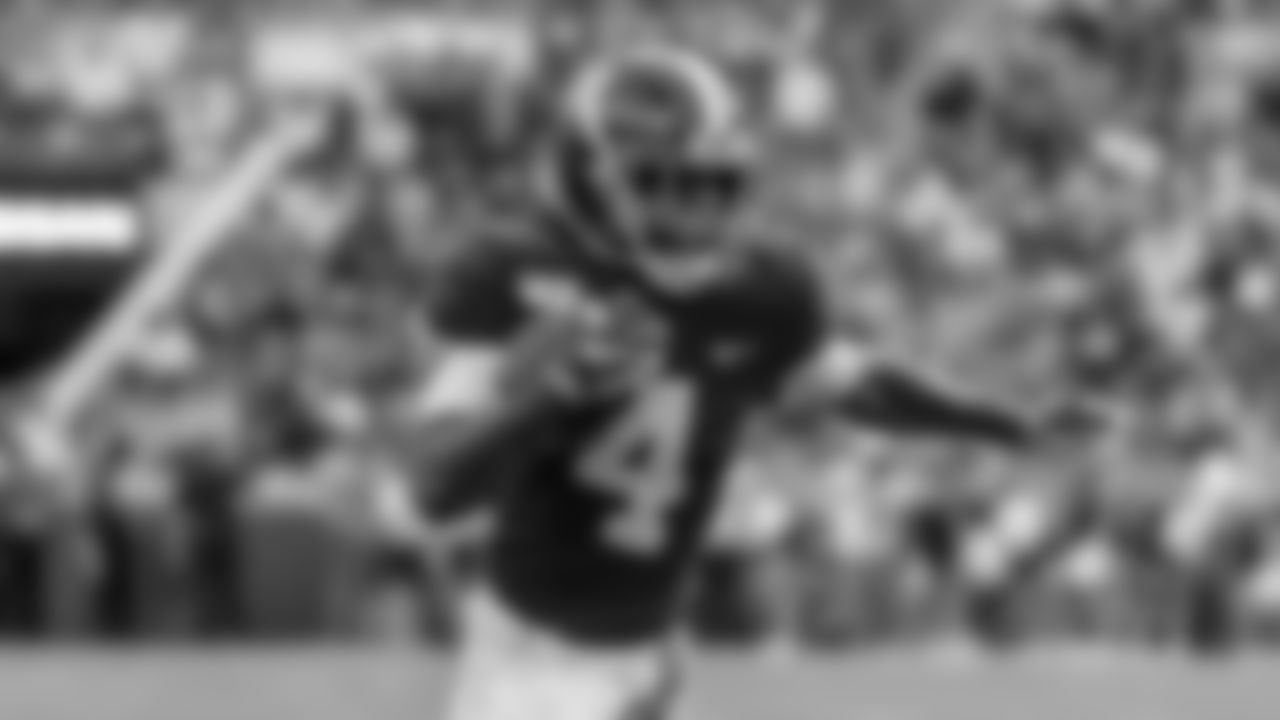
Alabama WR Jerry Jeudy
(AP Photo/Vasha Hunt)
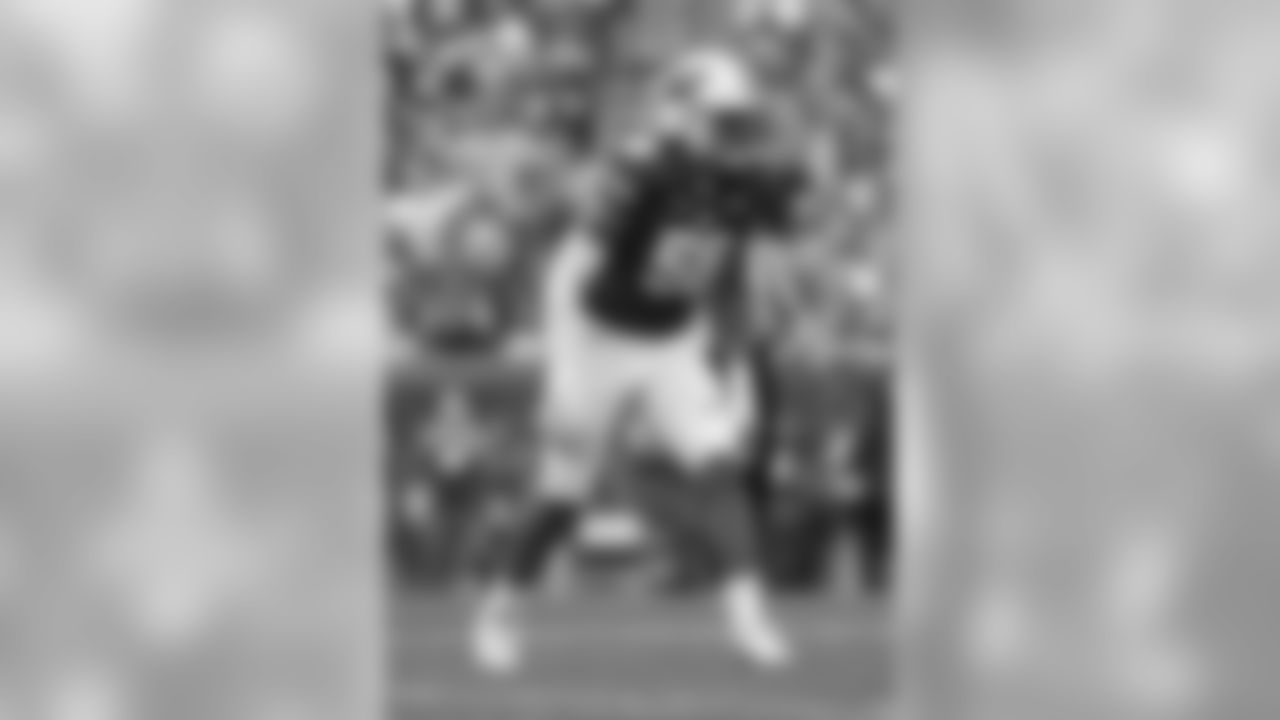
Wisconsin EDGE Zack Baun
(AP Photo/Morry Gash)
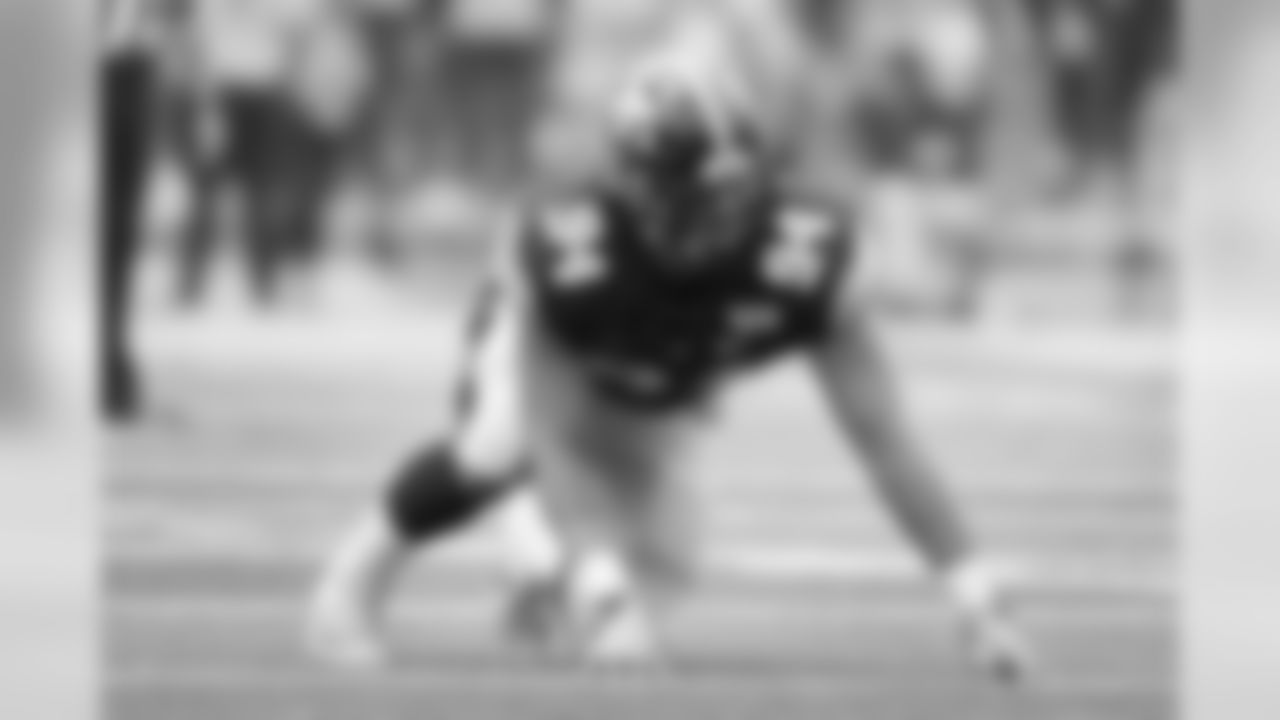
Iowa EDGE A.J. Epenesa
(AP Photo/Charlie Neibergall)
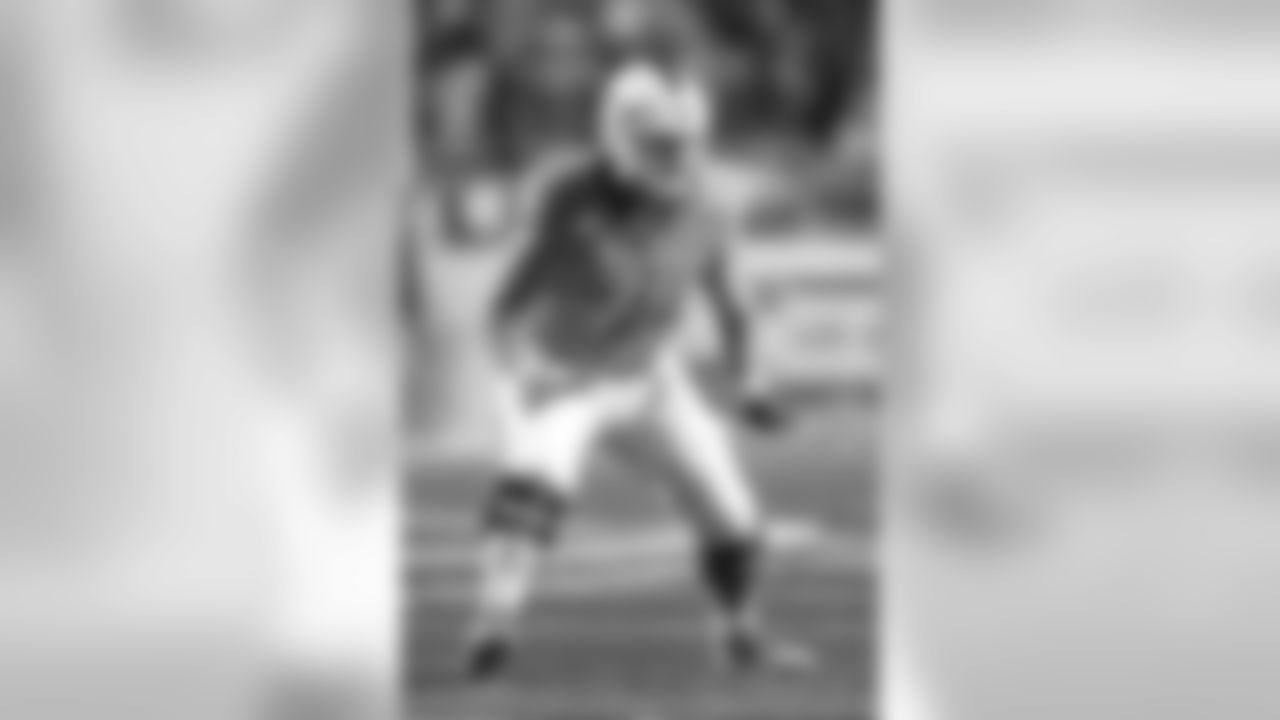
Boise State OT Ezra Cleveland
(AP Photo/Steve Conner)
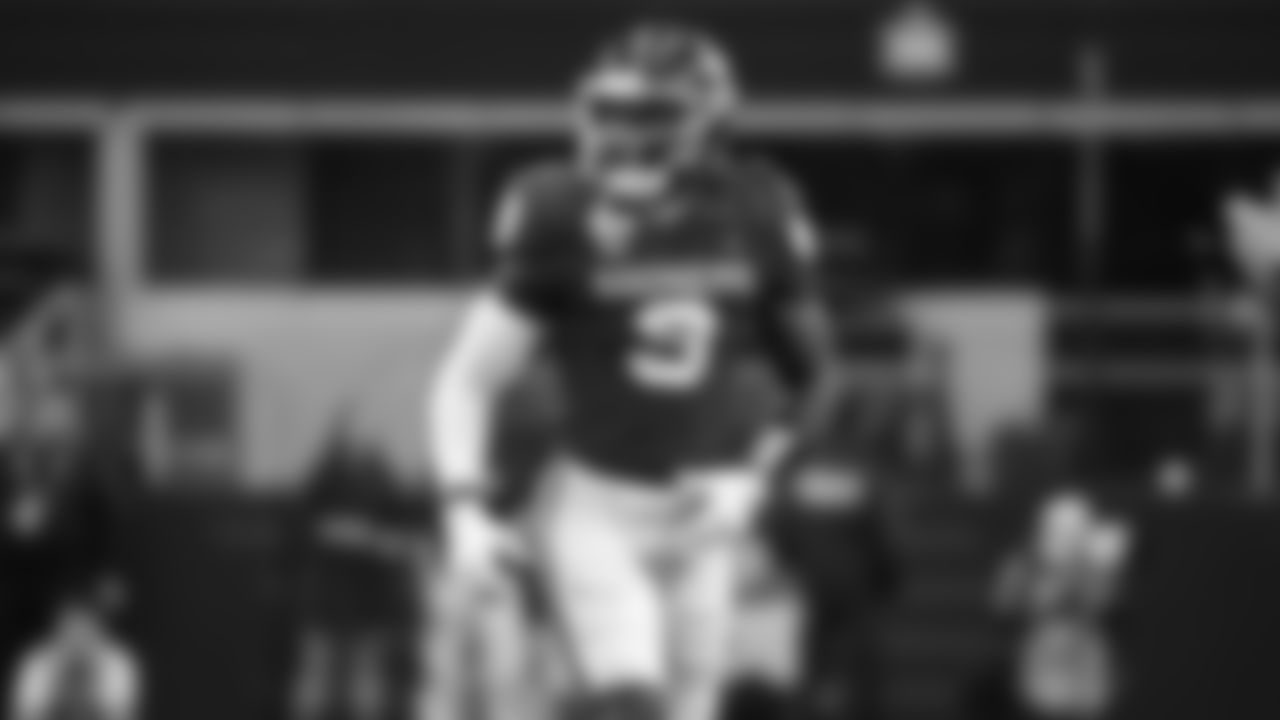
Oklahoma LB Kenneth Murray
(AP Photo/Brandon Wade)
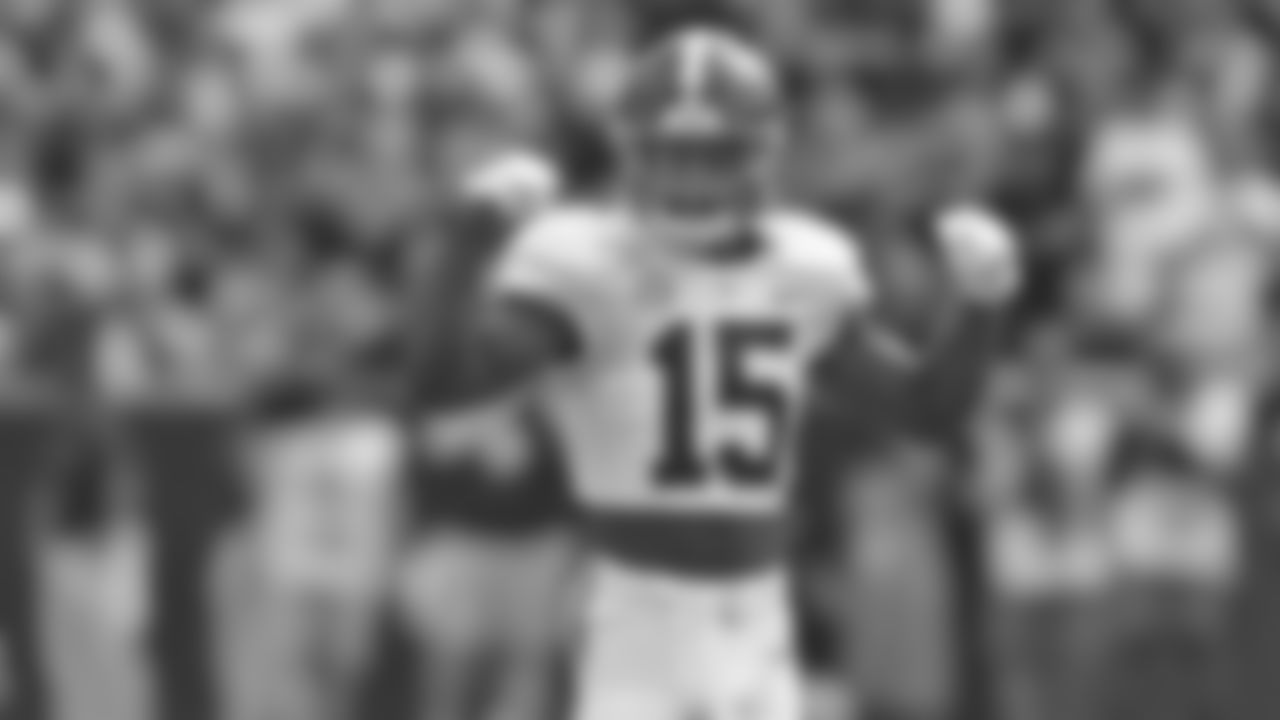
Alabama S Xavier McKinney
(AP Photo/Richard Shiro)
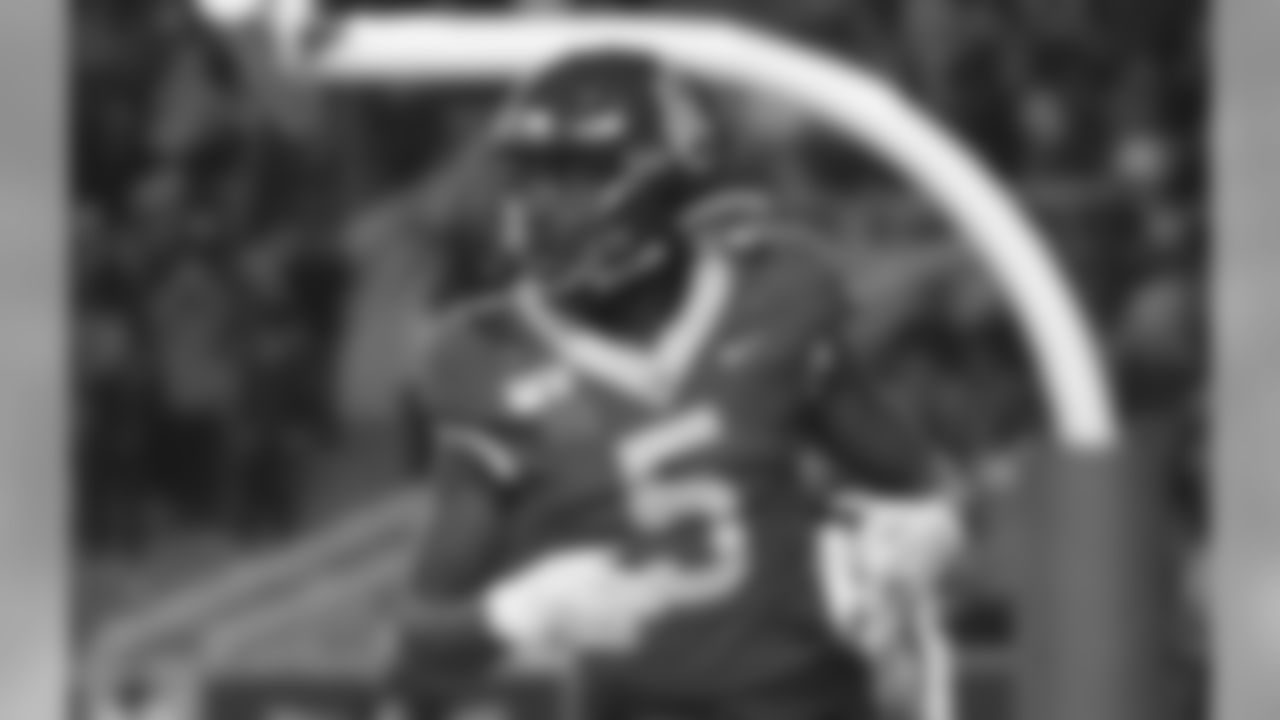
Baylor WR Denzel Mims
(AP Photo/Jerry Larson)
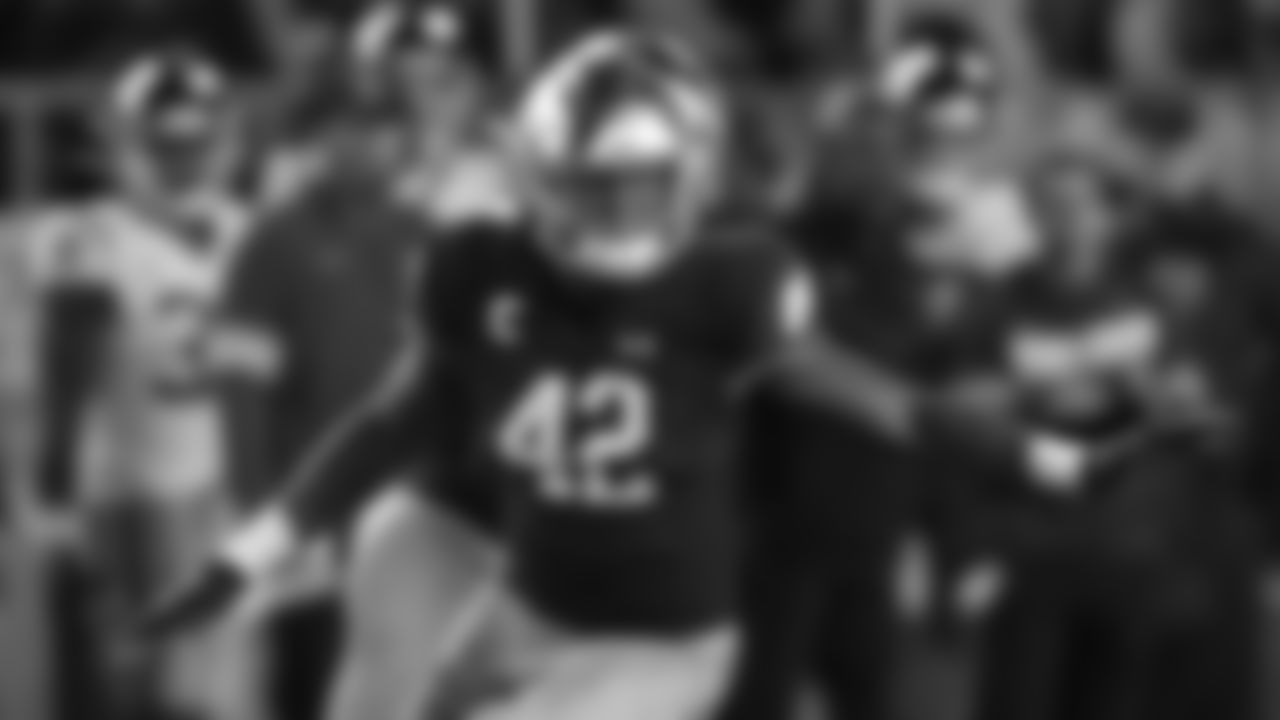
Notre Dame EDGE Julian Okwara
(AP Photo/Paul Sancya)
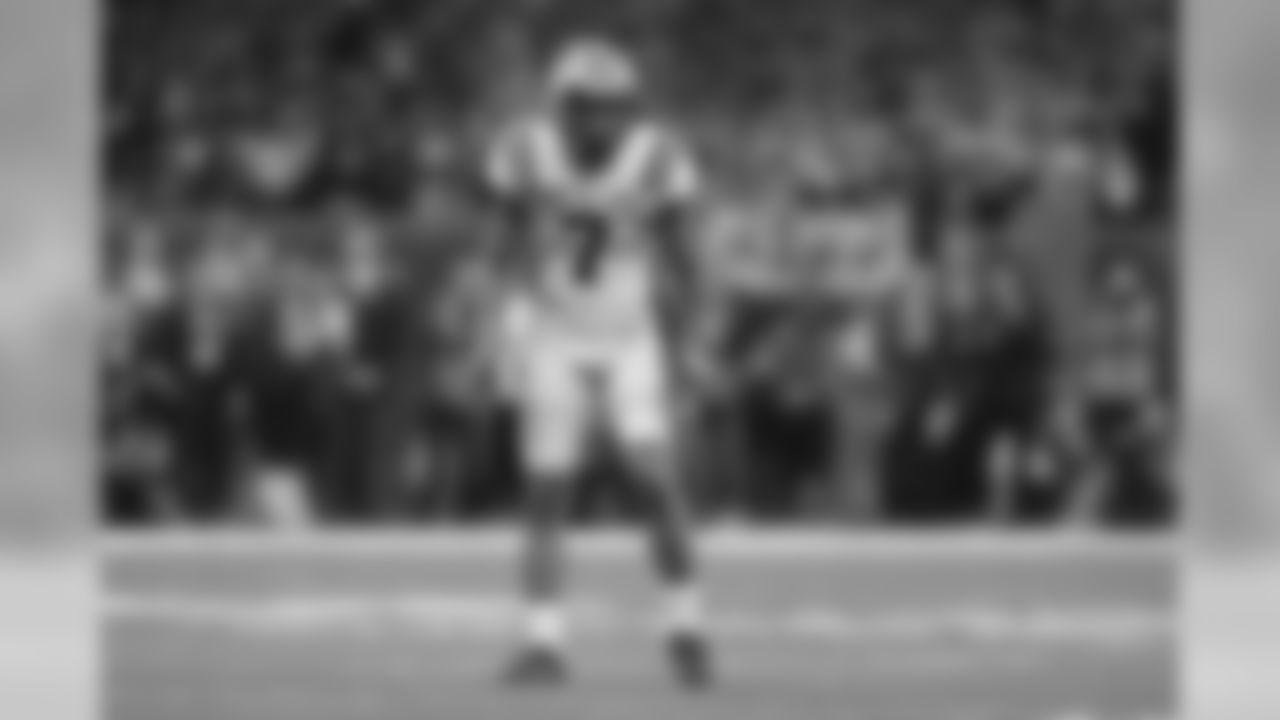
LSU S Grant Delpit
(Logan Bowles via AP)
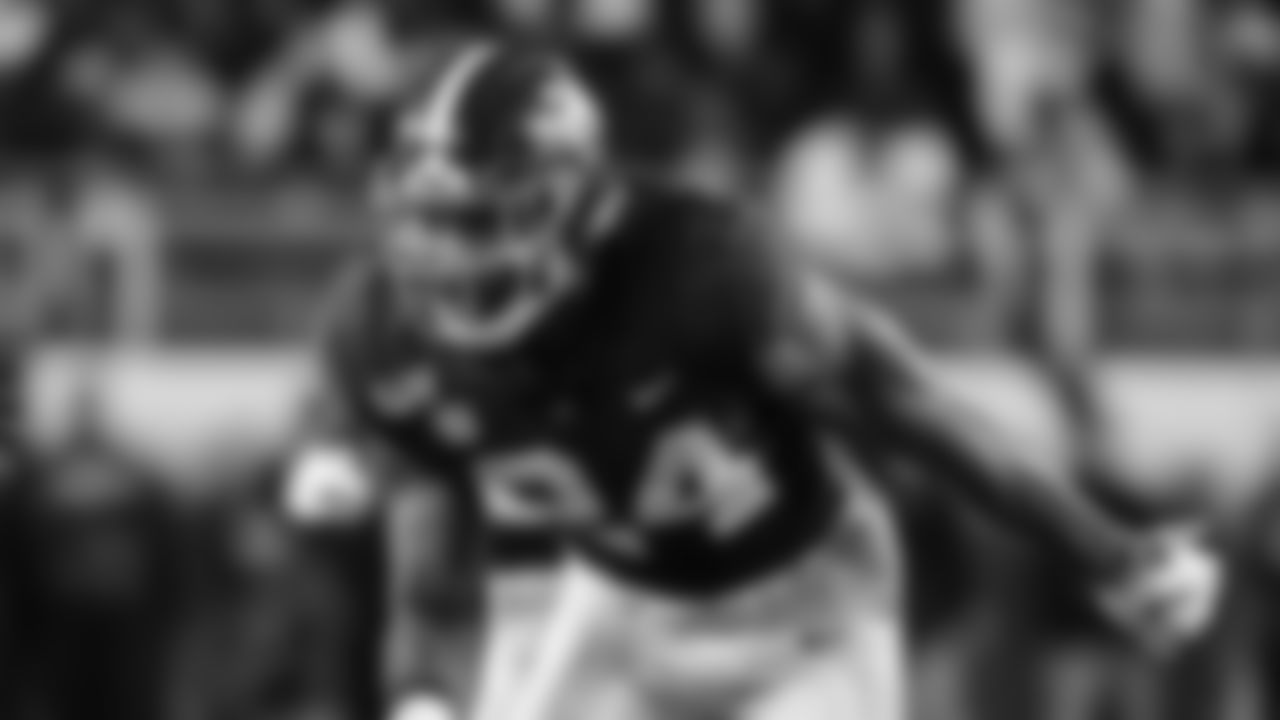
Alabama EDGE Terrell Lewis
(AP Photo/Vasha Hunt)
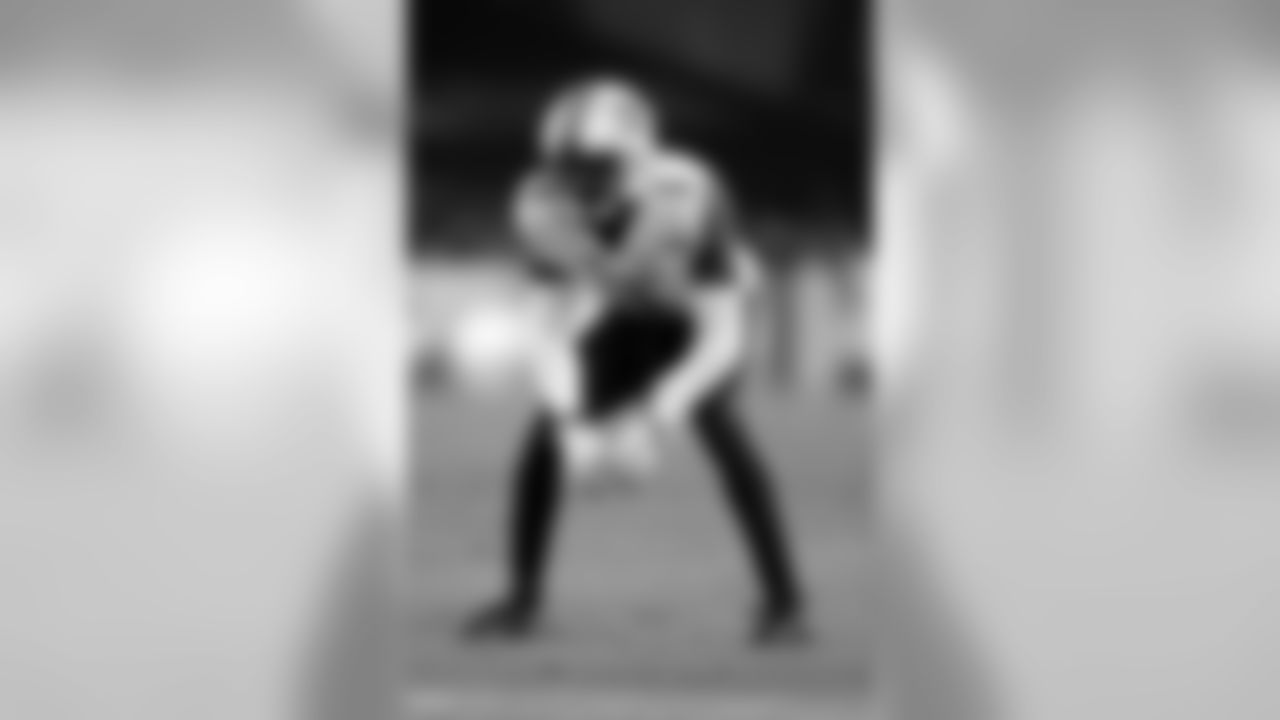
Utah CB Jaylon Johnson
(AP Photo/Marcio Jose Sanchez)
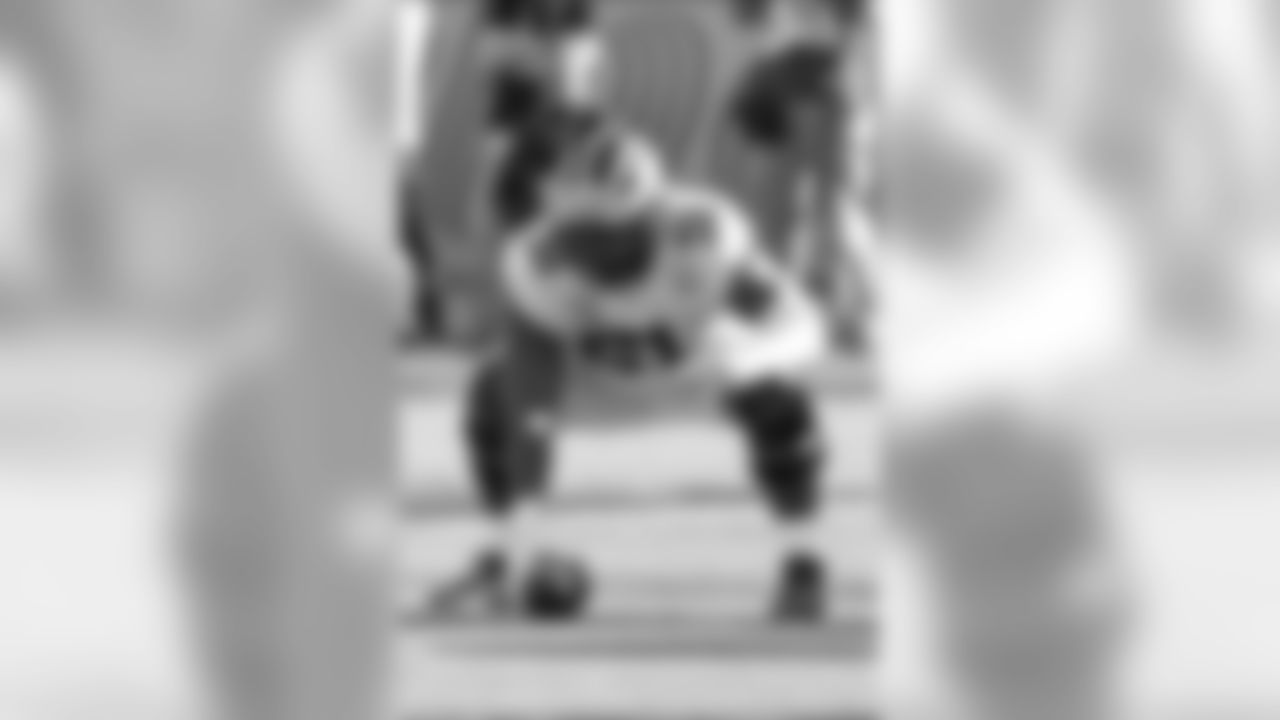
Michigan C Cesar Ruiz
(AP Photo/John Raoux)
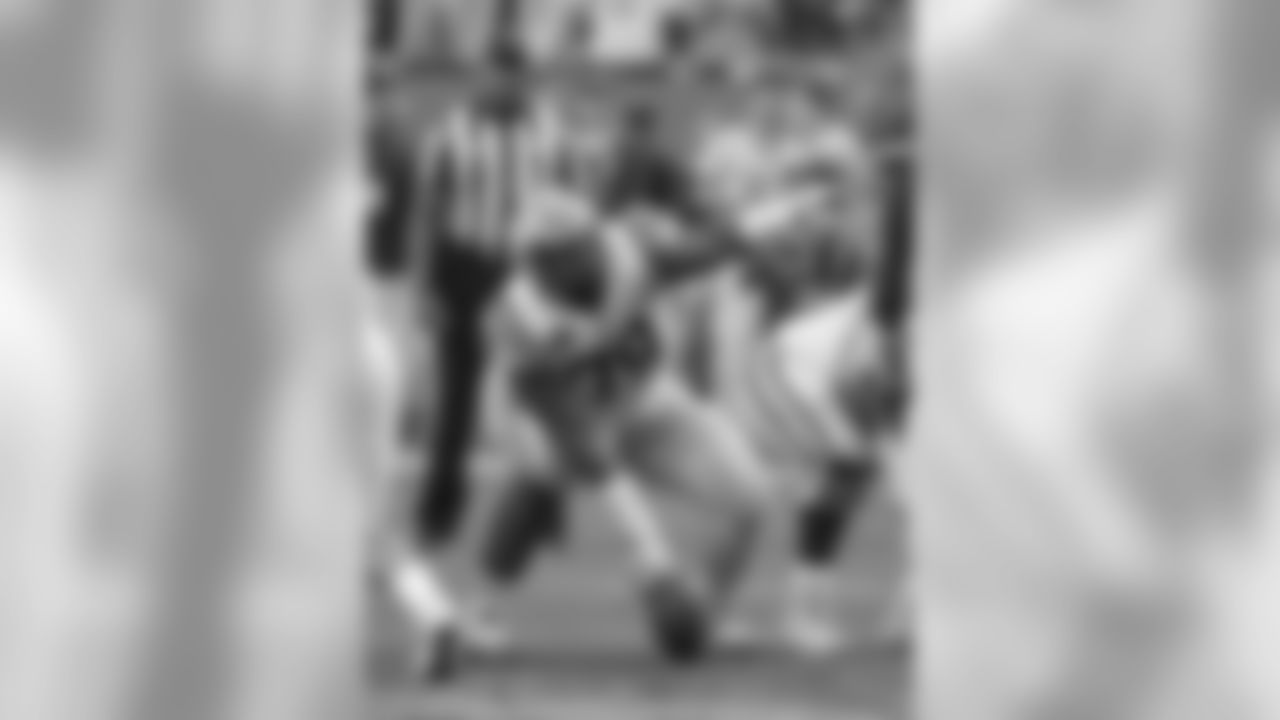
LSU C Lloyd Cushenberry III
(AP Photo/Rick Scuteri)
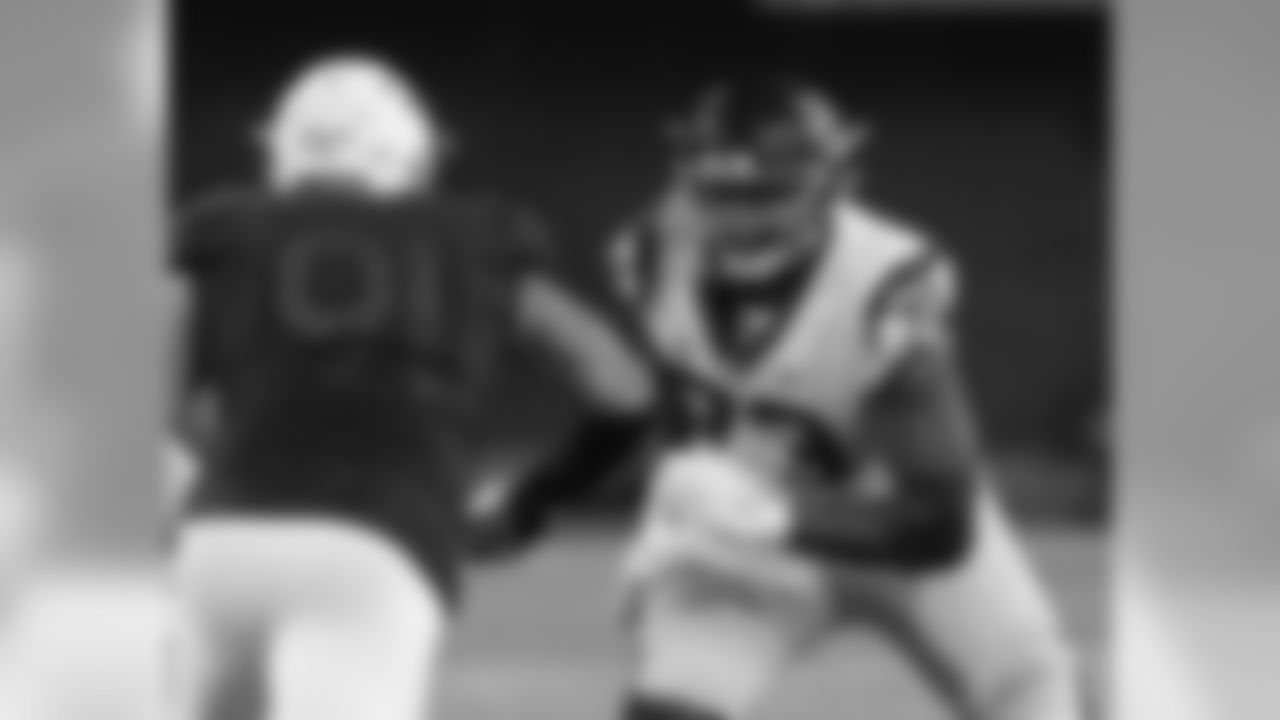
USC OT Austin Jackson
(AP Photo/Rick Scuteri)
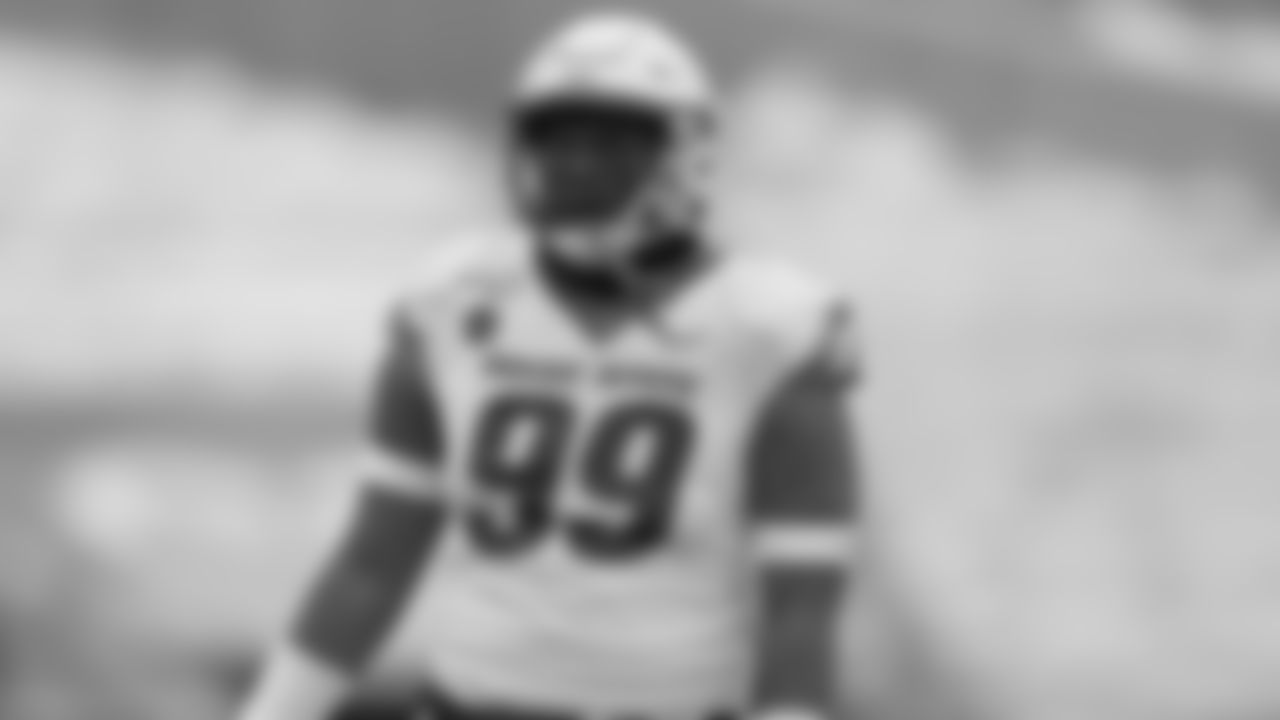
Boise State EDGE Curtis Weaver
(AP Photo/David Zalubowski)
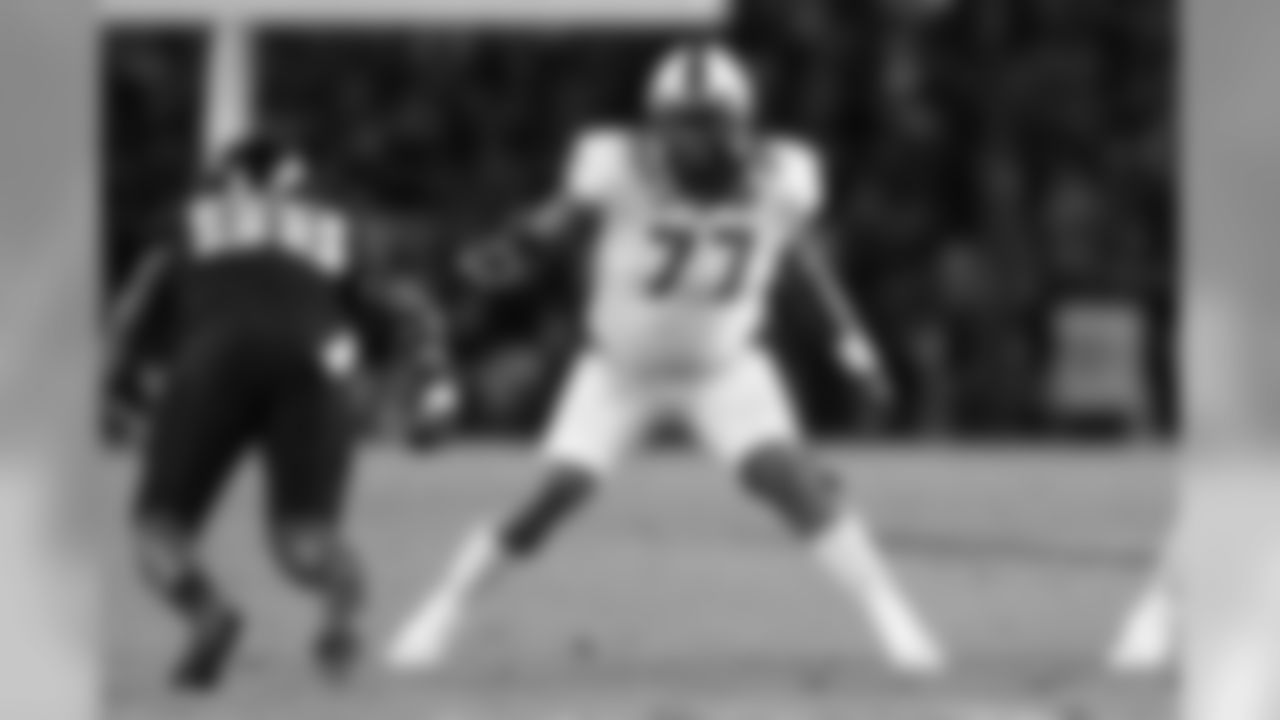
TCU OT Lucas Niang
(AP Photo/Michael Conroy)
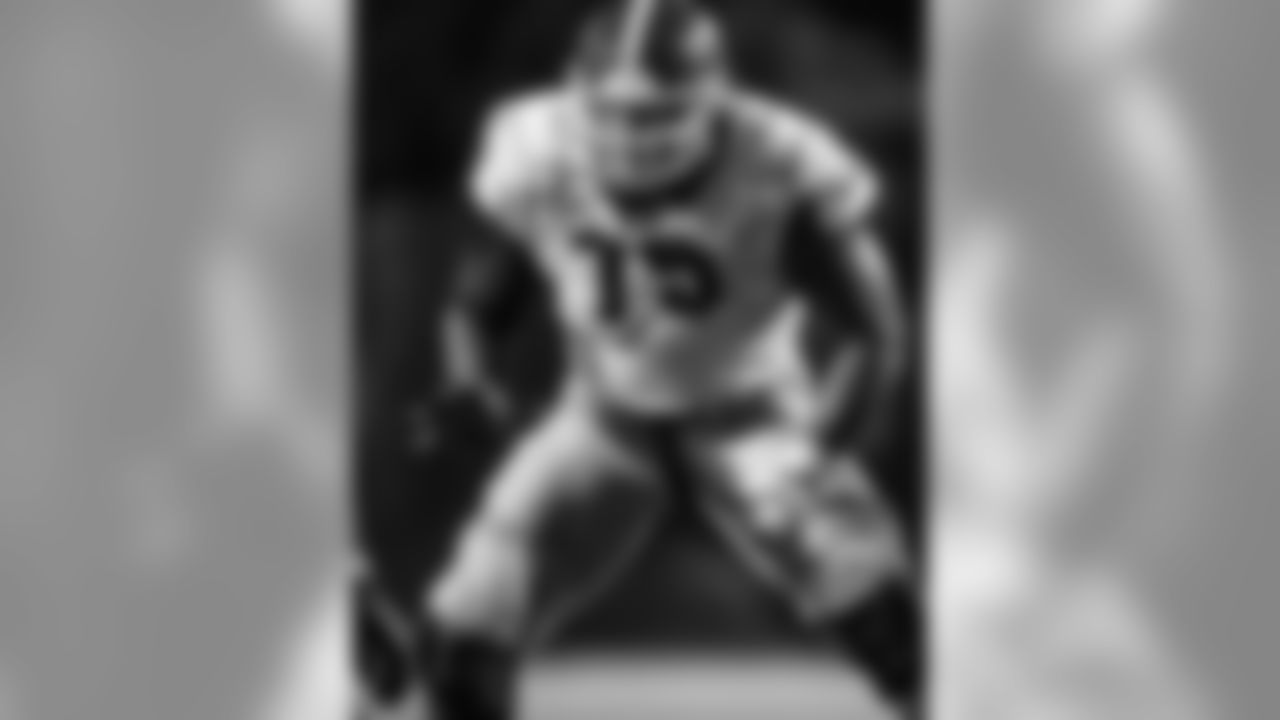
Georgia OT Isaiah Wilson
(AP Photo/Brett Carlsen)
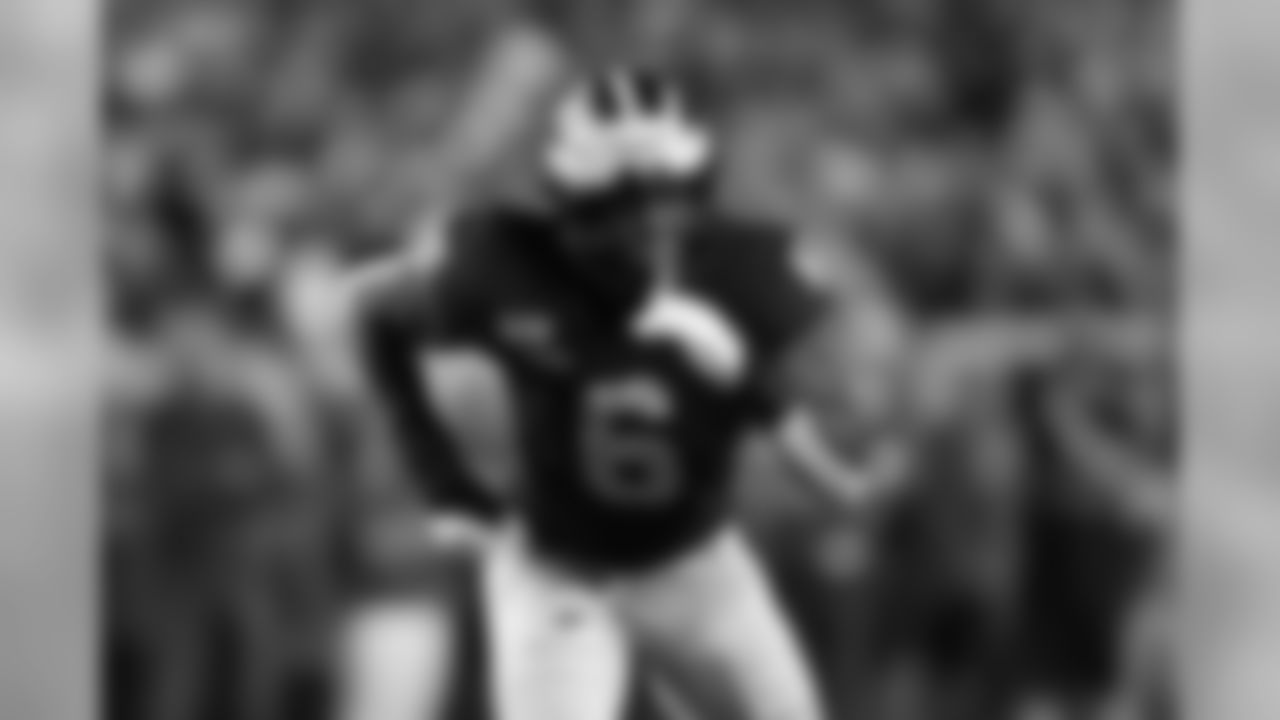
Michigan EDGE Josh Uche
(AP Photo/Paul Sancya)
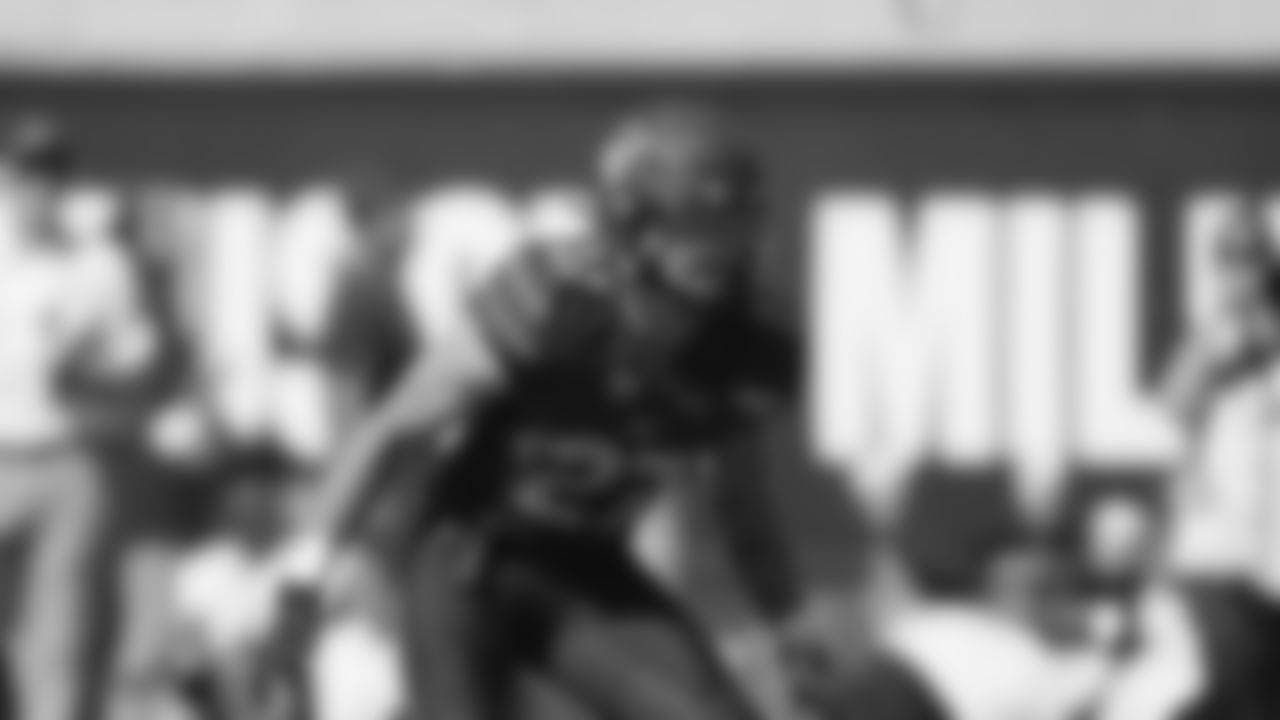
California S Ashtyn Davis
(AP Photo/Tony Avelar)
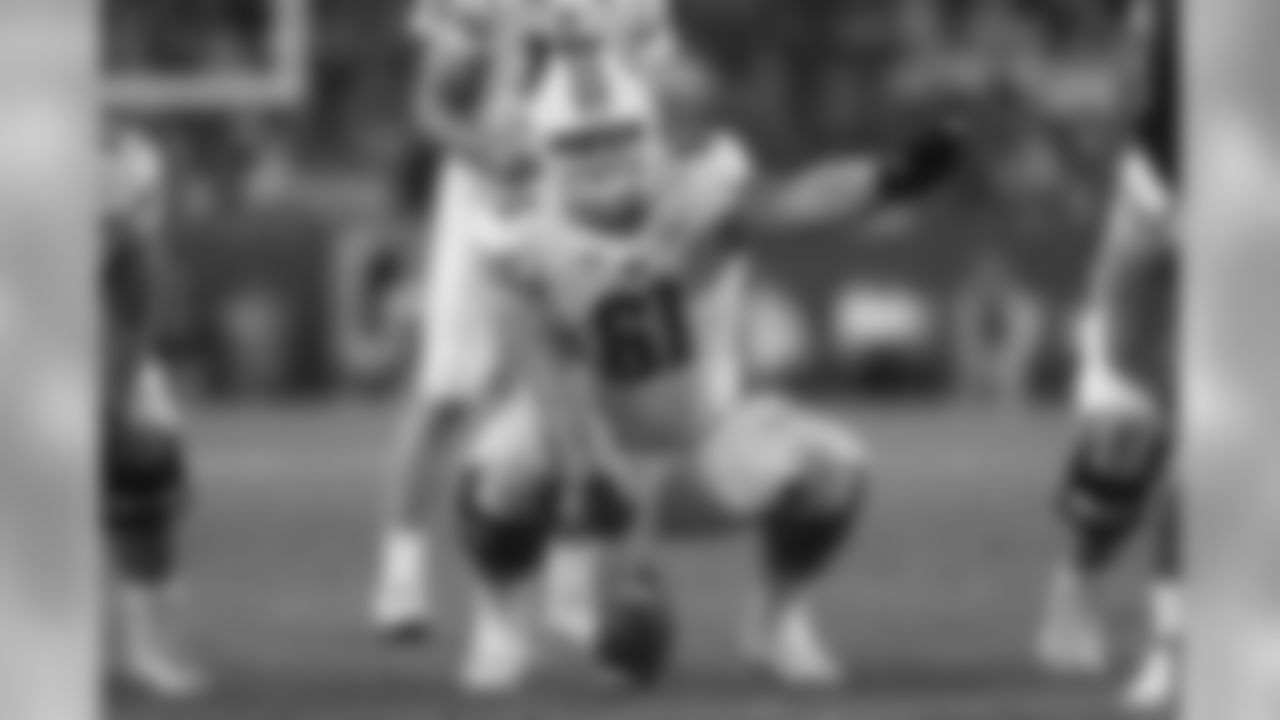
Wisconsin C Tyler Biadasz
(AP Photo/Mark Lomoglio)
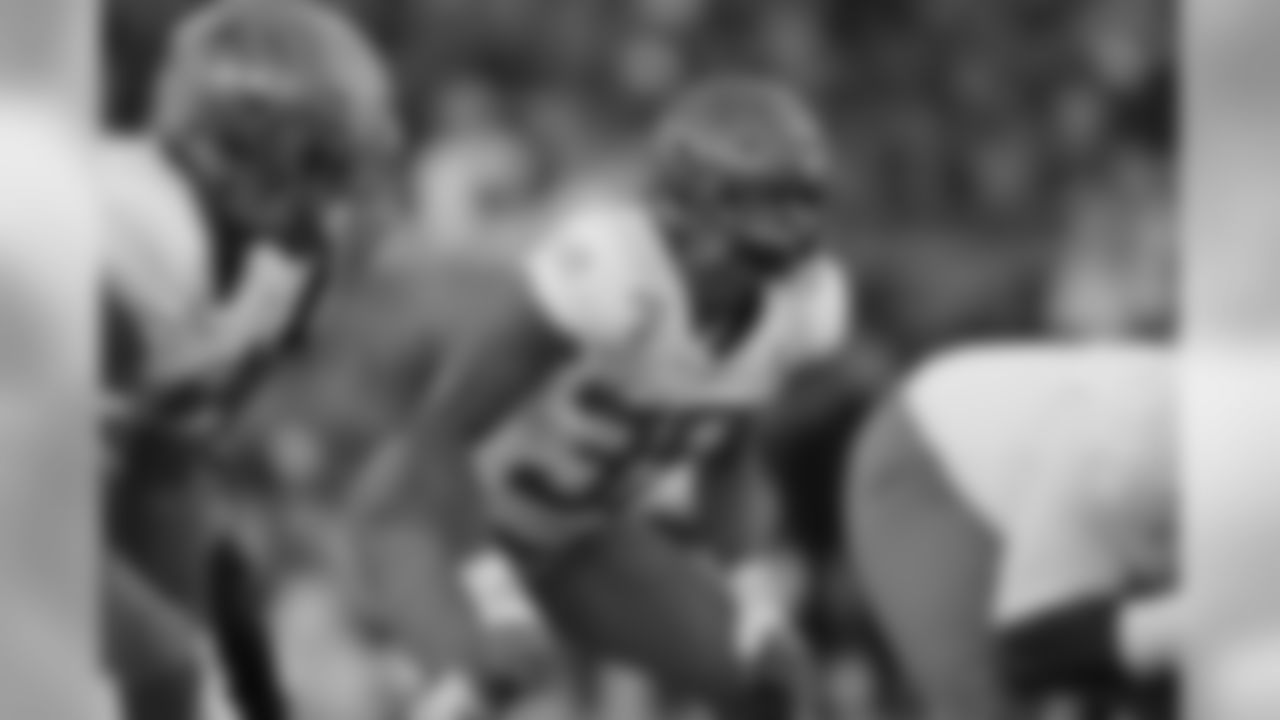
Oregon LB Troy Dye
(AP Photo/Tony Avelar)
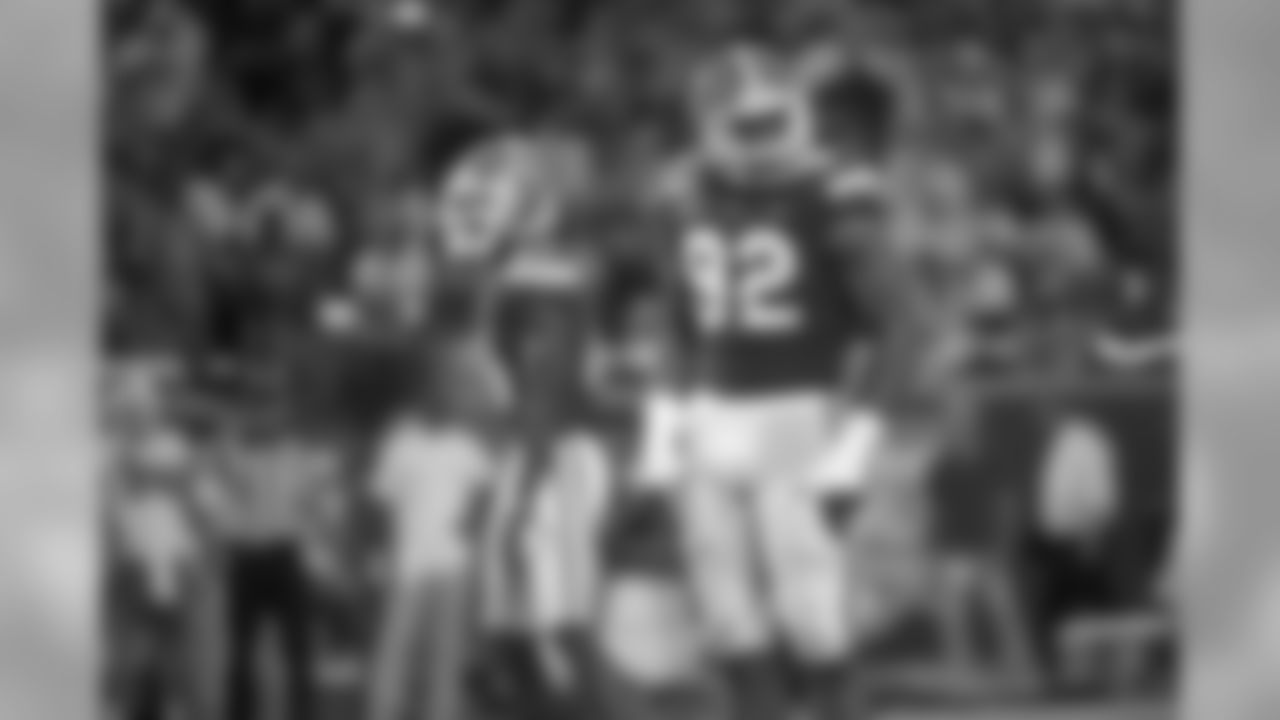
Florida EDGE Jabari Zuniga
(AP Photo/Phelan M. Ebenhack)
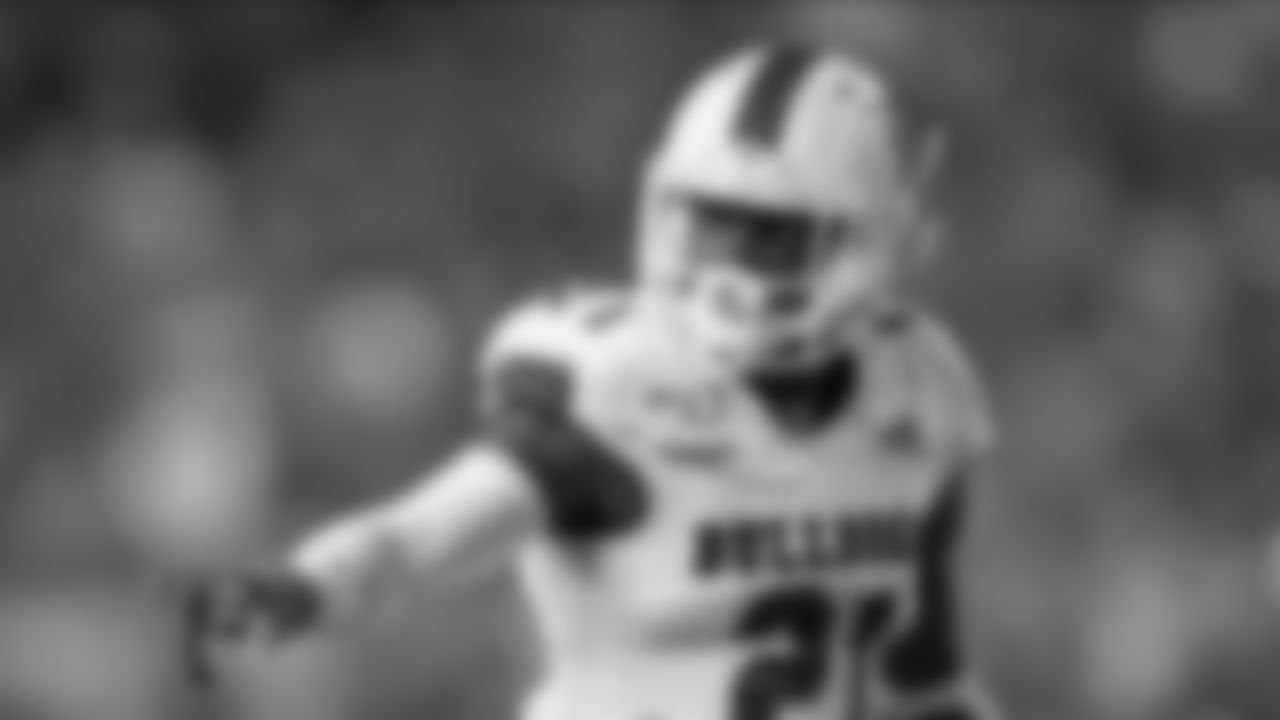
Louisiana Tech CB Amik Robertson
(AP Photo/Chuck Burton)
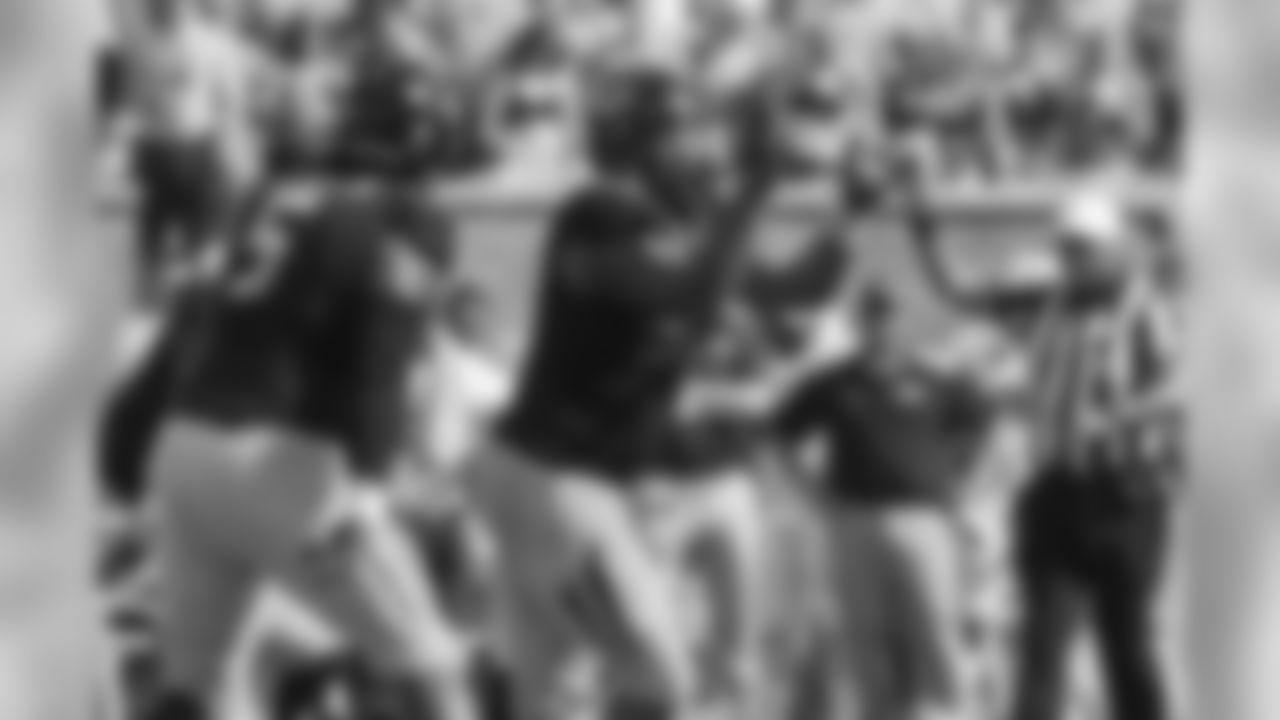
Missouri DT Jordan Elliott
(AP Photo/L.G. Patterson)
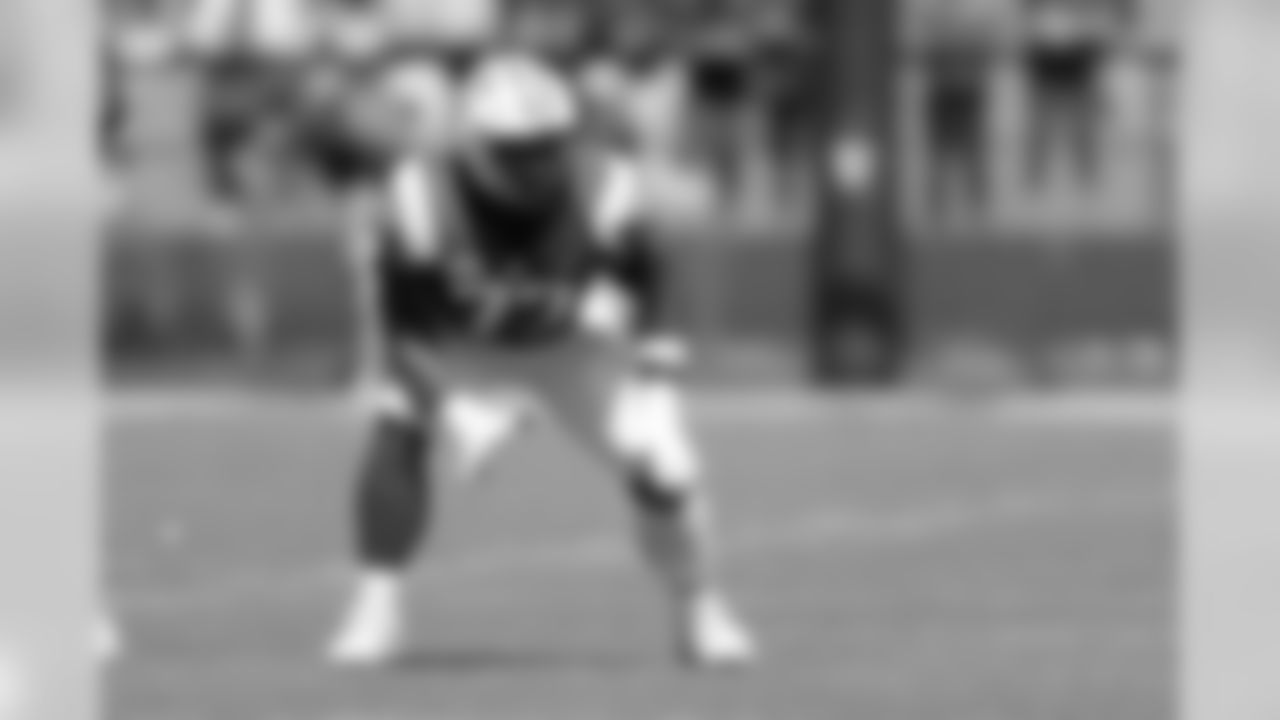
LSU OT Saahdiq Charles
(AP Photo/Mark Humphrey)
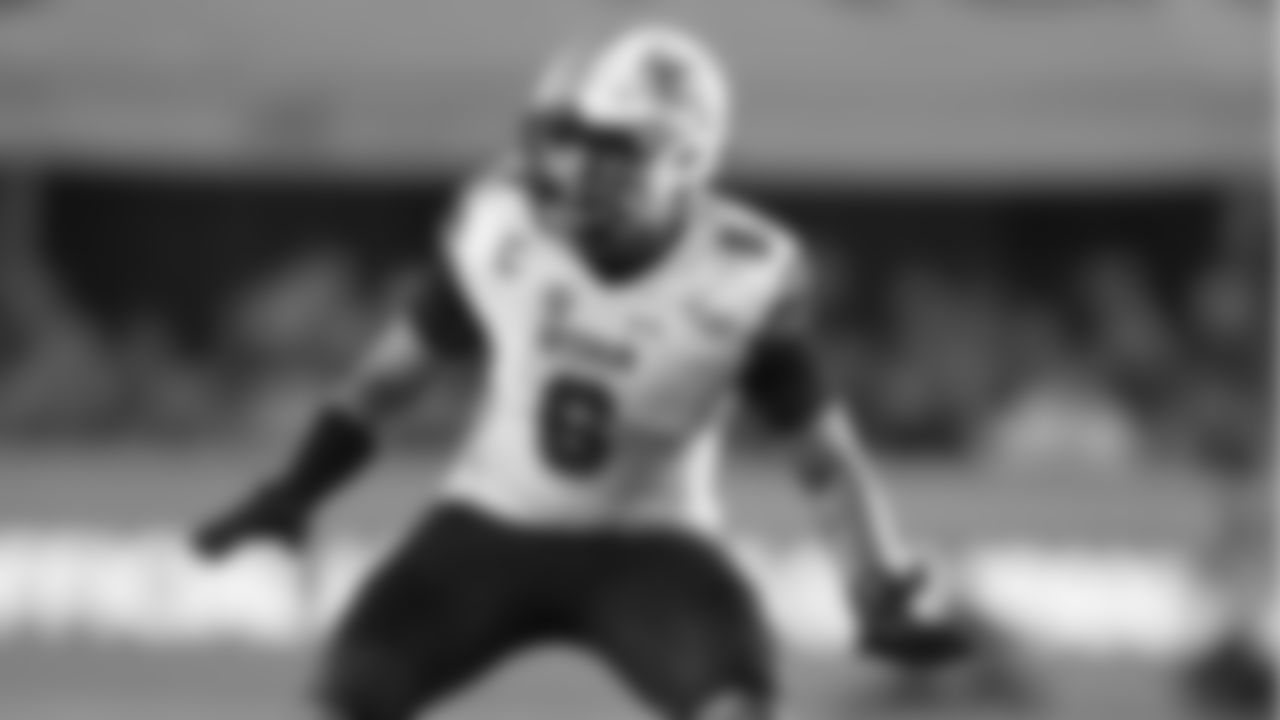
Utah EDGE Bradlee Anae
(AP Photo/Kyusung Gong)
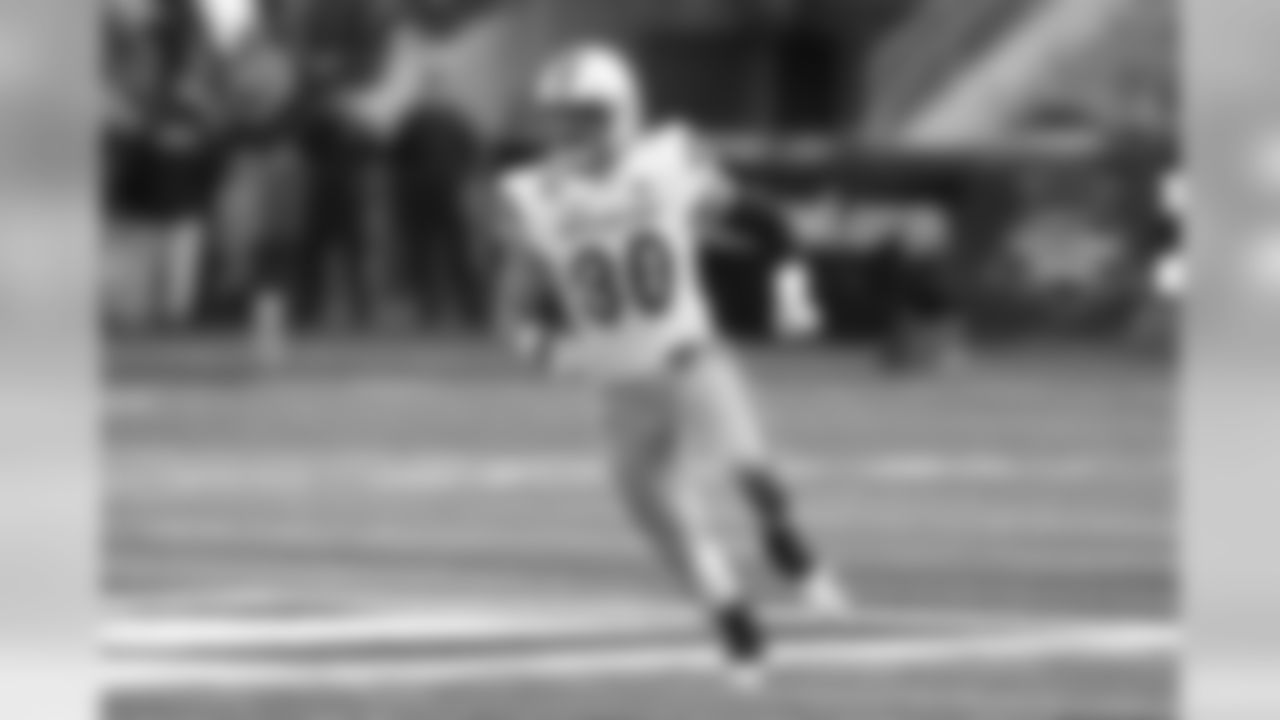
Wyoming LB Logan Wilson
(AP Photo/Rick Scuteri)
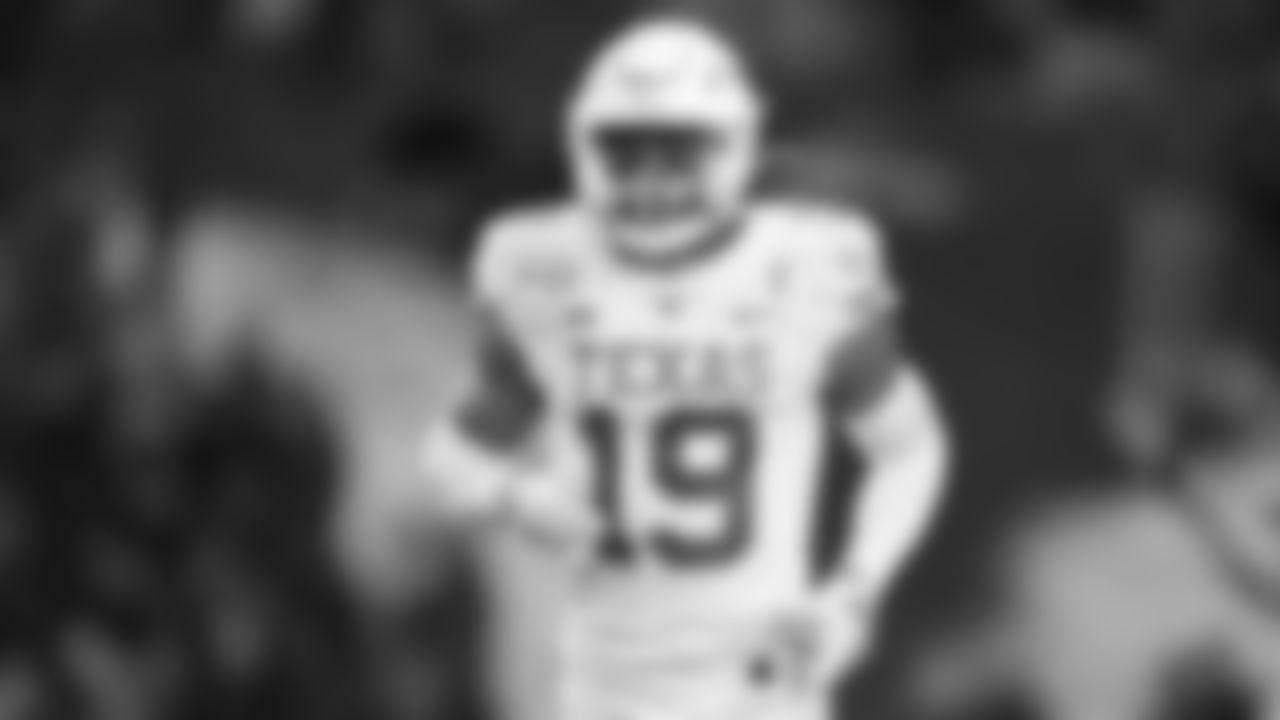
Texas S Brandon Jones
(AP Photo/Charlie Neibergall)
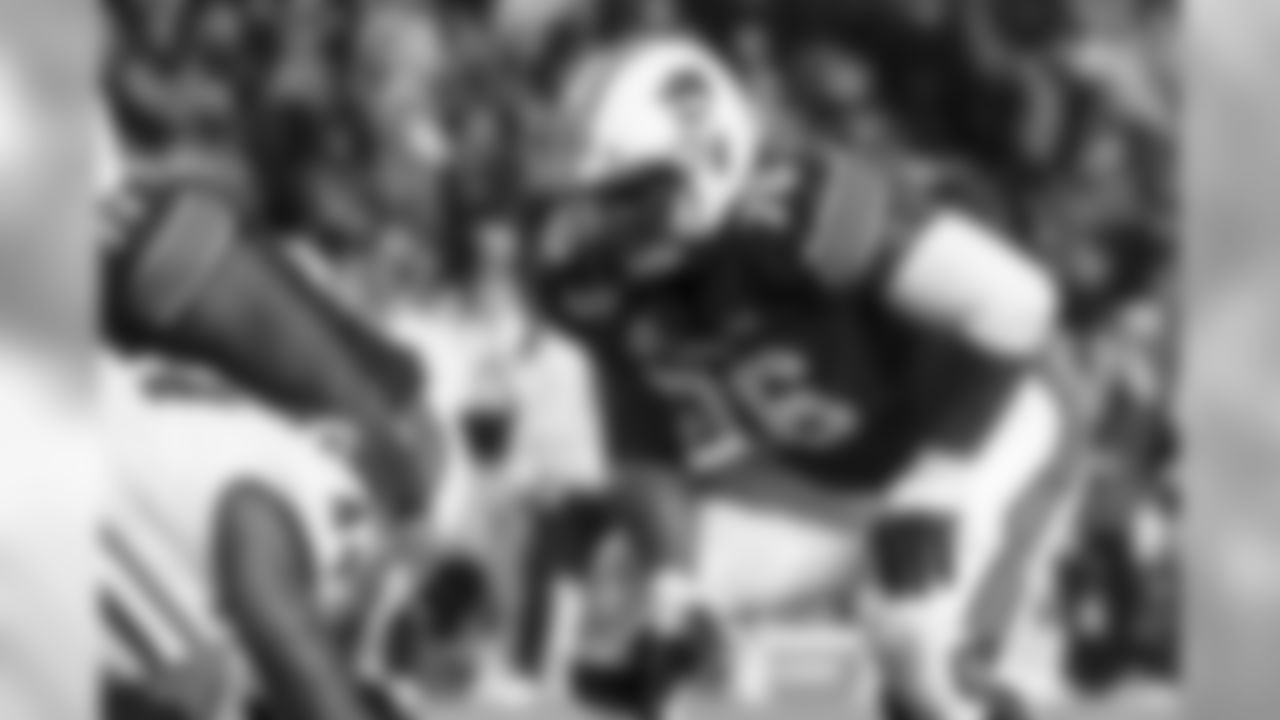
Auburn OT Prince Tega Wanogho
(AP Photo/Butch Dill)
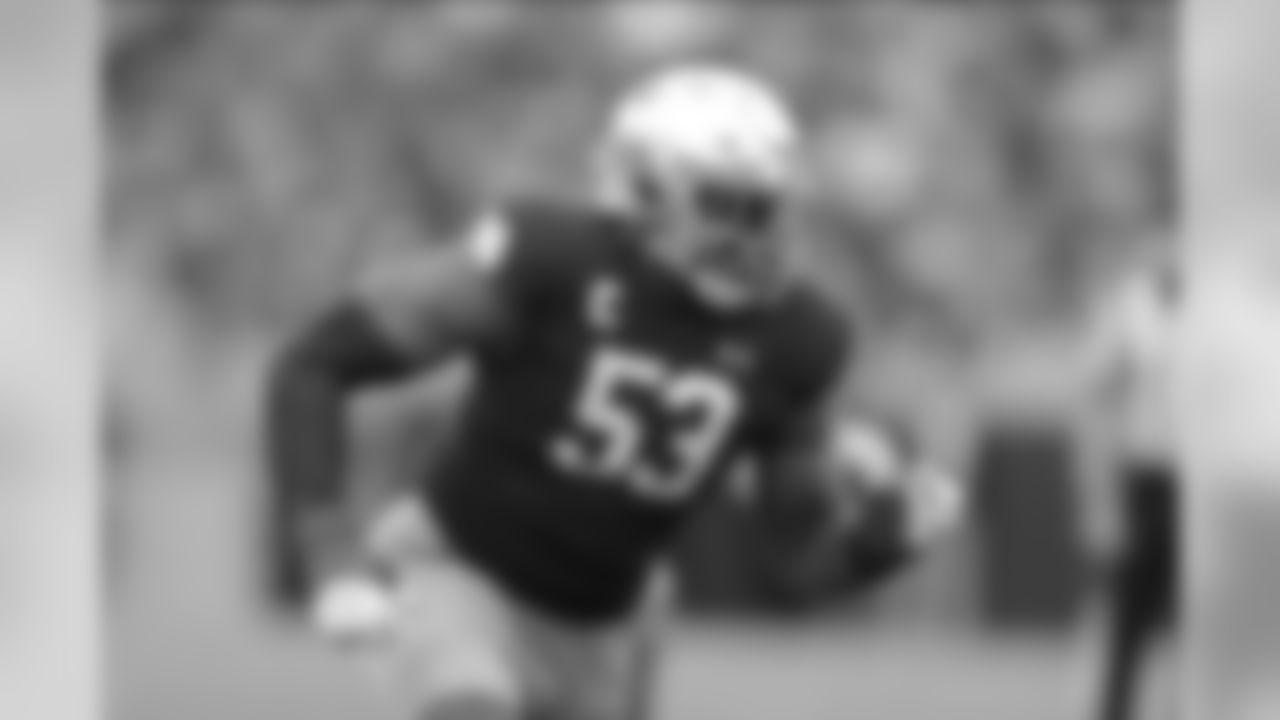
Notre Dame EDGE Khalid Kareem
(AP Photo/Darron Cummings)
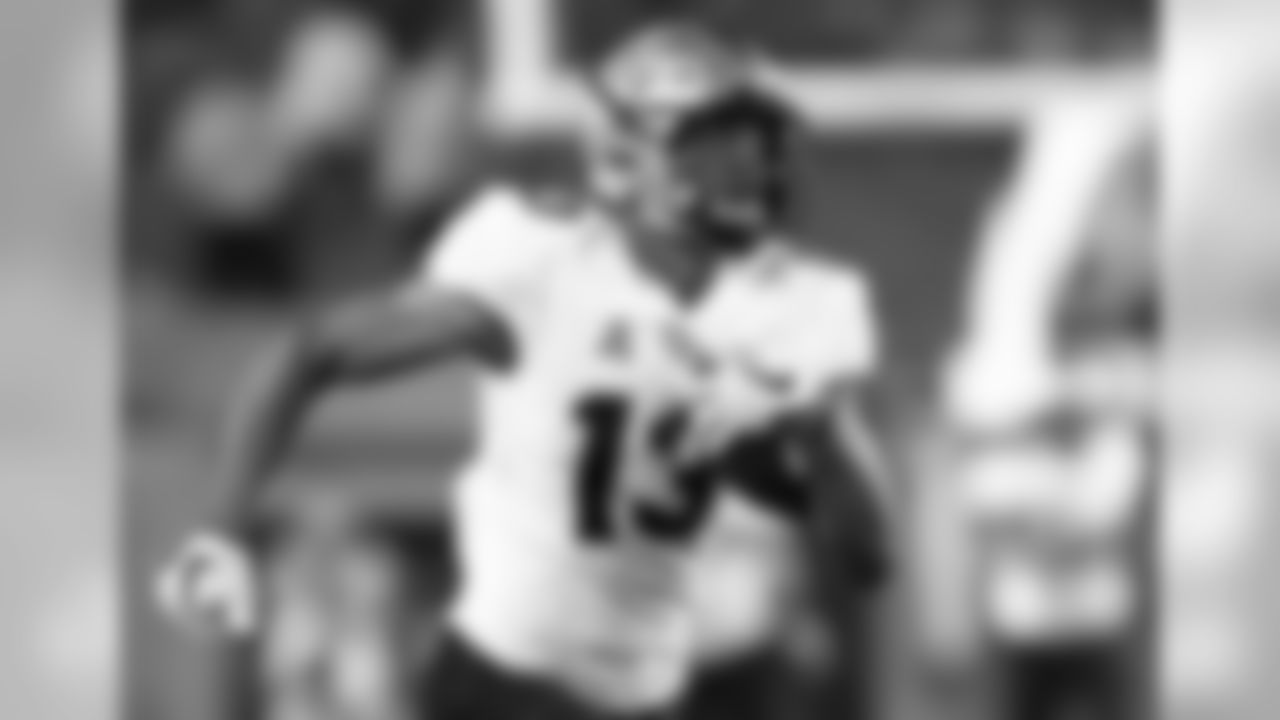
Central Florida WR Gabriel Davis
(AP Photo/Mike Stone)
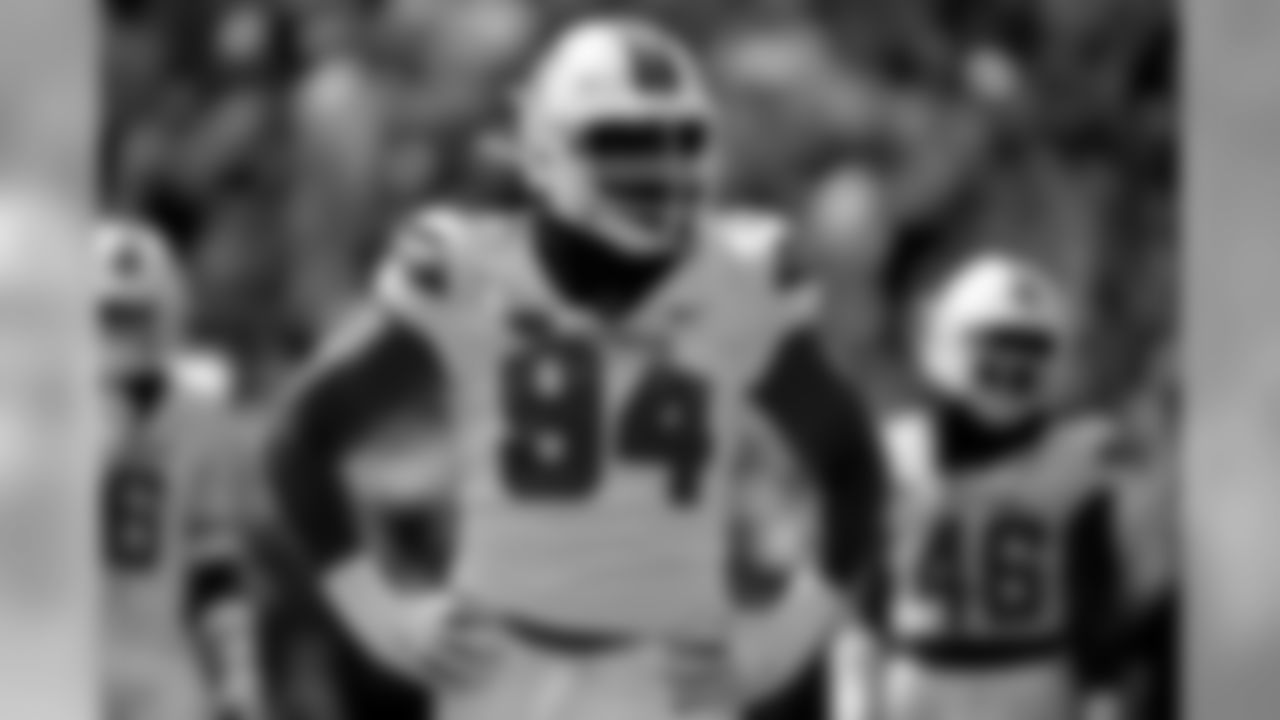
Syracuse EDGE Alton Robinson
(AP Photo/Will Newton)
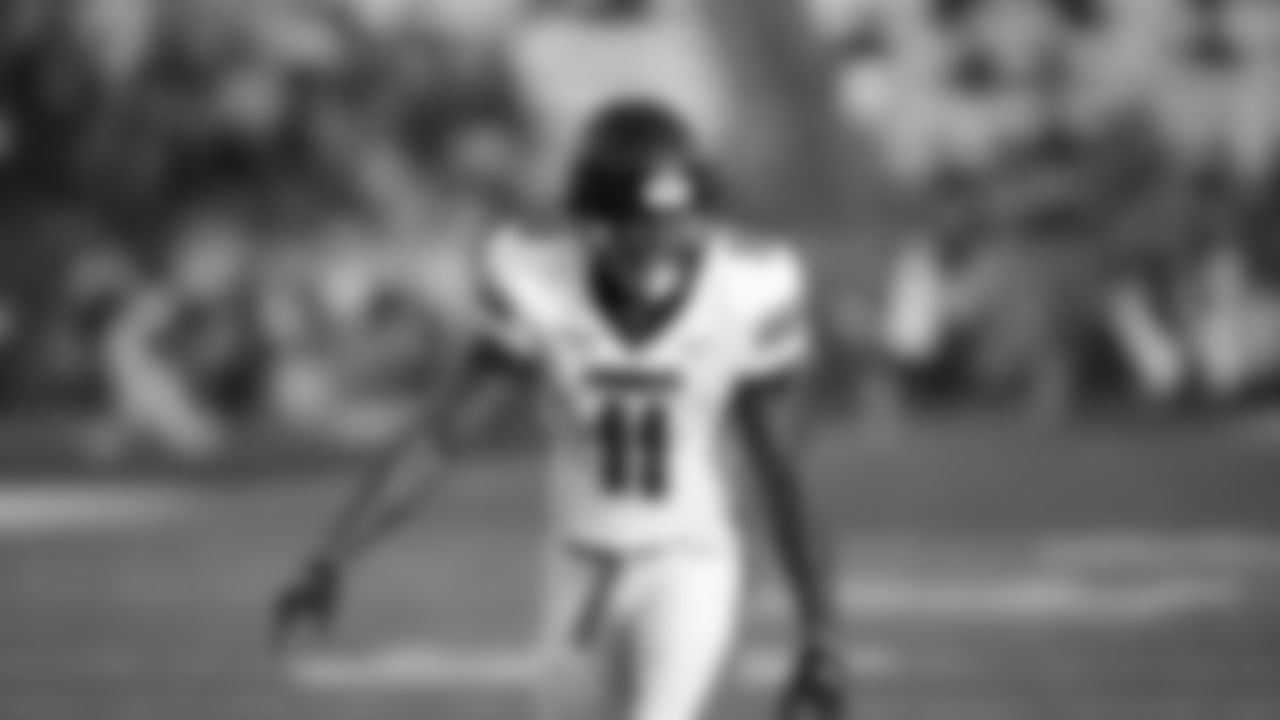
Liberty WR Antonio Gandy-Golden
(AP Photo/Tyler Kaufman)
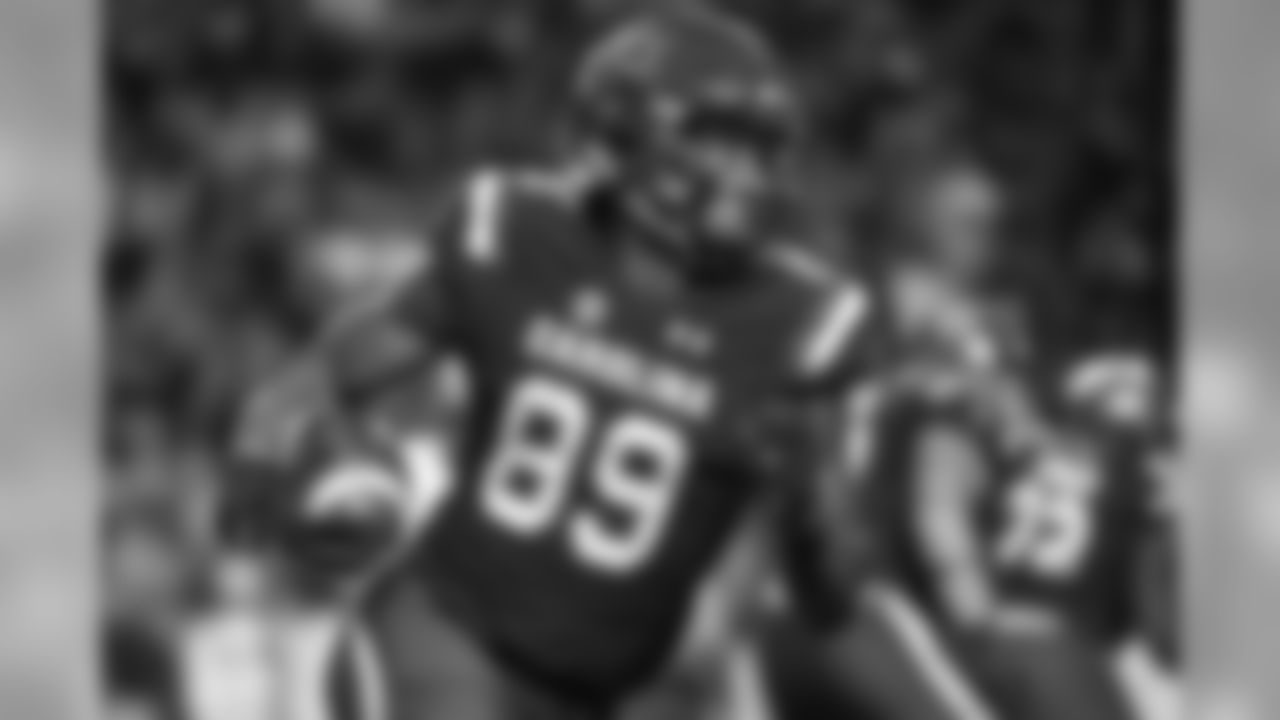
South Carolina WR Bryan Edwards
(AP Photo/Sean Rayford)
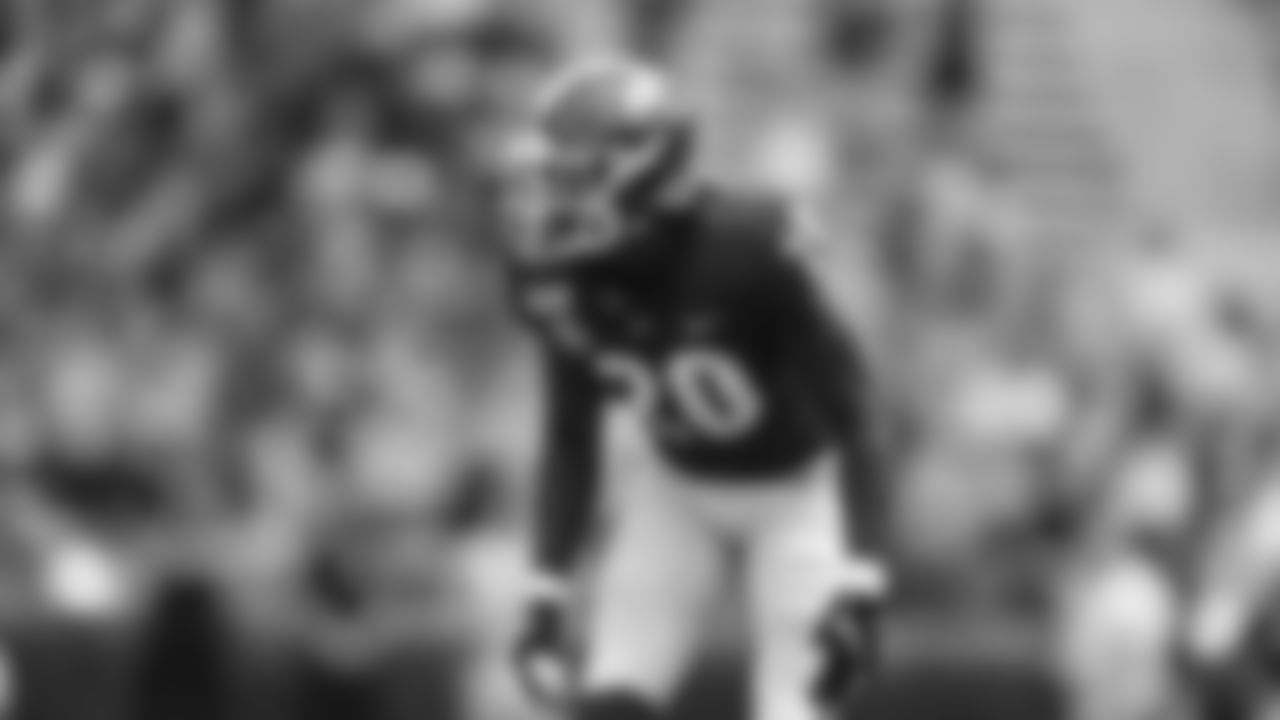
Georgia S J.R. Reed
(AP Photo/John Amis)
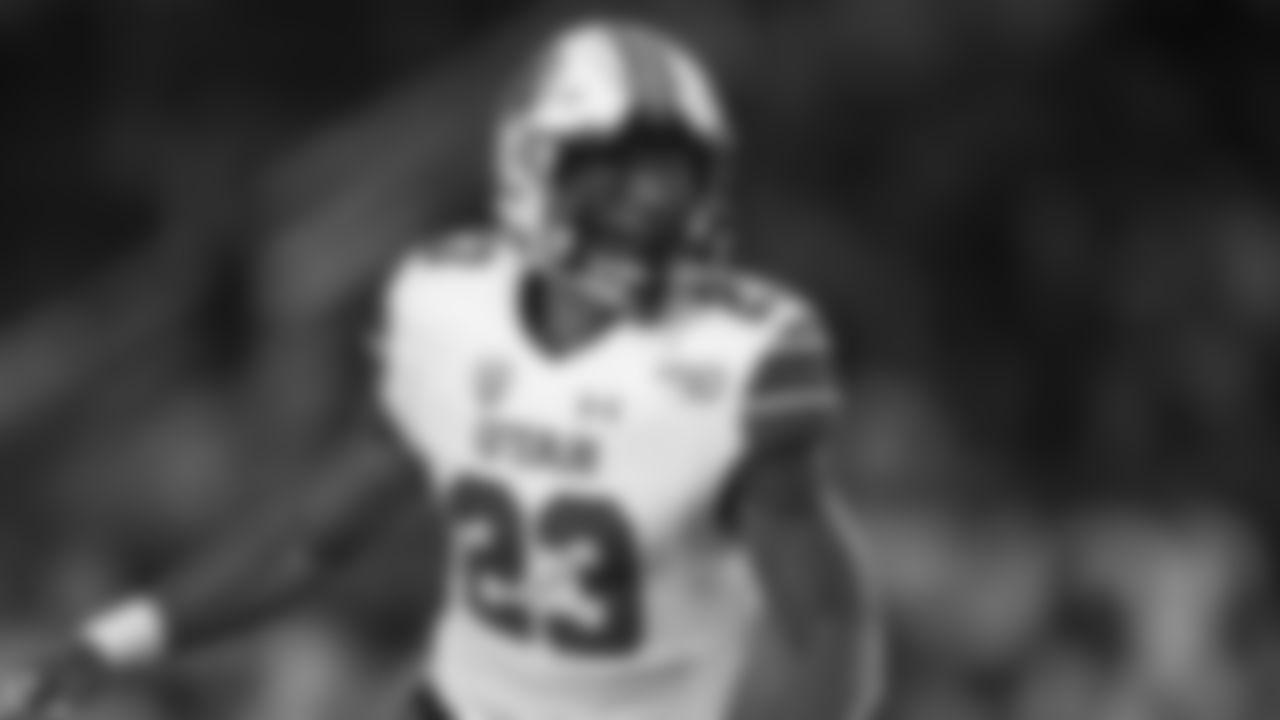
Utah S Julian Blackmon
(AP Photo/Kyusung Gong)
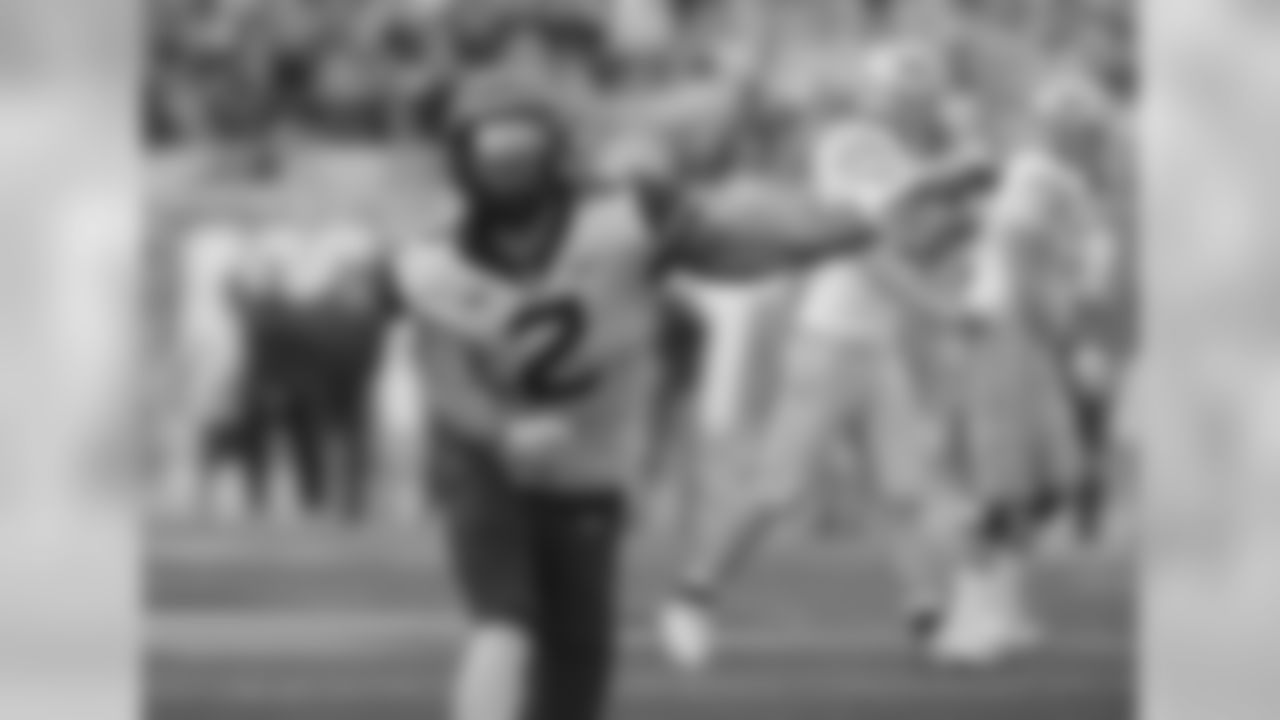
XFL S Kenny Robinson
(AP Photo/Raymond Thompson)
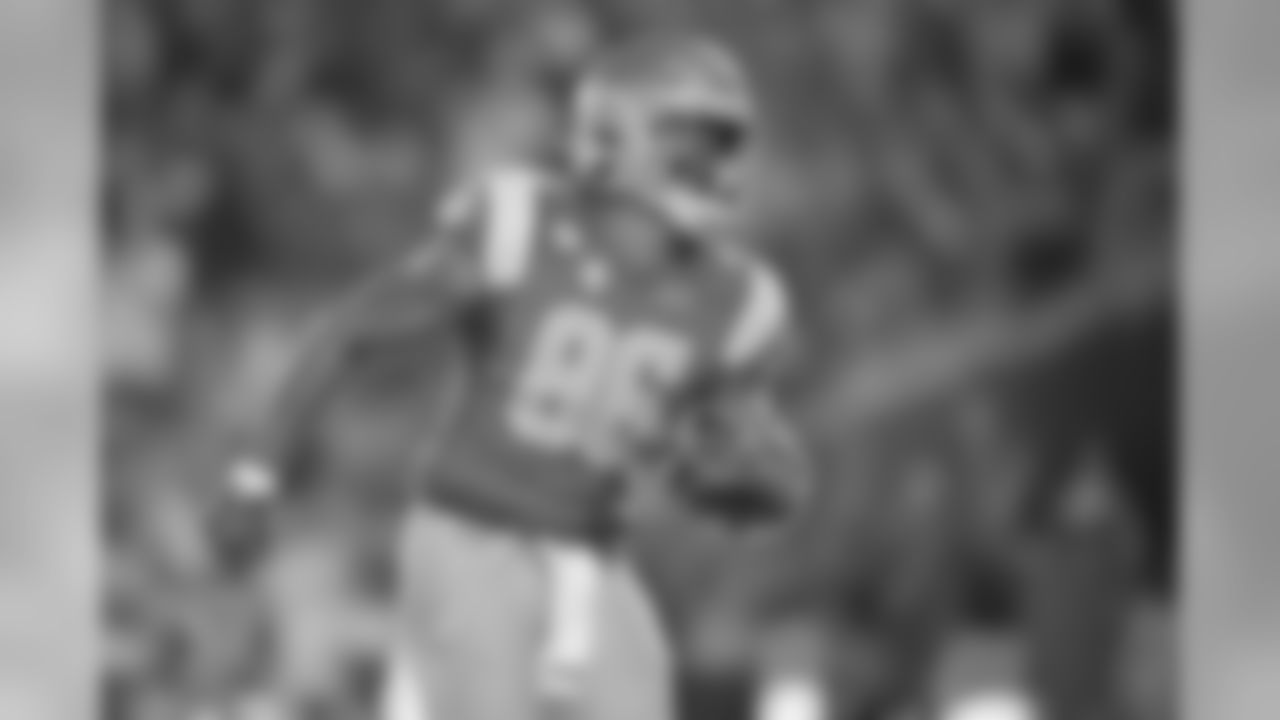
UCLA TE Devin Asiasi
(AP Photo/Kelvin Kuo)
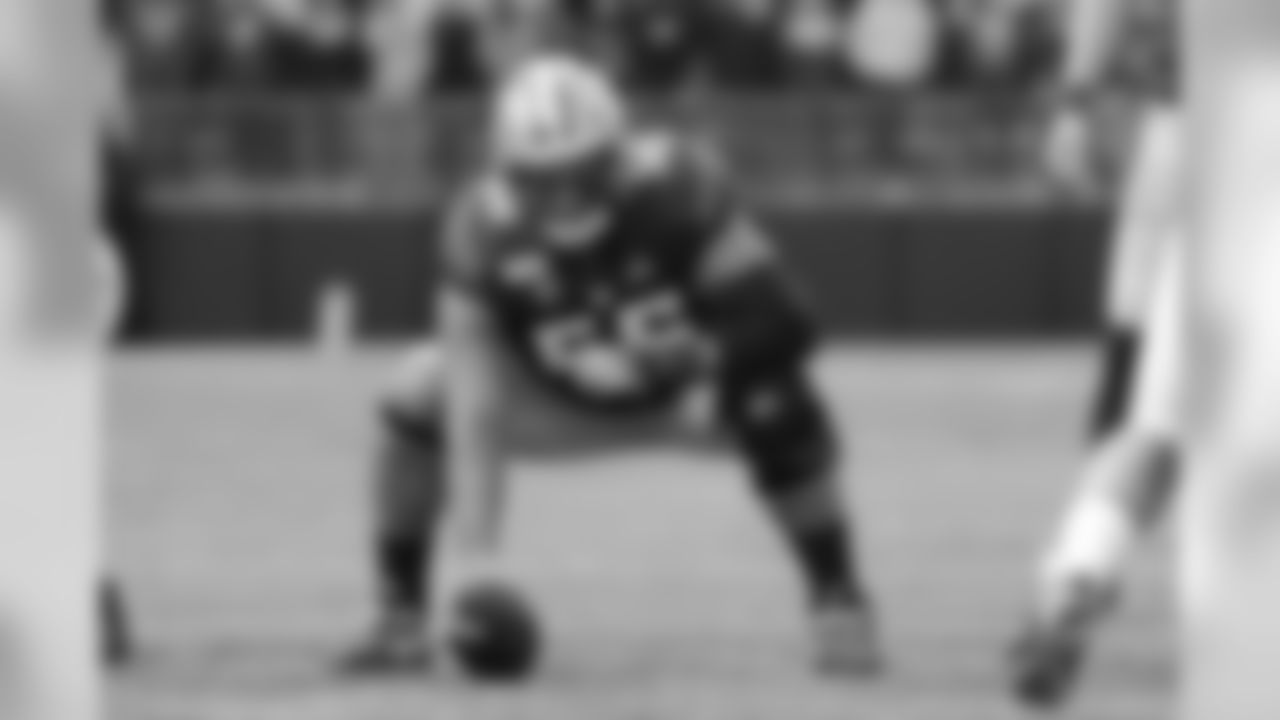
Washington C Nick Harris
(AP Photo/Elaine Thompson)
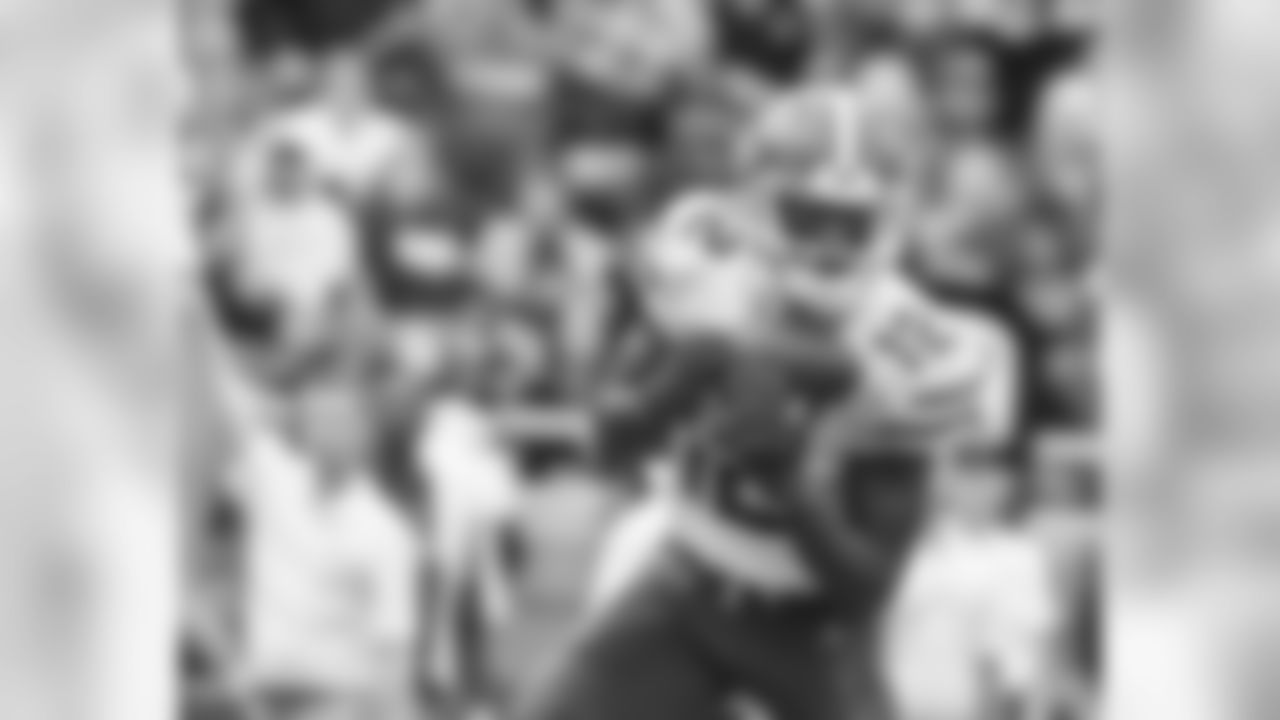
Florida WR Van Jefferson
(AP Photo/Mark Wallheiser)
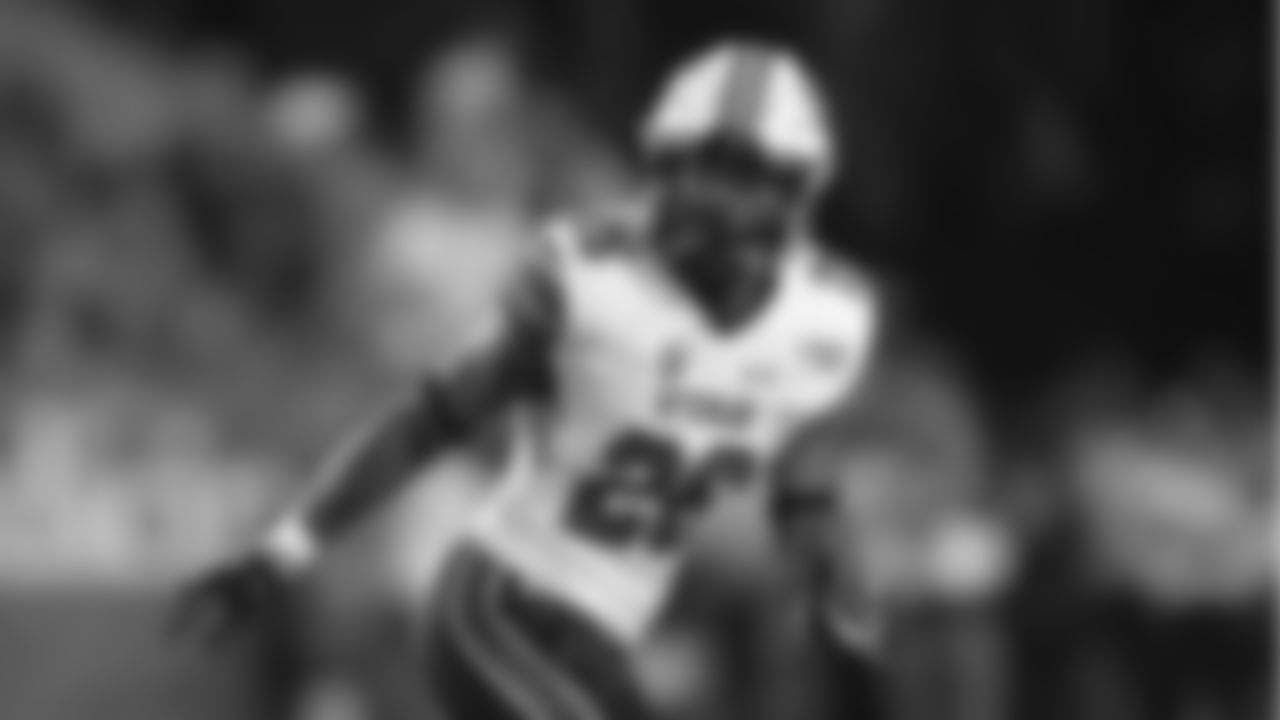
Utah S Terrell Burgess
(AP Photo/Kyusung Gong)
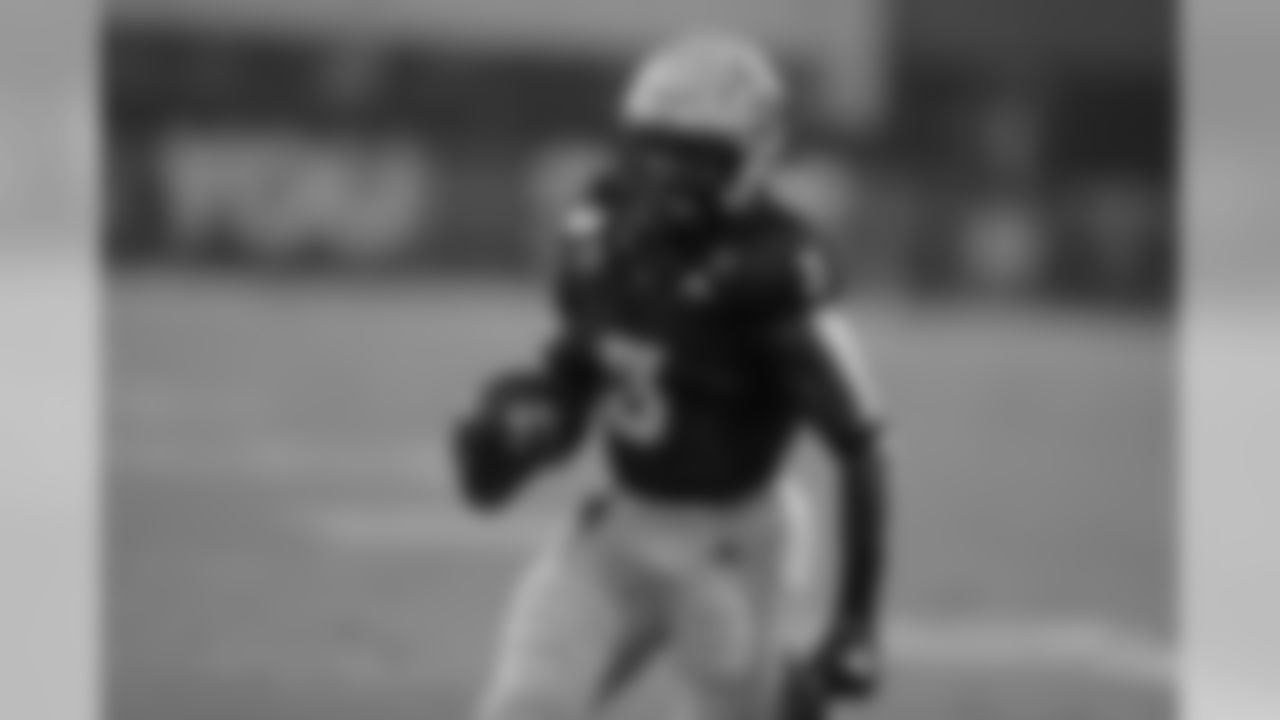
Arizona State RB Eno Benjamin
(AP Photo/Rick Scuteri)
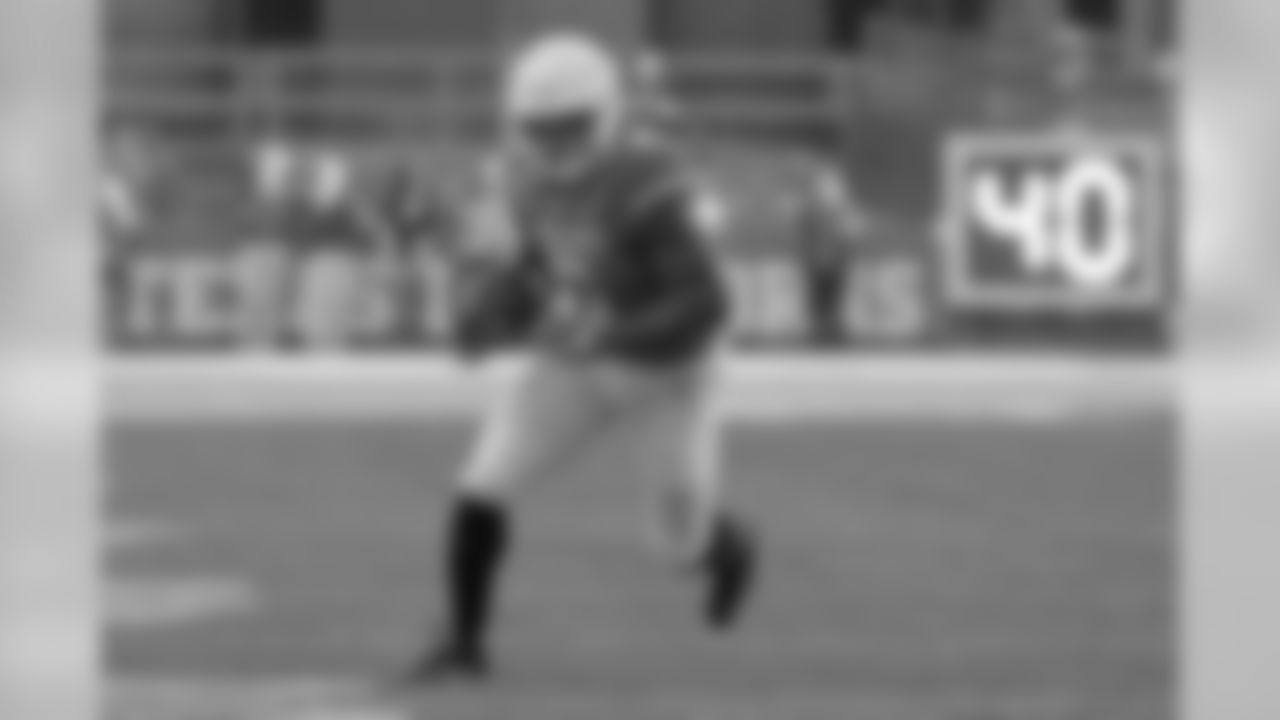
Texas WR Devin Duvernay
(AP Photo/Chuck Burton)
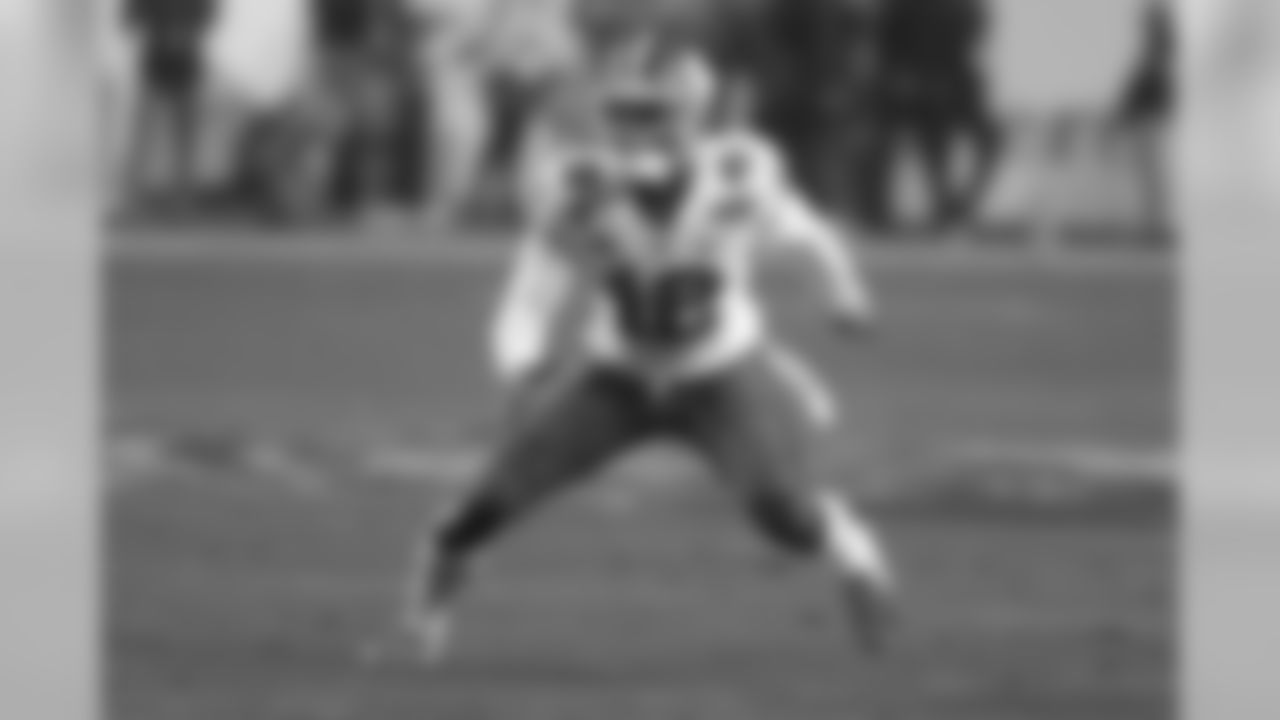
Clemson S K'Von Wallace
(AP Photo/Rick Scuteri).
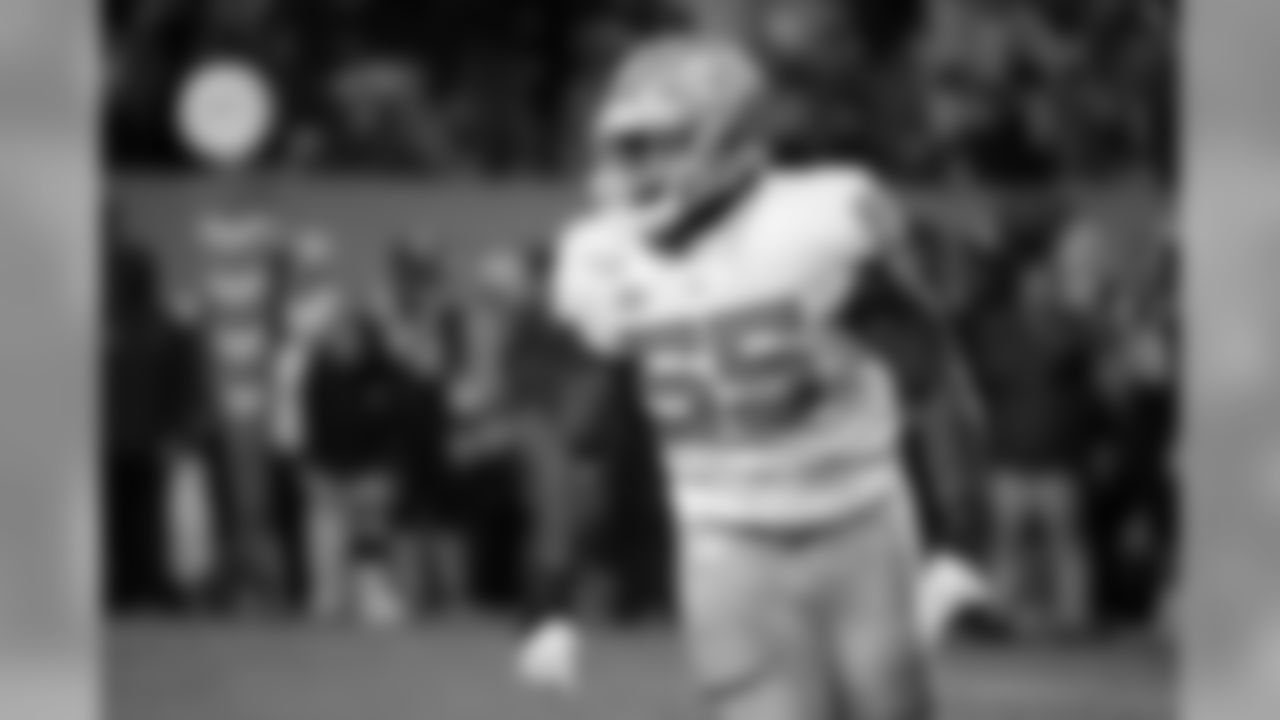
North Carolina DE Jason Strowbridge
(AP Photo/Karl B DeBlaker)
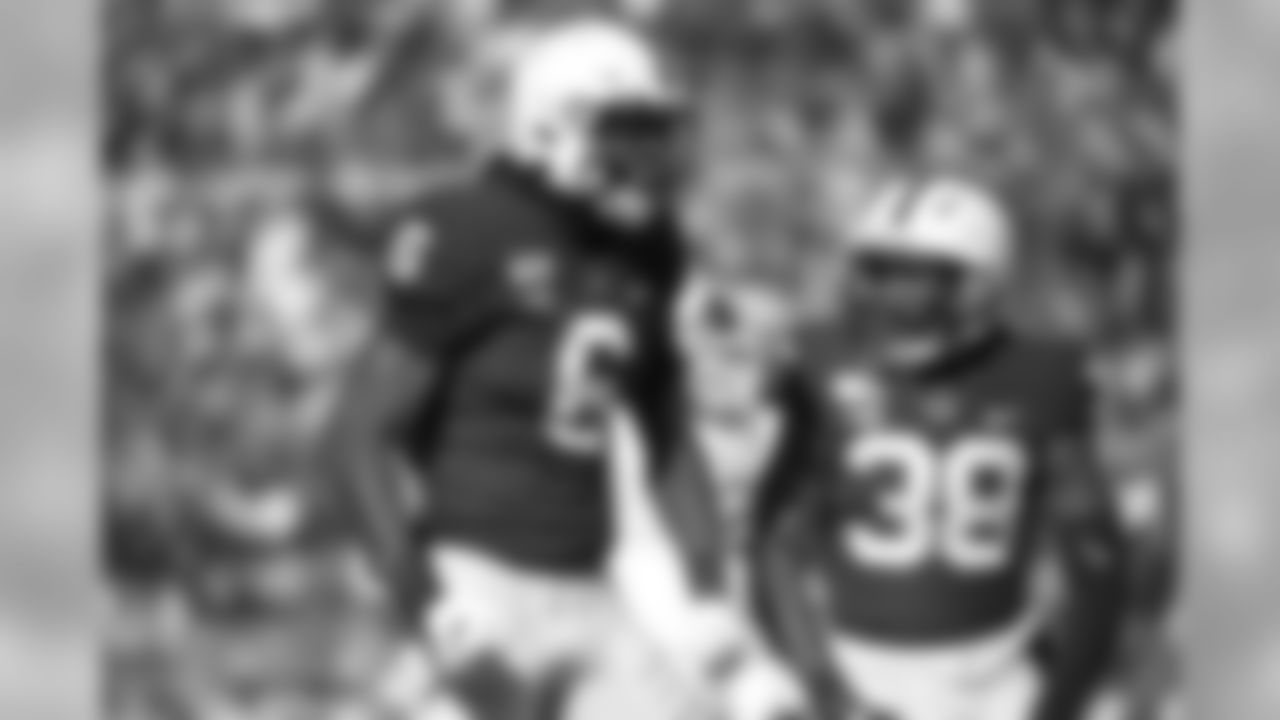
Penn State LB Cam Brown
(AP Photo/Barry Reeger)
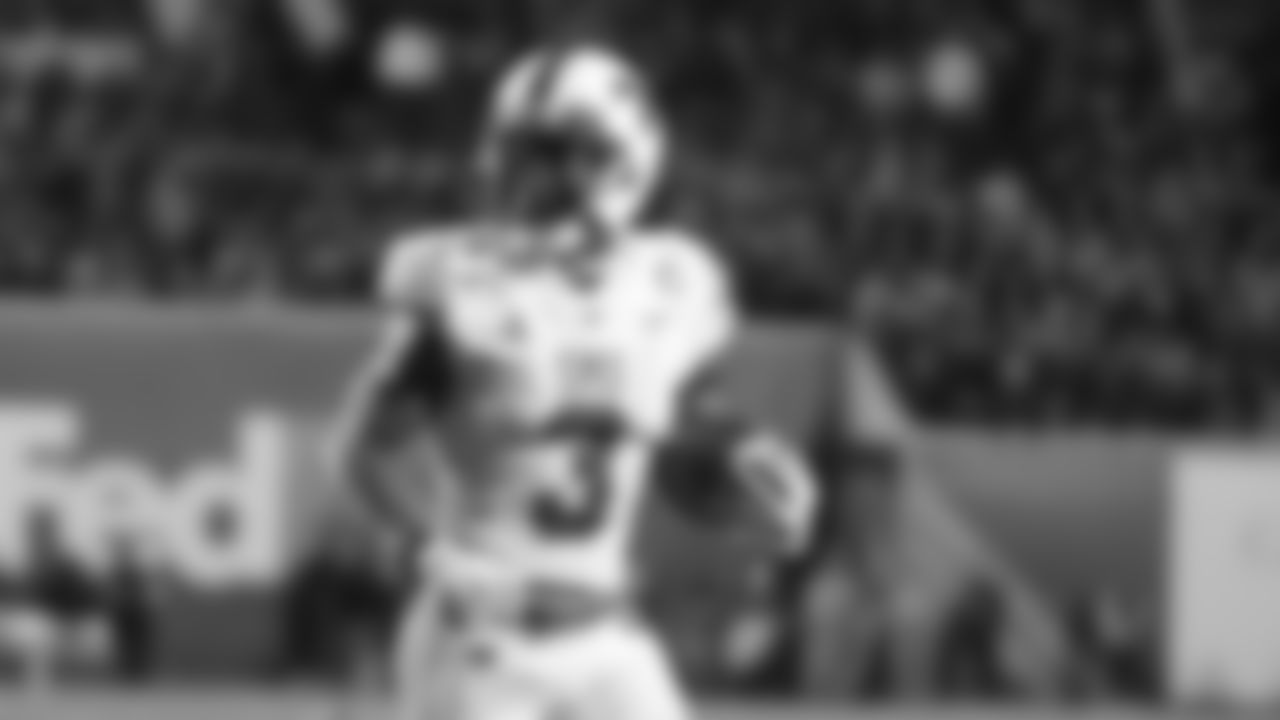
SMU WR James Proche
(AP Photo/Mark Humphrey)
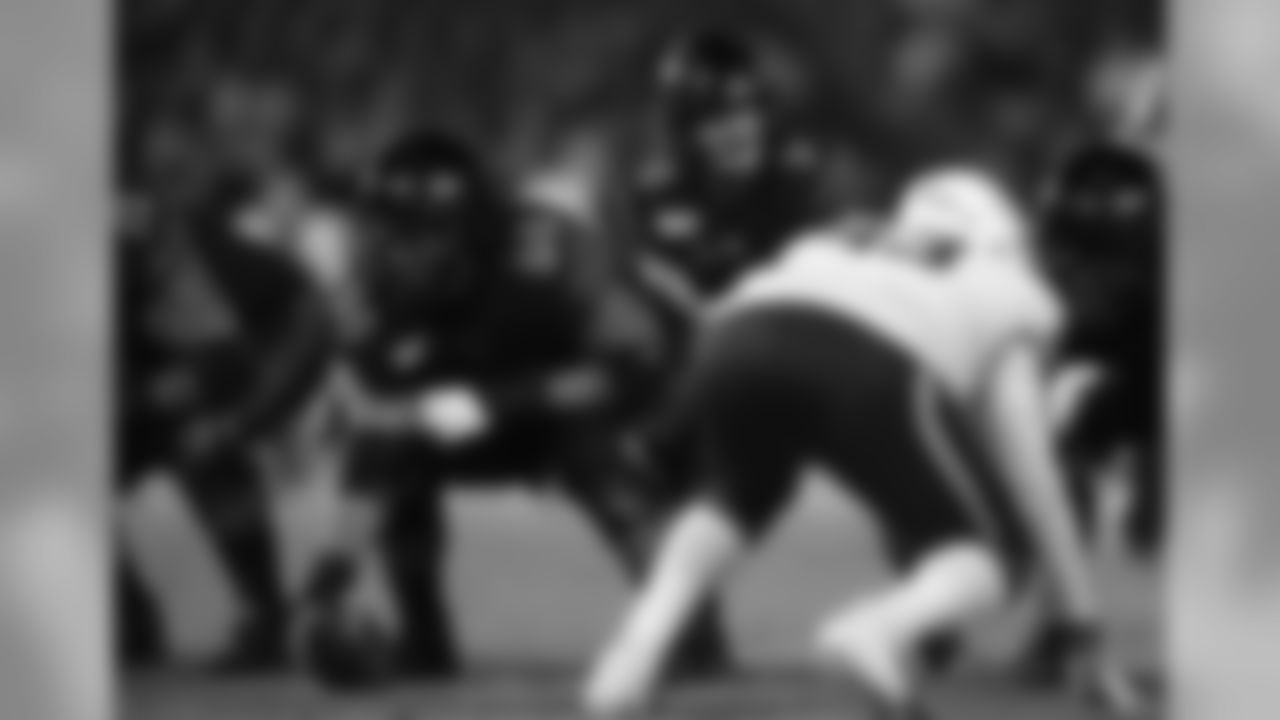
San Diego State C Keith Ismael
(AP Photo/Orlando Ramirez)
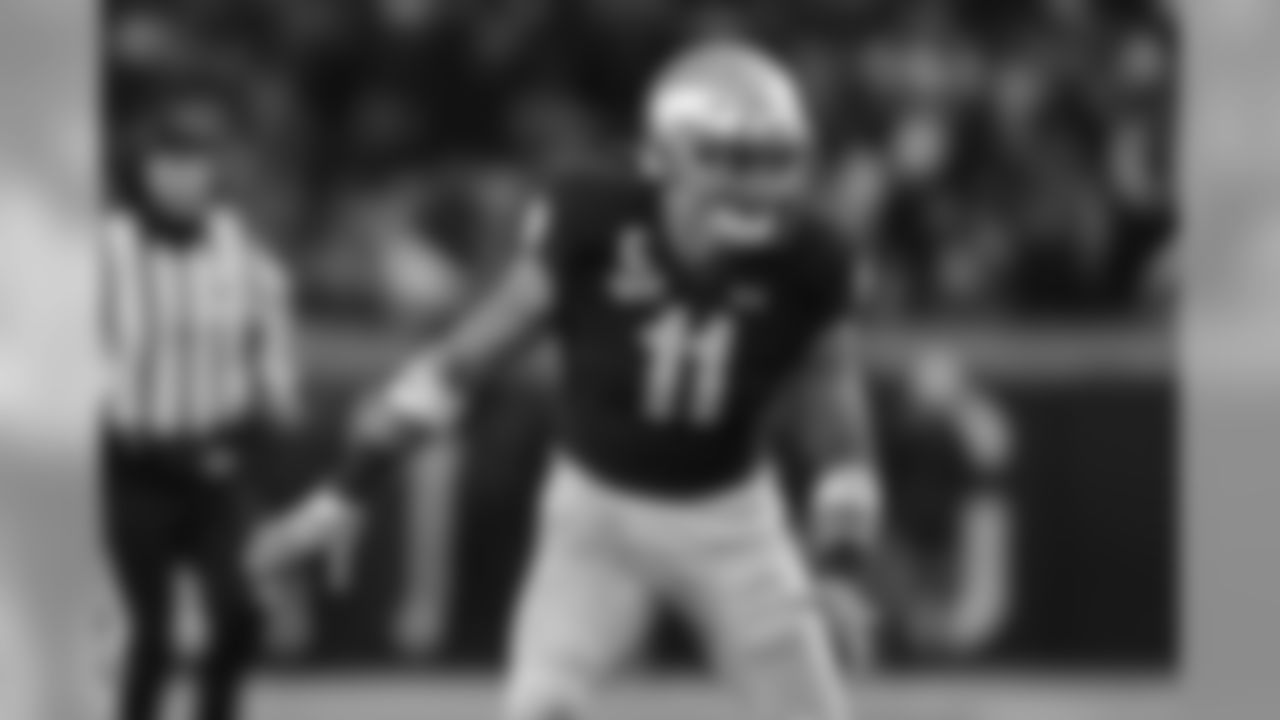
Notre Dame S Alohi Gilman
(AP Photo/Michael Conroy)
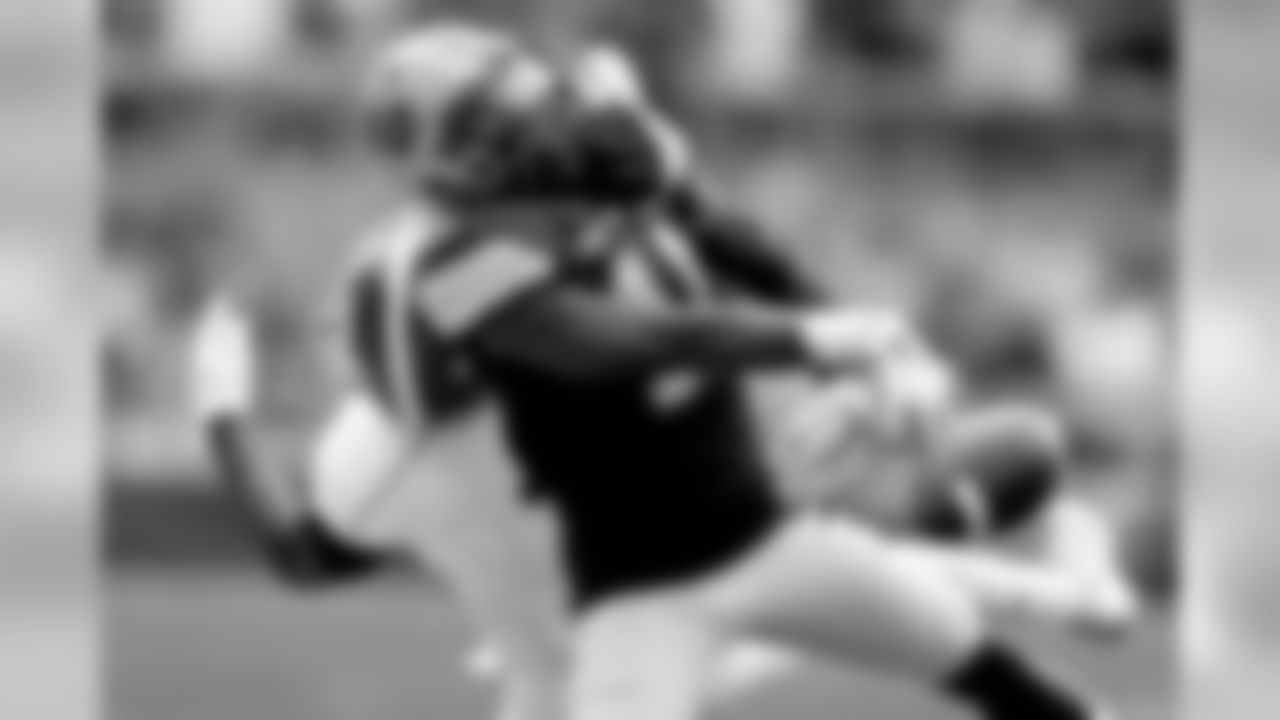
Pittsburgh CB Dane Jackson
(AP Photo/Keith Srakocic)
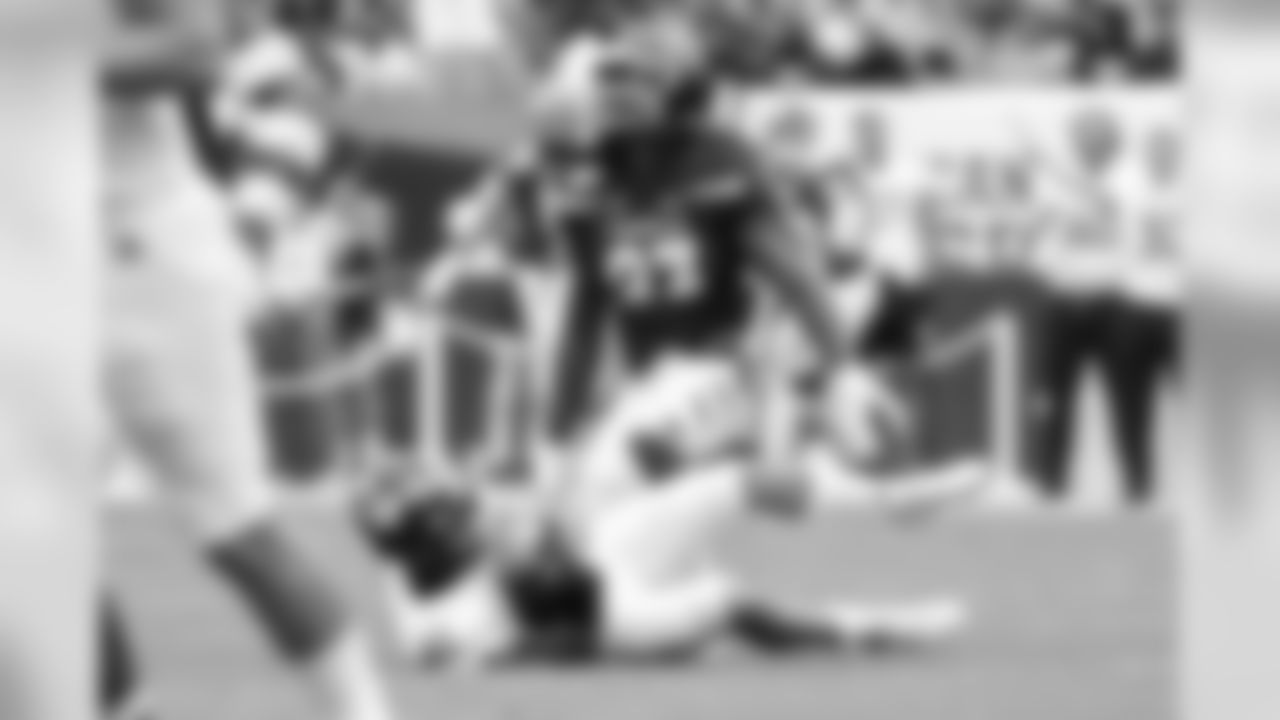
Temple CB Harrison Hand
(AP Photo/Chris Szagola)
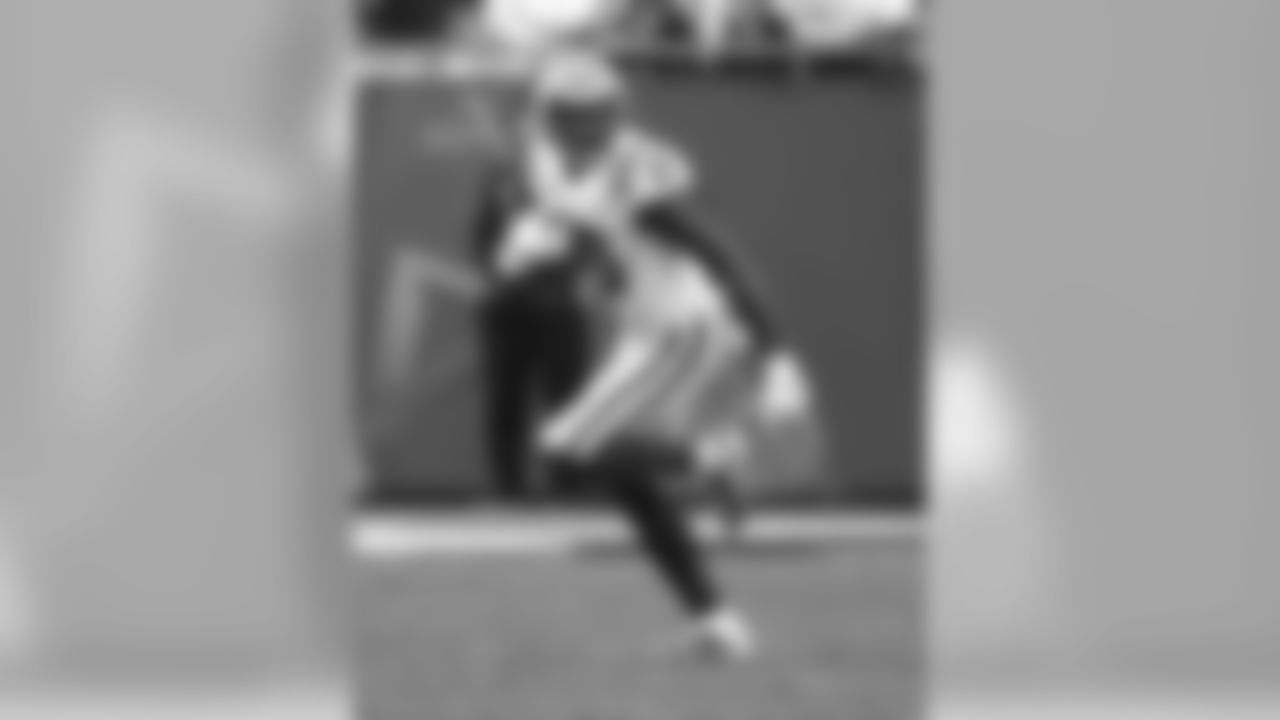
LSU TE Stephen Sullivan
(AP Photo/Rick Scuteri)
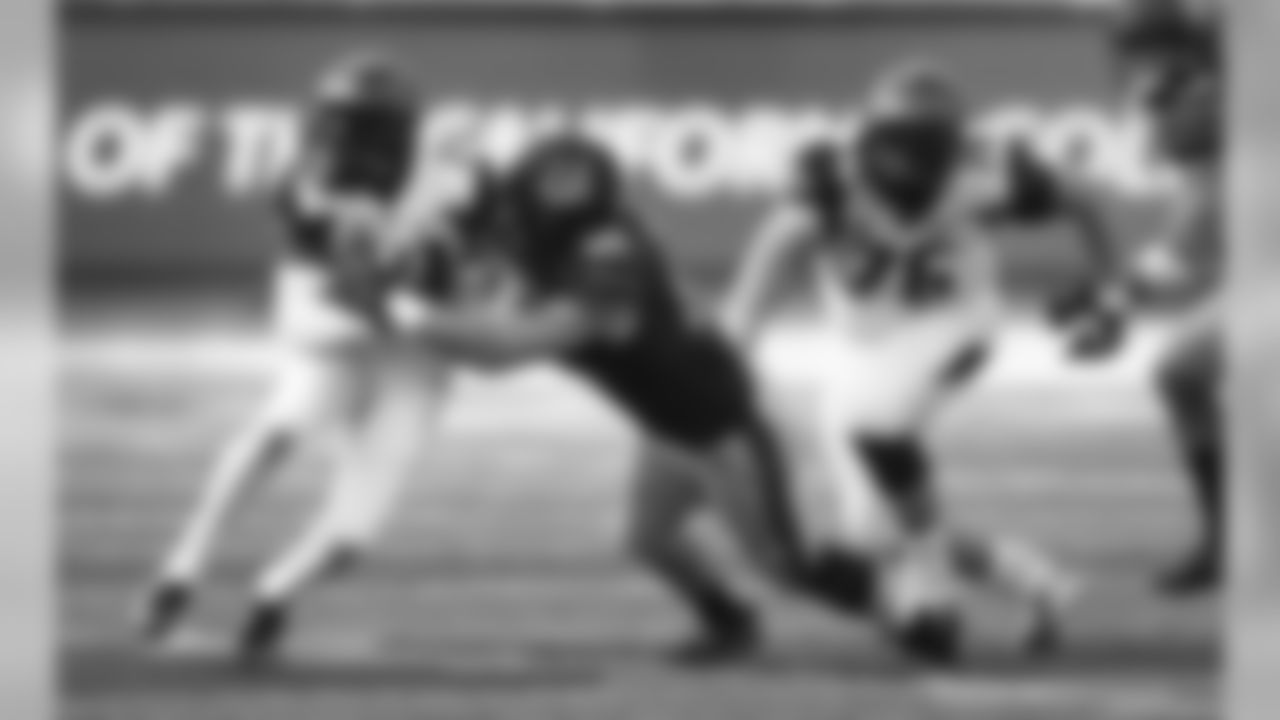
California LB Evan Weaver
(AP Photo/Ben Margot)
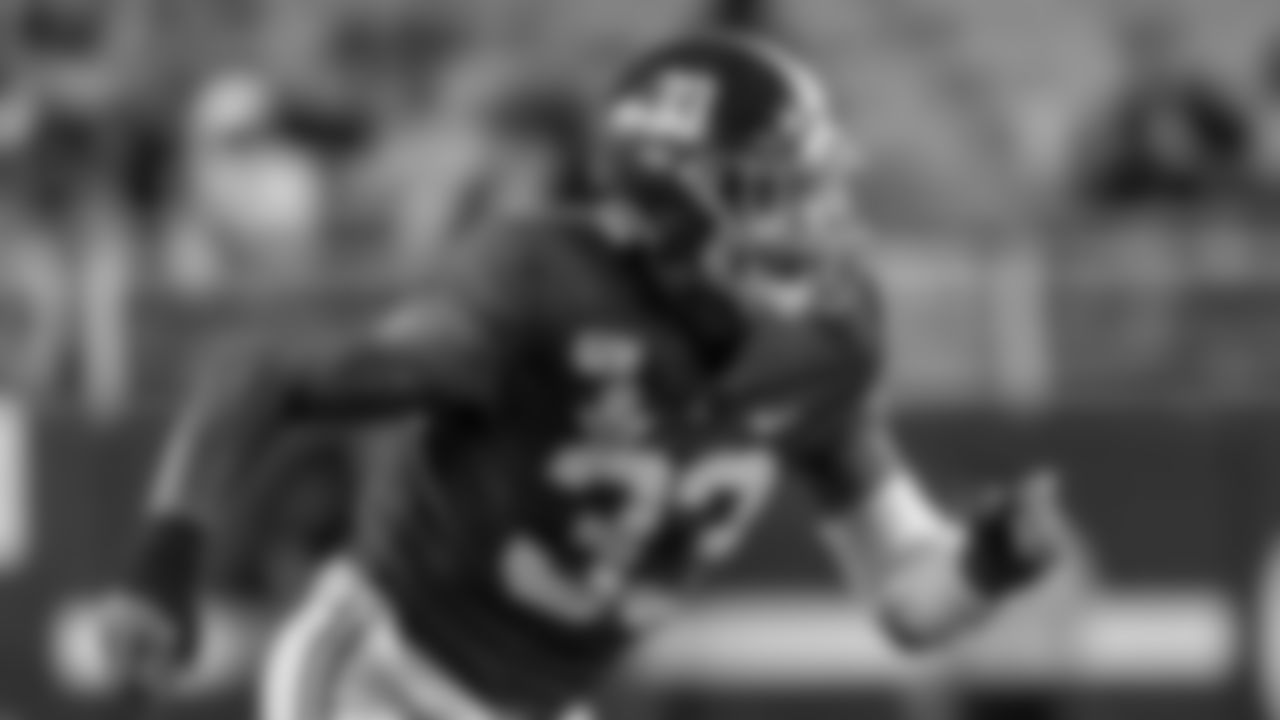
Alabama EDGE Anfernee Jennings
(AP Photo/Vasha Hunt)
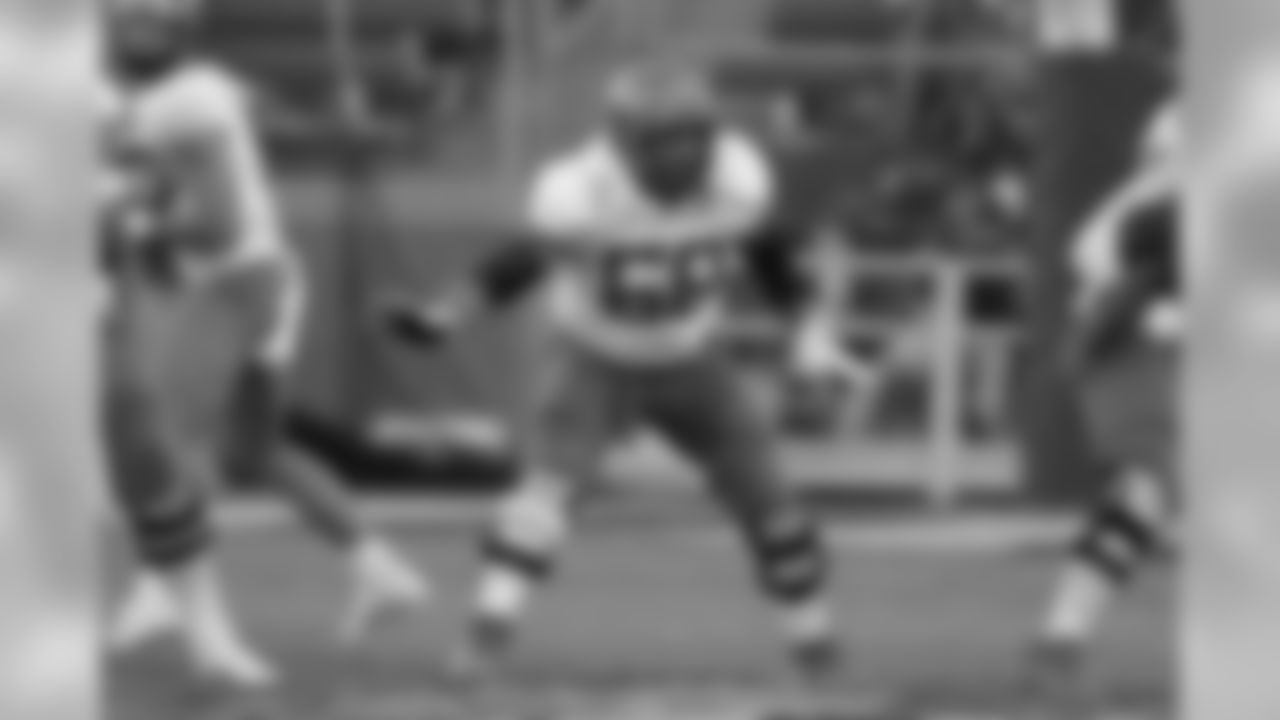
Oregon IOL Shane Lemieux
(AP Photo/Tony Avelar)
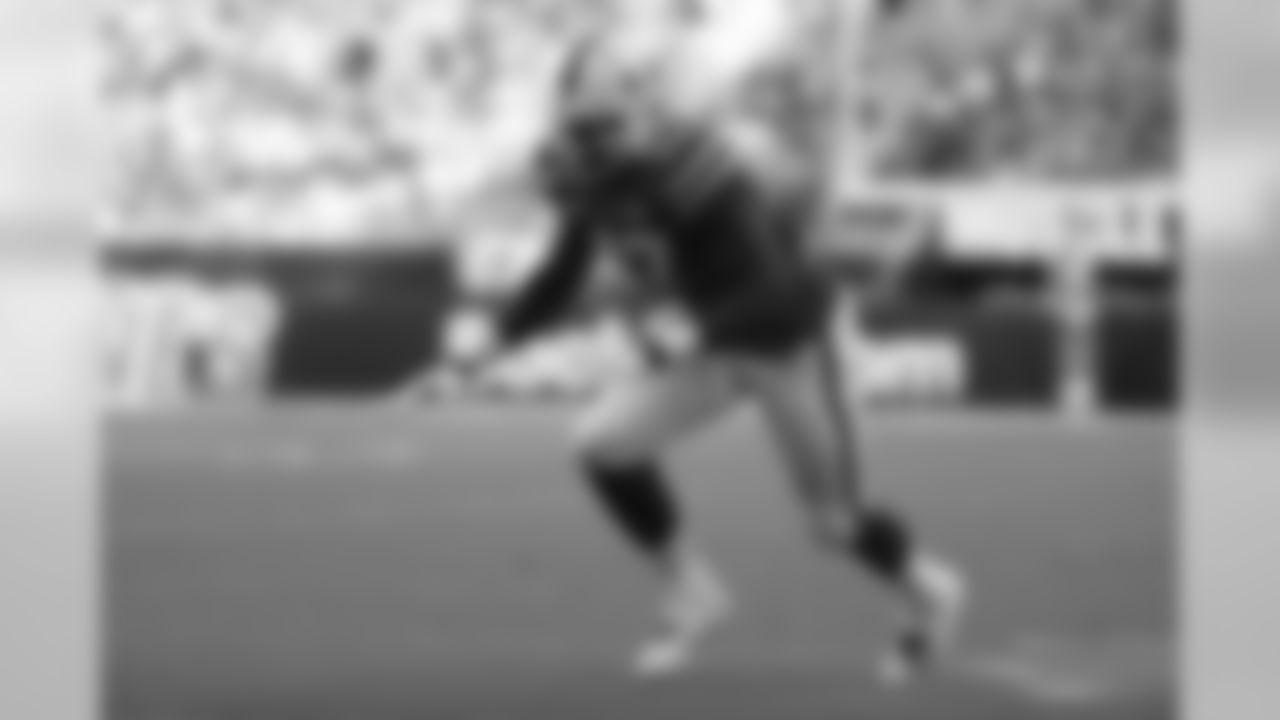
Miami EDGE Jonathan Garvin
(AP Photo/Wilfredo Lee)
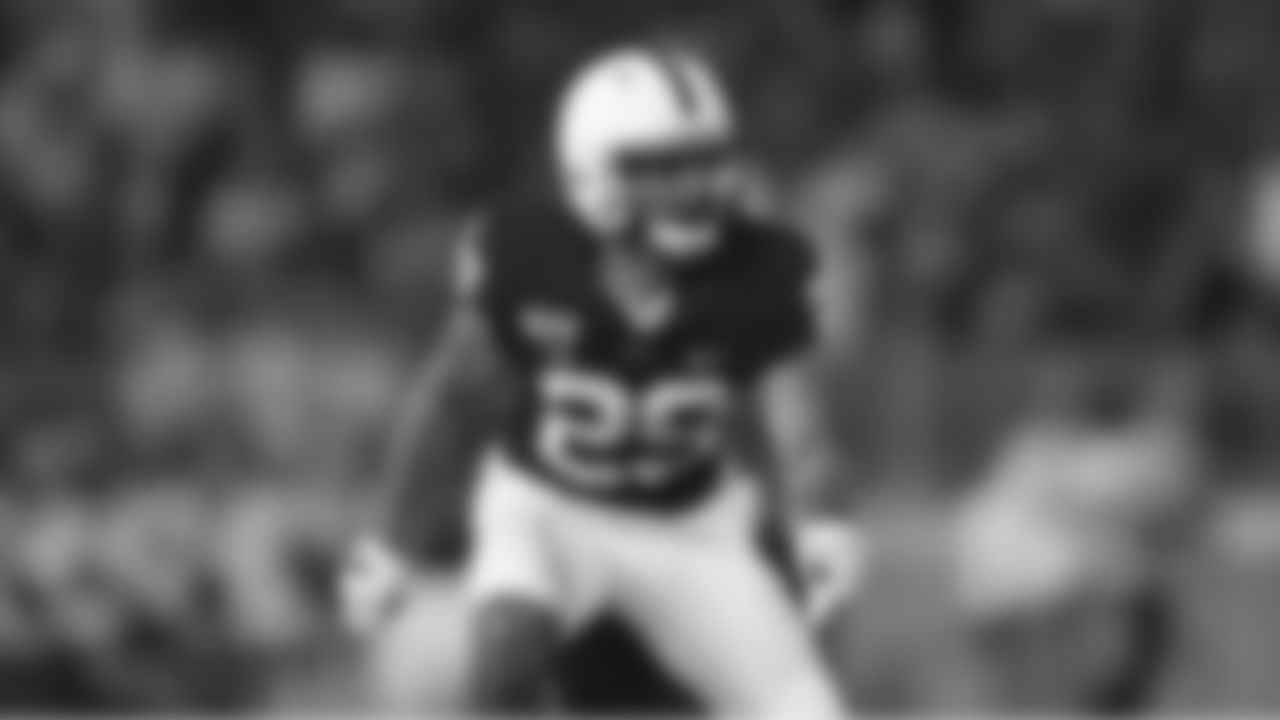
Penn State CB John Reid
(AP Photo/Steve Luciano)
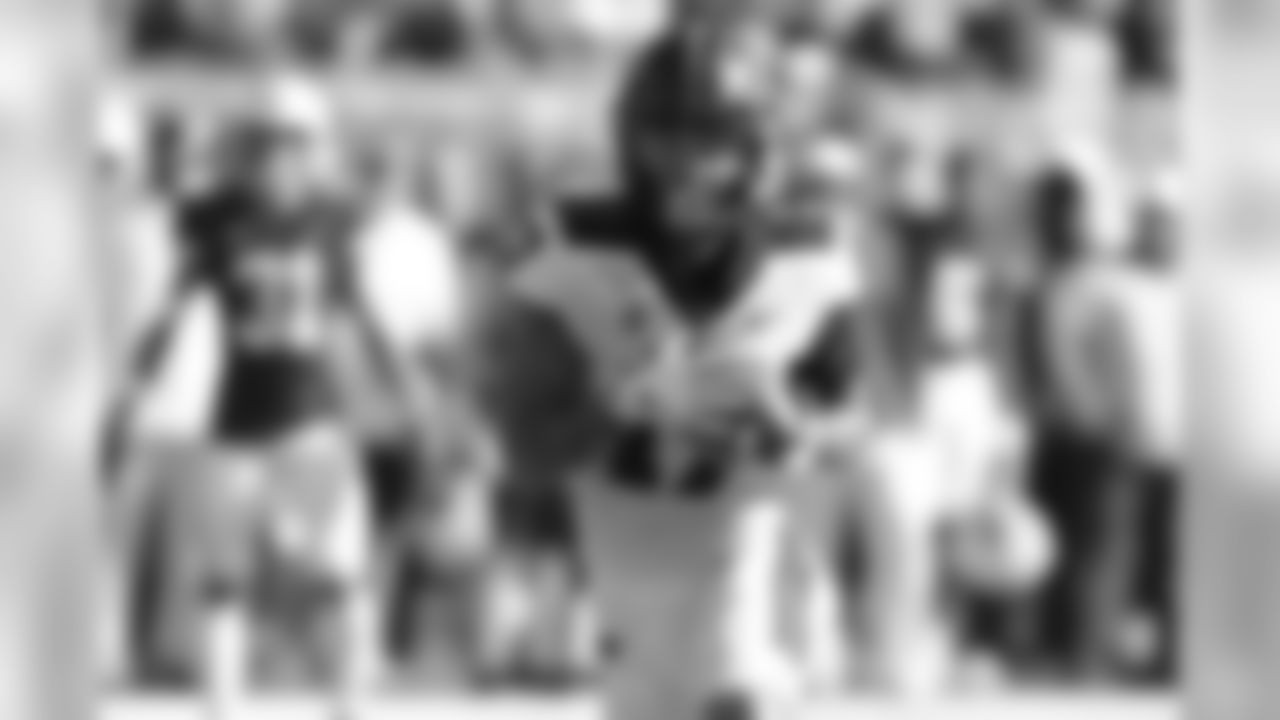
Oregon State WR Isaiah Hodgins
(AP Photo/Rick Scuteri)
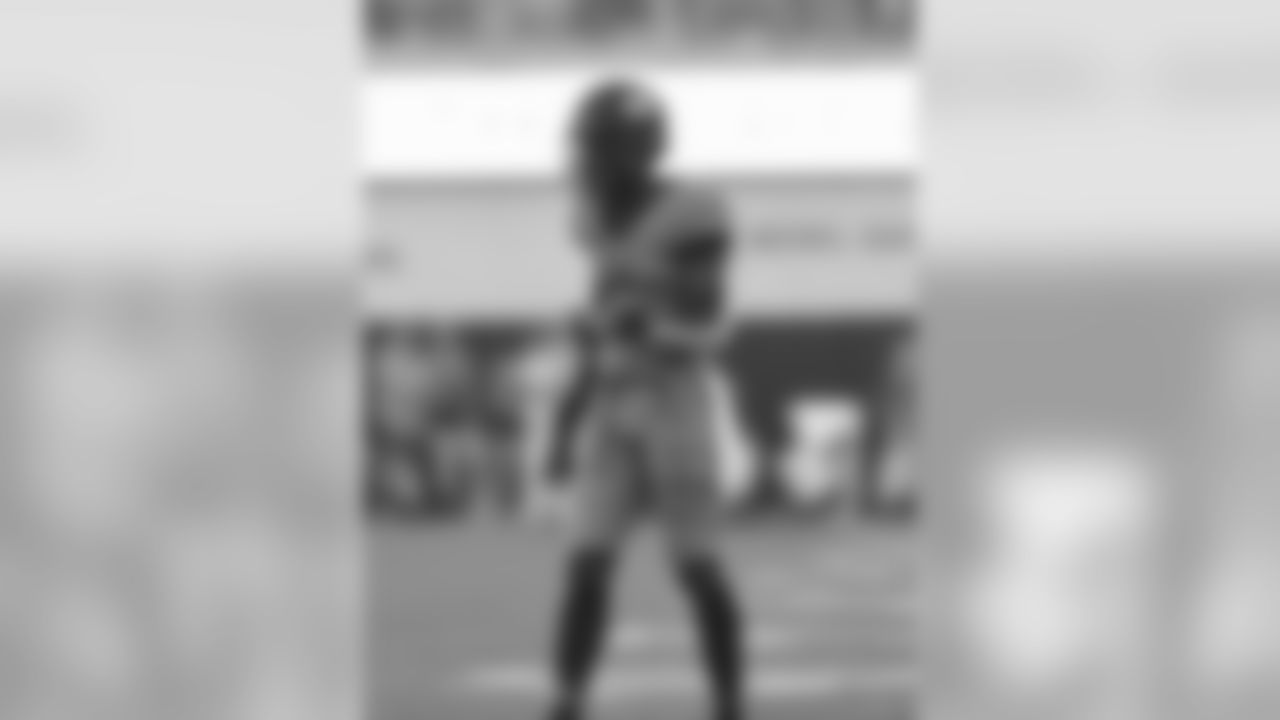
Oklahoma State CB A.J. Green
(AP Photo/Brody Schmidt)
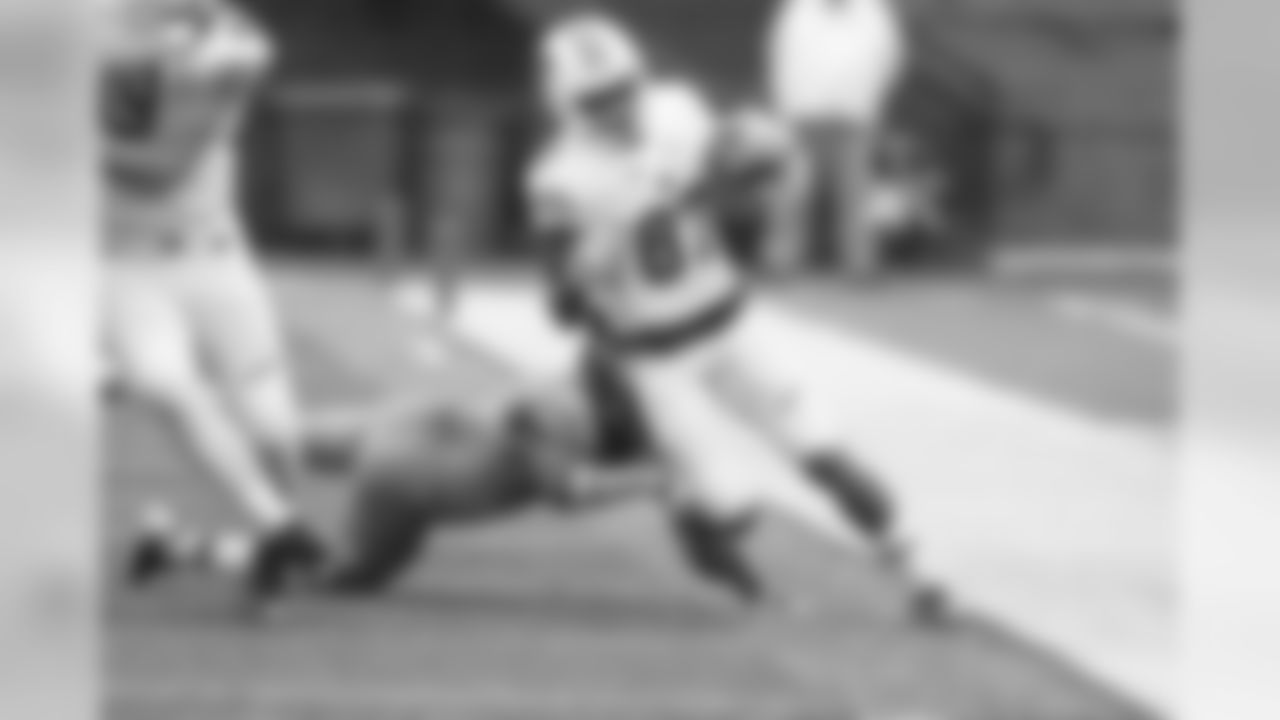
Wisconsin WR Quintez Cephus
(AP Photo/Bradley Leeb)
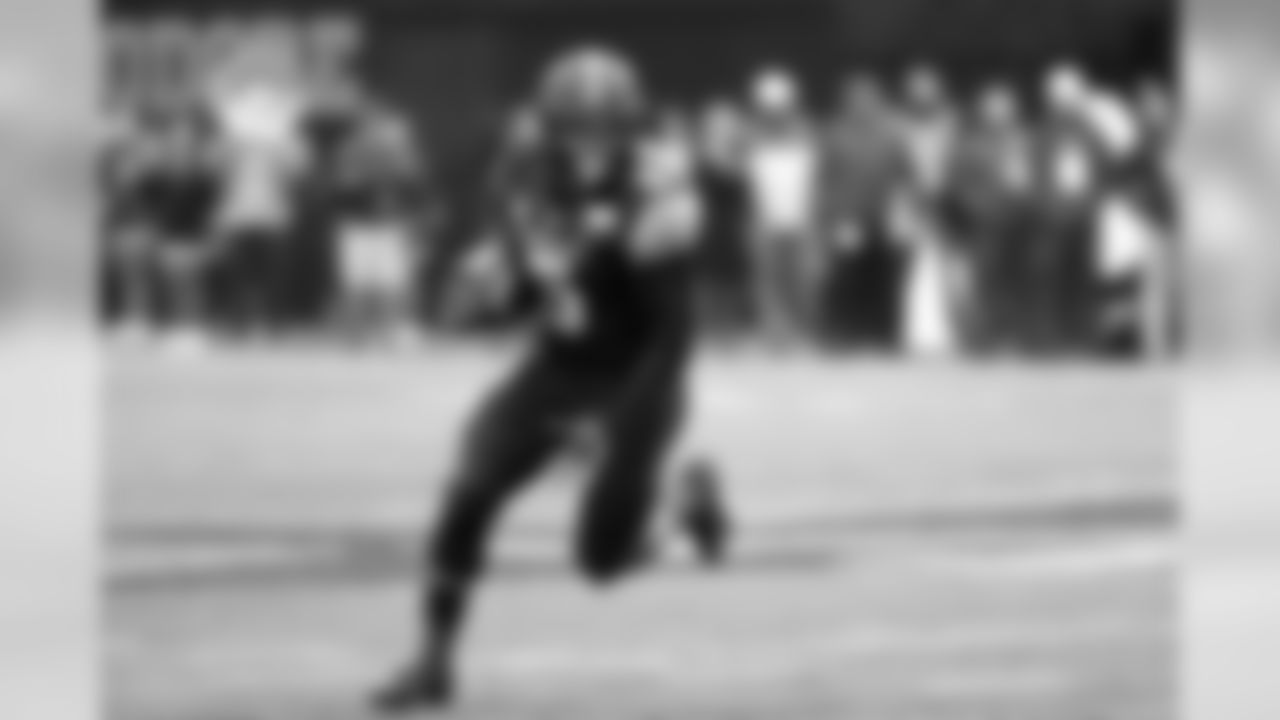
Vanderbilt RB Ke'Shawn Vaughn
(AP Photo/Mark Humphrey)
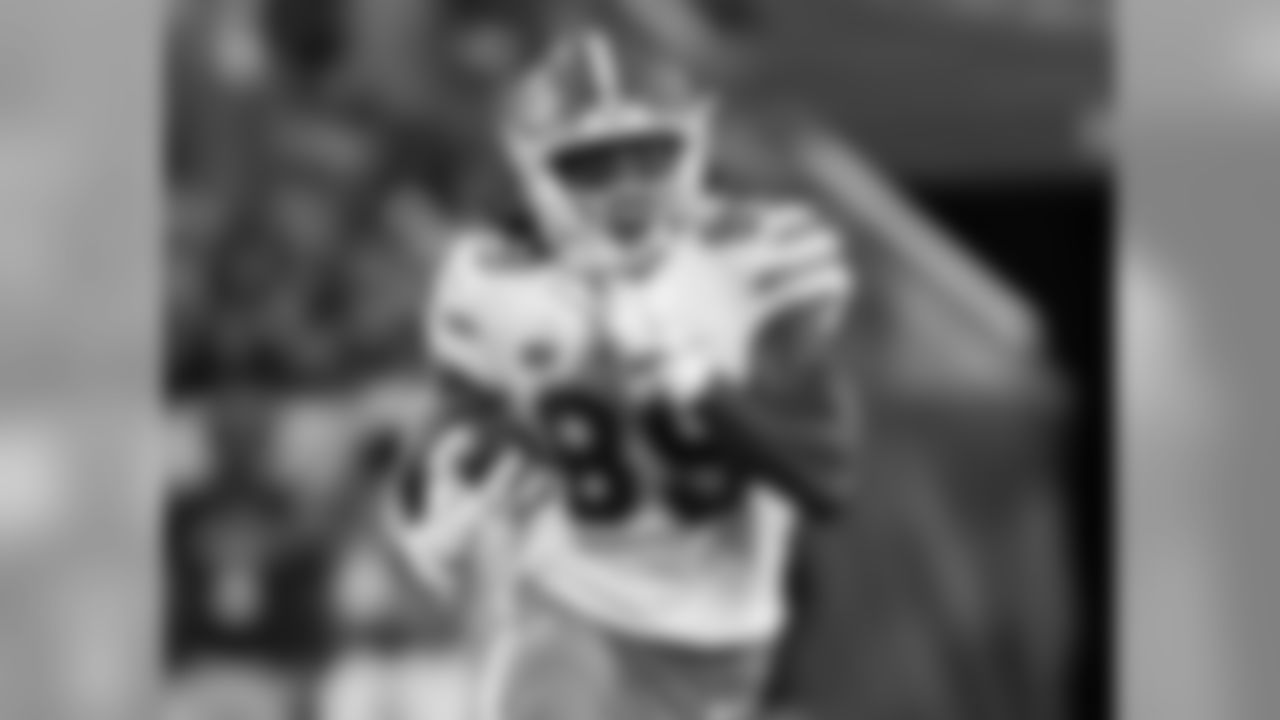
Florida WR Tyrie Cleveland
(AP Photo/David Stephenson)
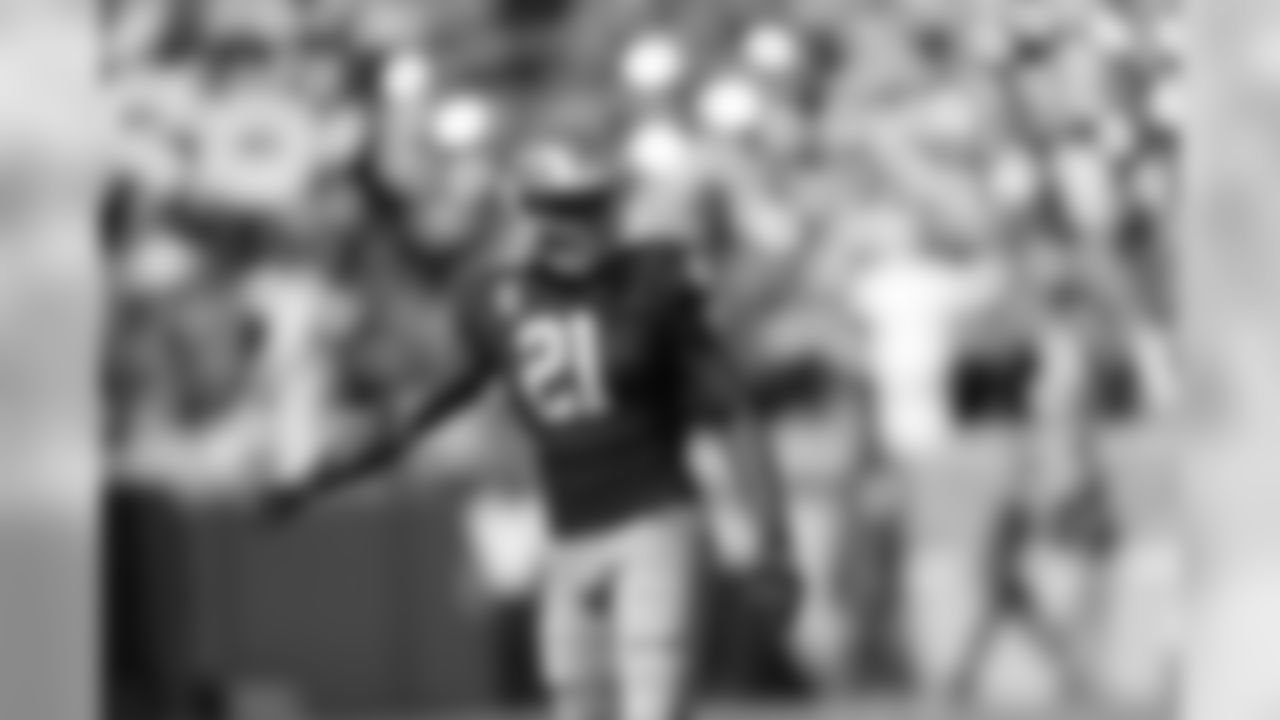
Notre Dame S Jalen Elliott
(AP Photo/Paul Sancya)
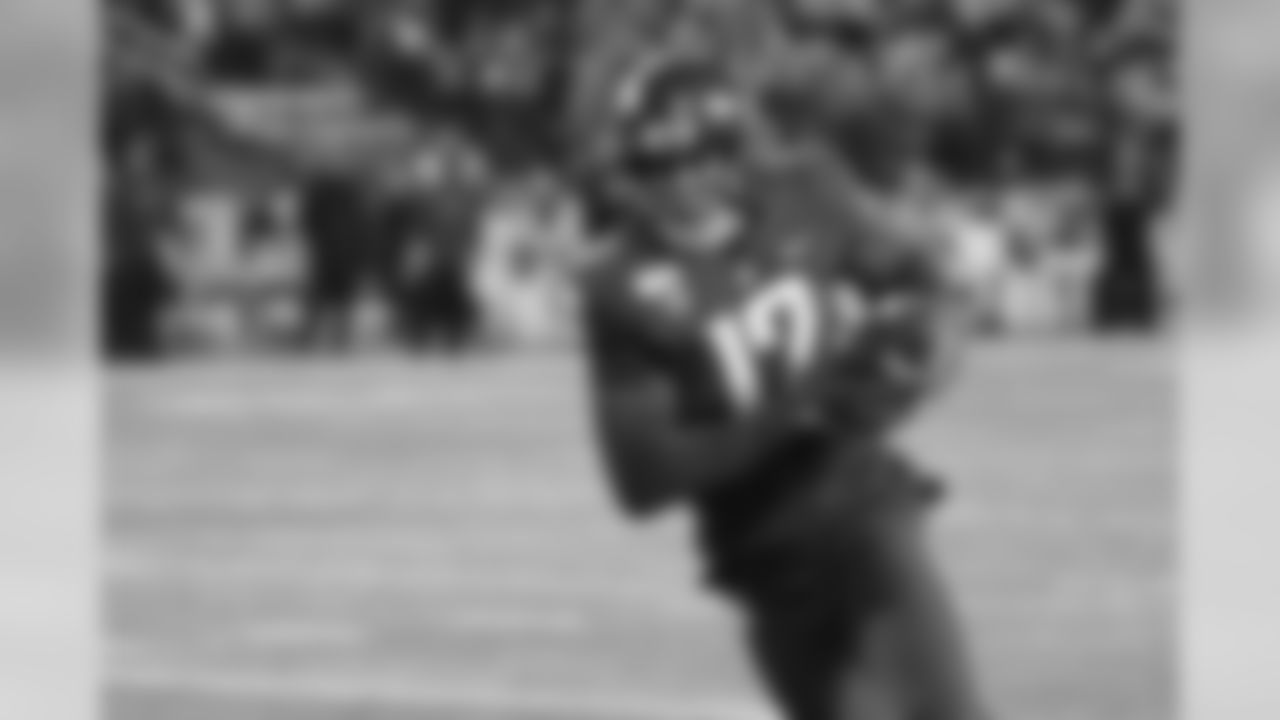
Washington State WR Dezmon Patmon
(AP Photo/Ted S. Warren)
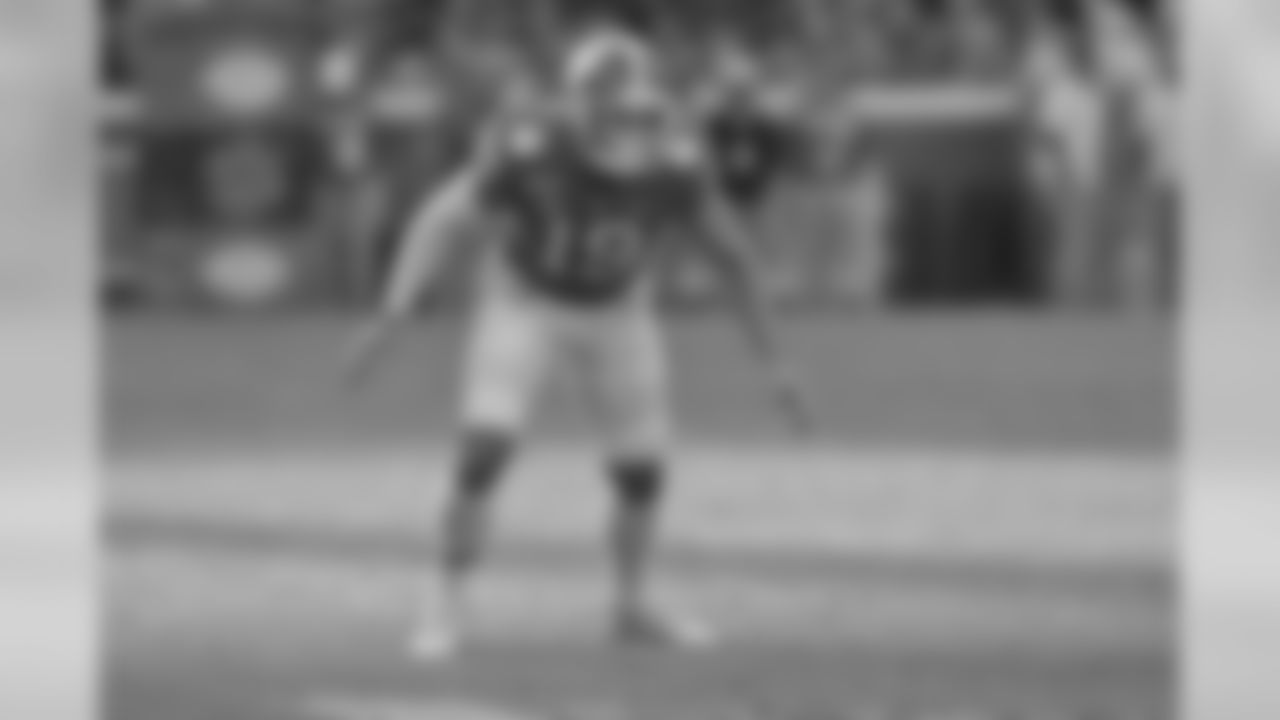
Clemson S Tanner Muse
(AP Photo/Richard Shiro)
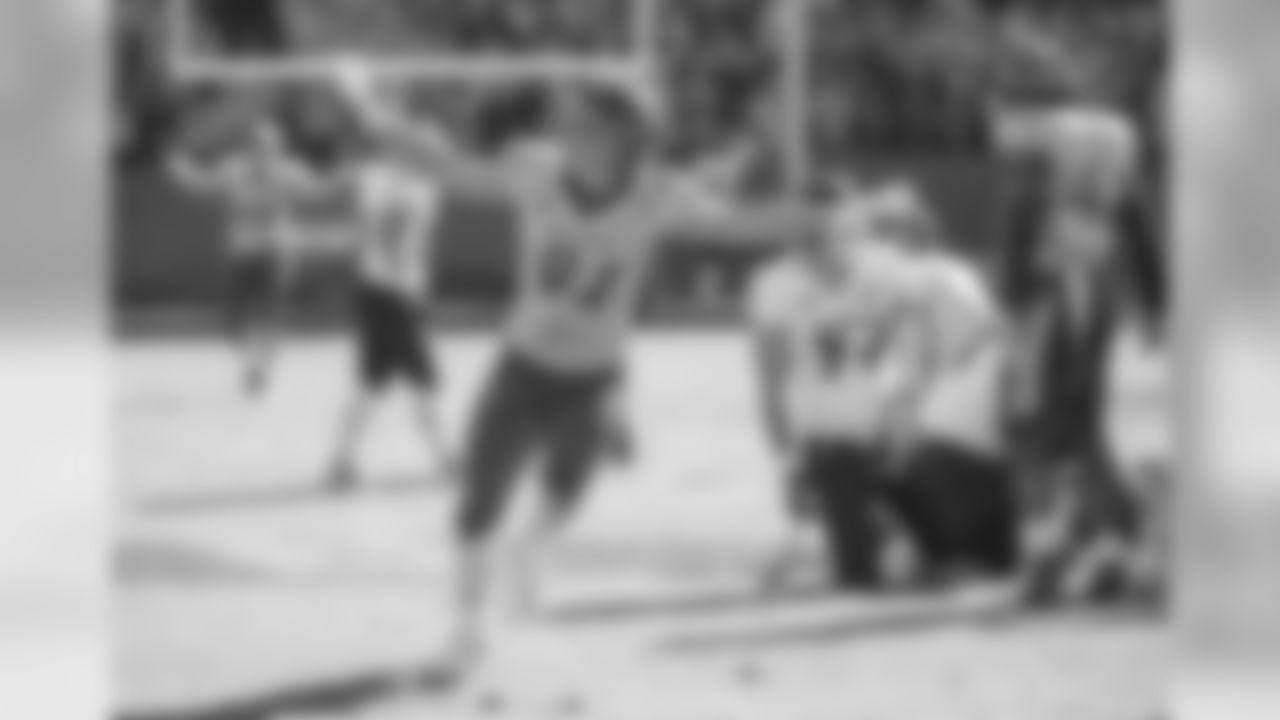
North Dakota State EDGE Derrek Tuszka
(AP Photo/Jeffrey McWhorter)
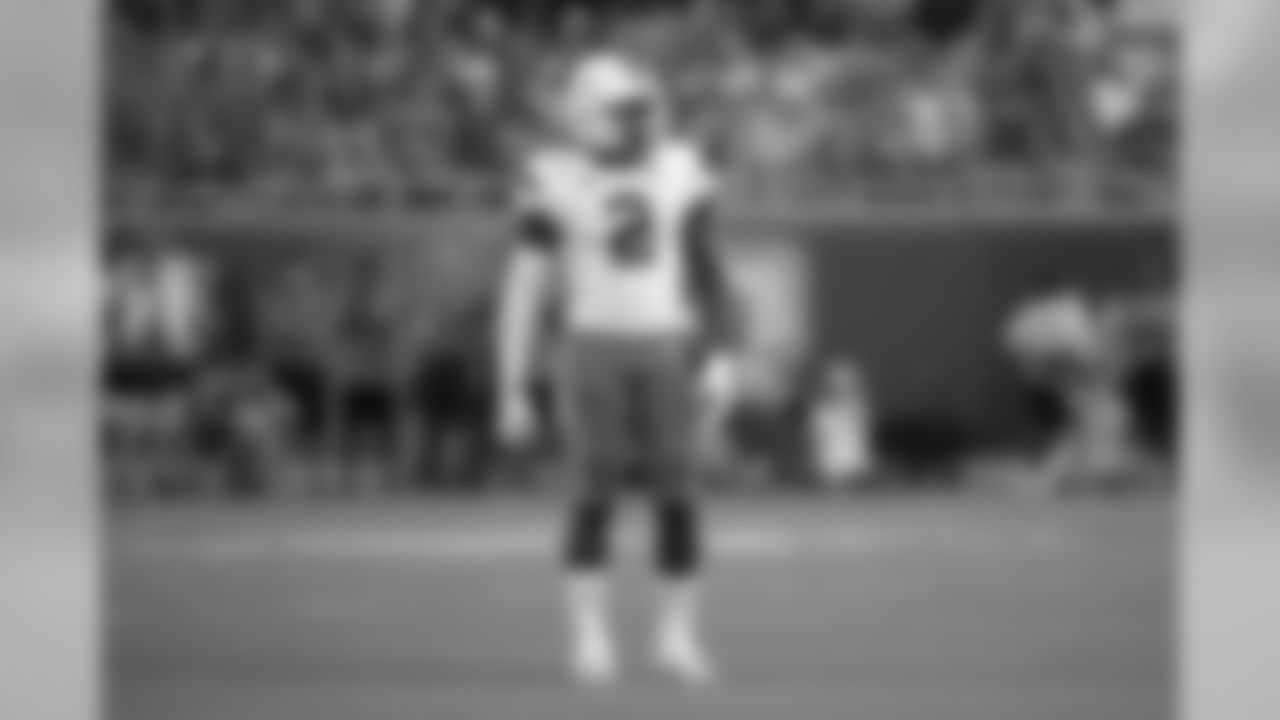
Miami CB Trajan Bandy
(AP Photo/Phelan M. Ebenhack)
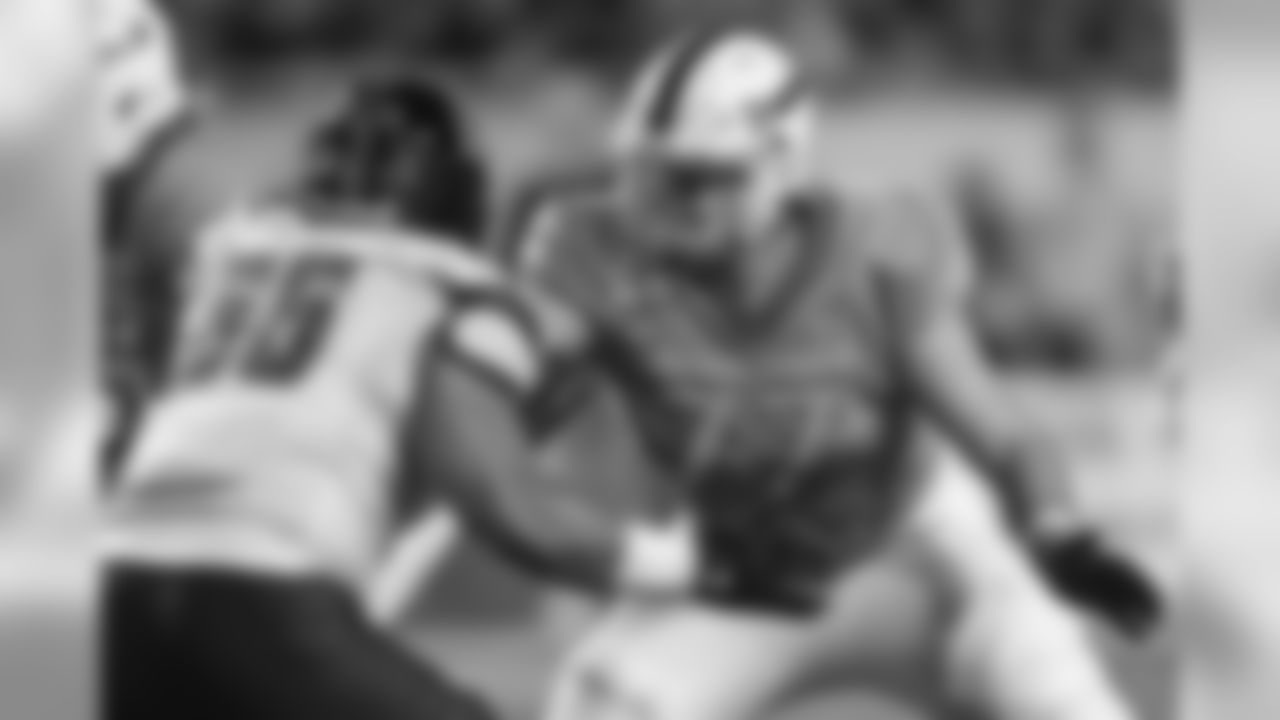
Boise State G John Molchon
(AP Photo/Steve Conner)
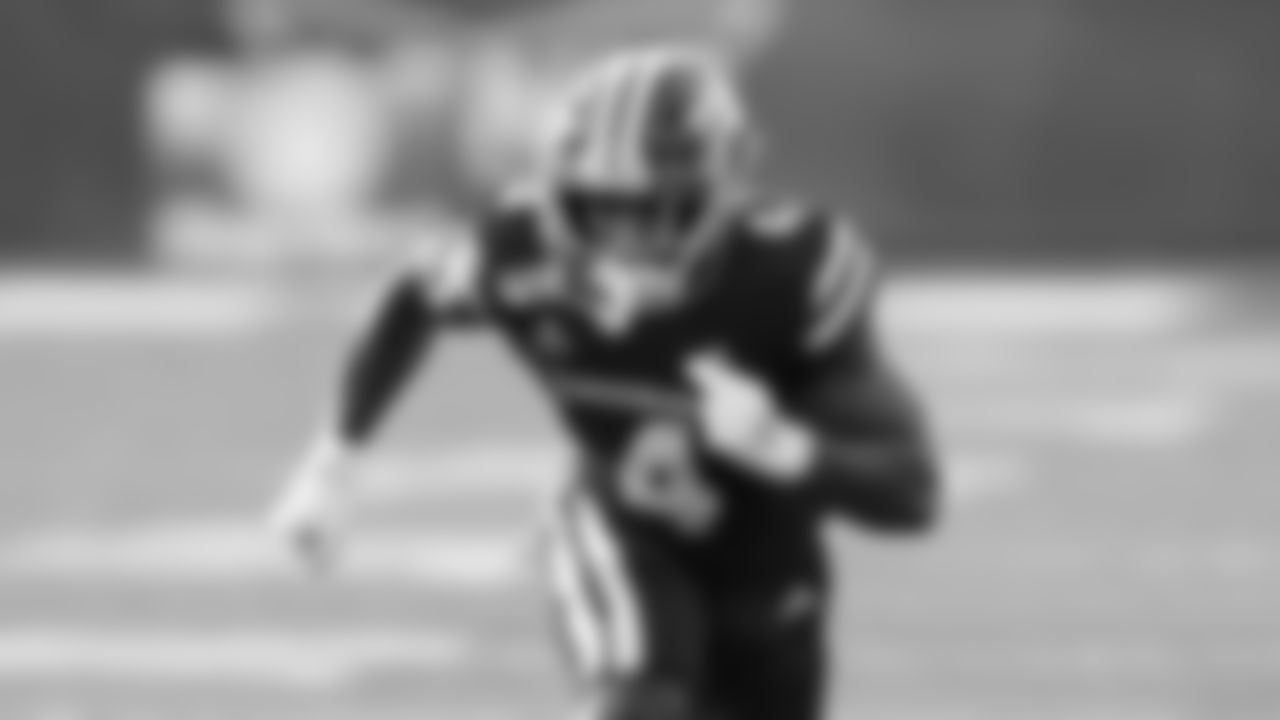
Louisiana Lafayette RB Raymond Calais
(AP Photo/Tyler Kaufman)
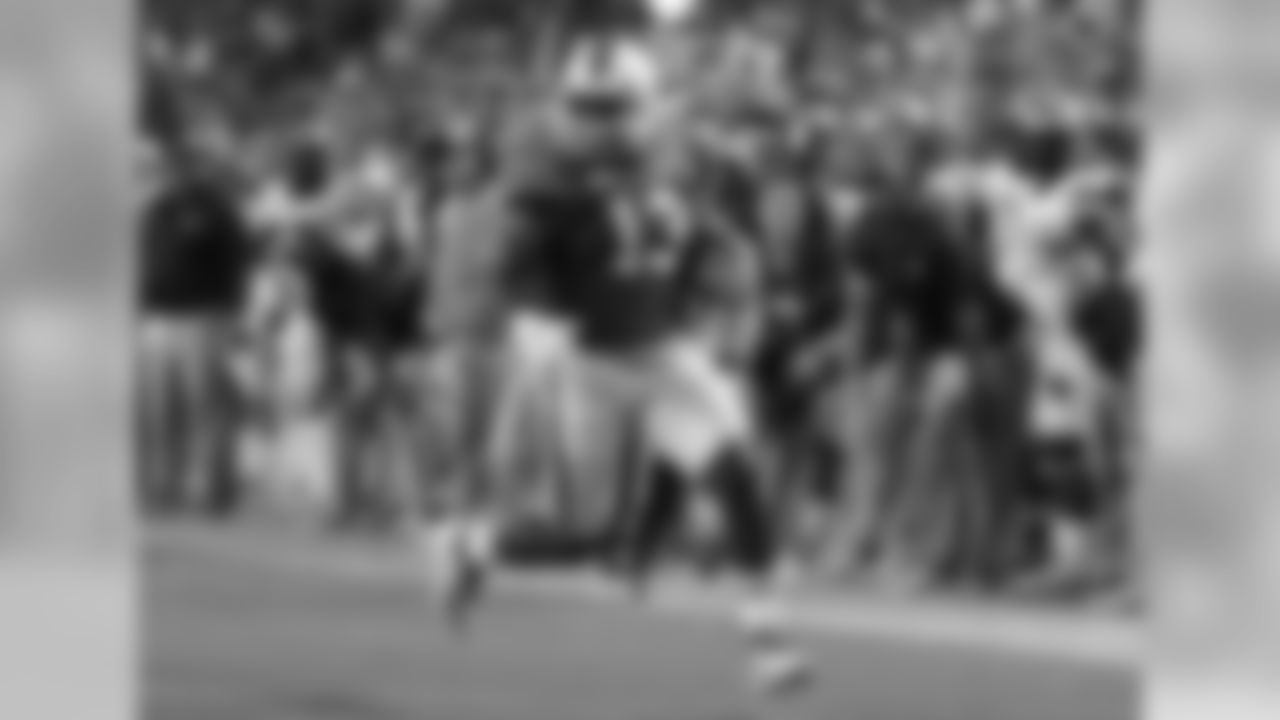
Miami RB DeeJay Dallas
(AP Photo/Lynne Sladky)
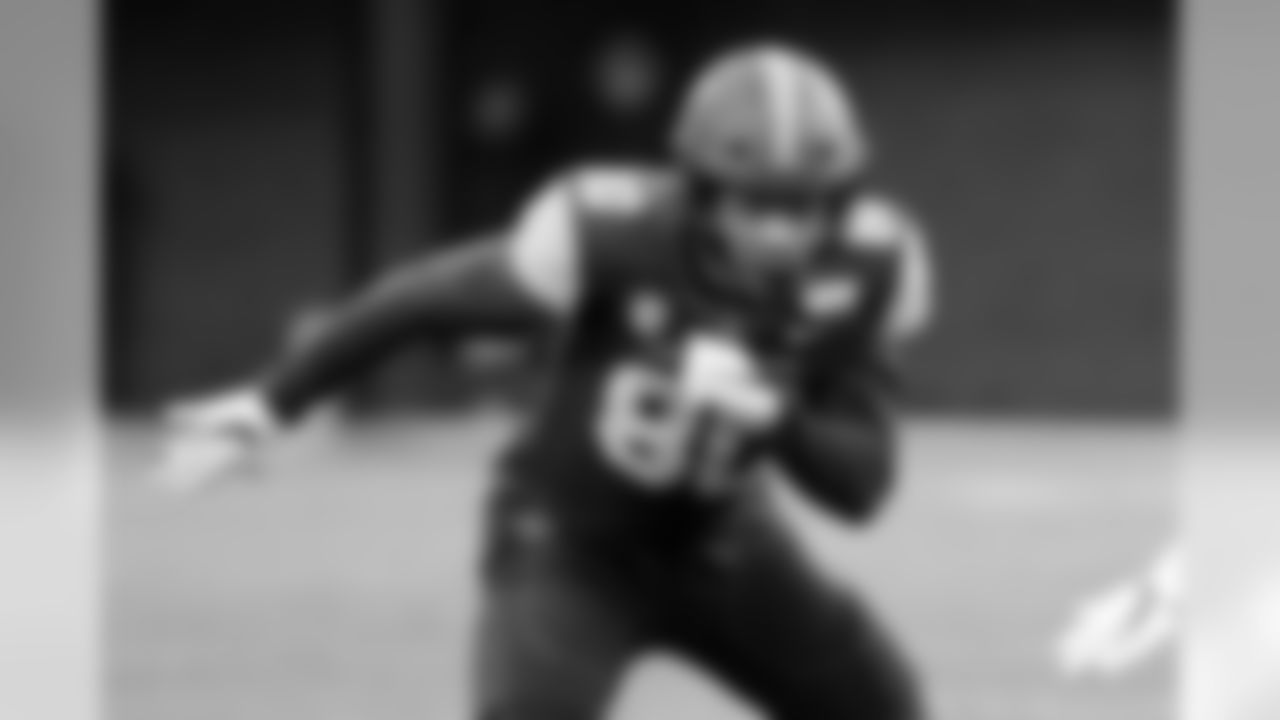
Vanderbilt TE Jared Pinkney
(AP Photo/Mark Humphrey)
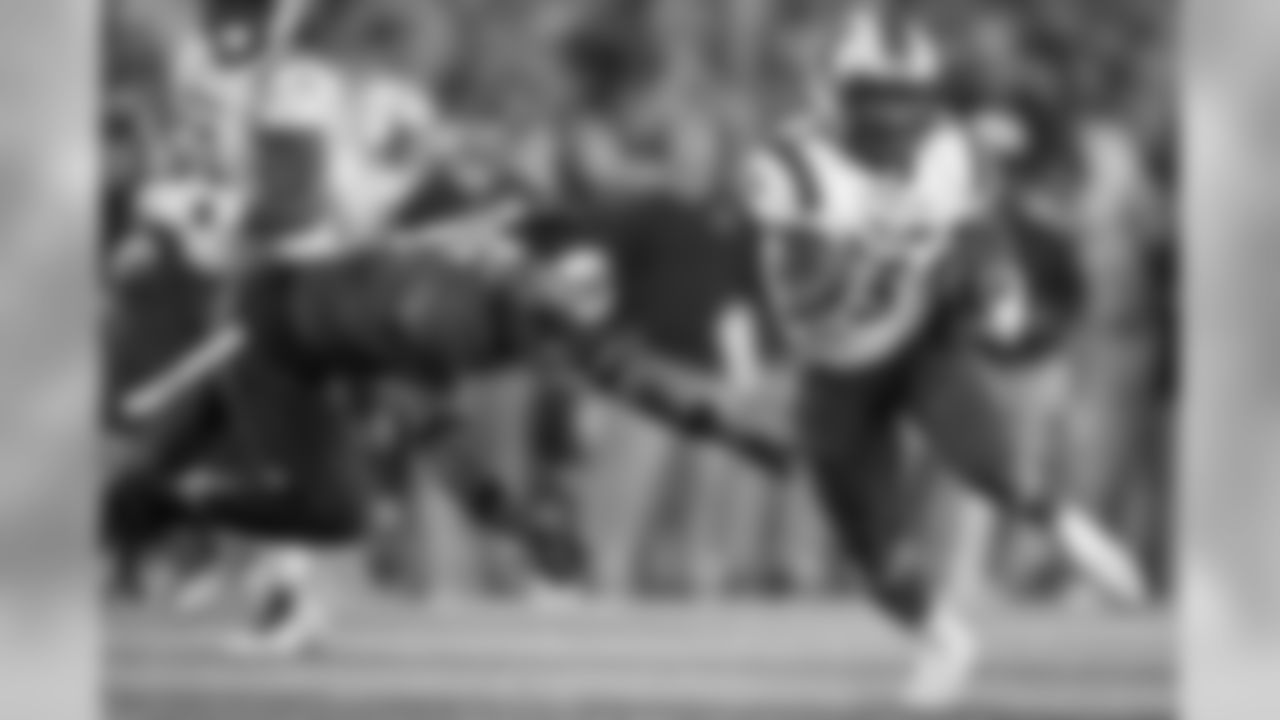
South Carolina RB Rico Dowdle
(AP Photo/Bryan Woolston)
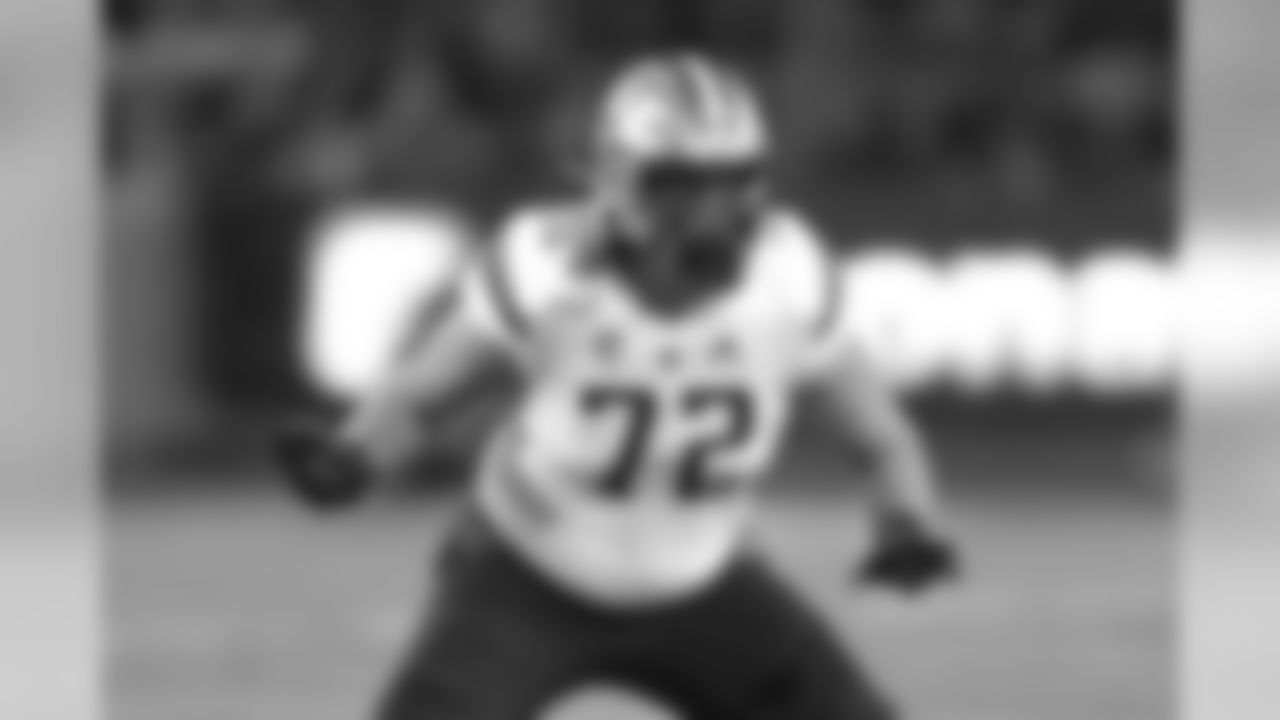
Washington OT Trey Adams
(AP Photo/Rick Scuteri)
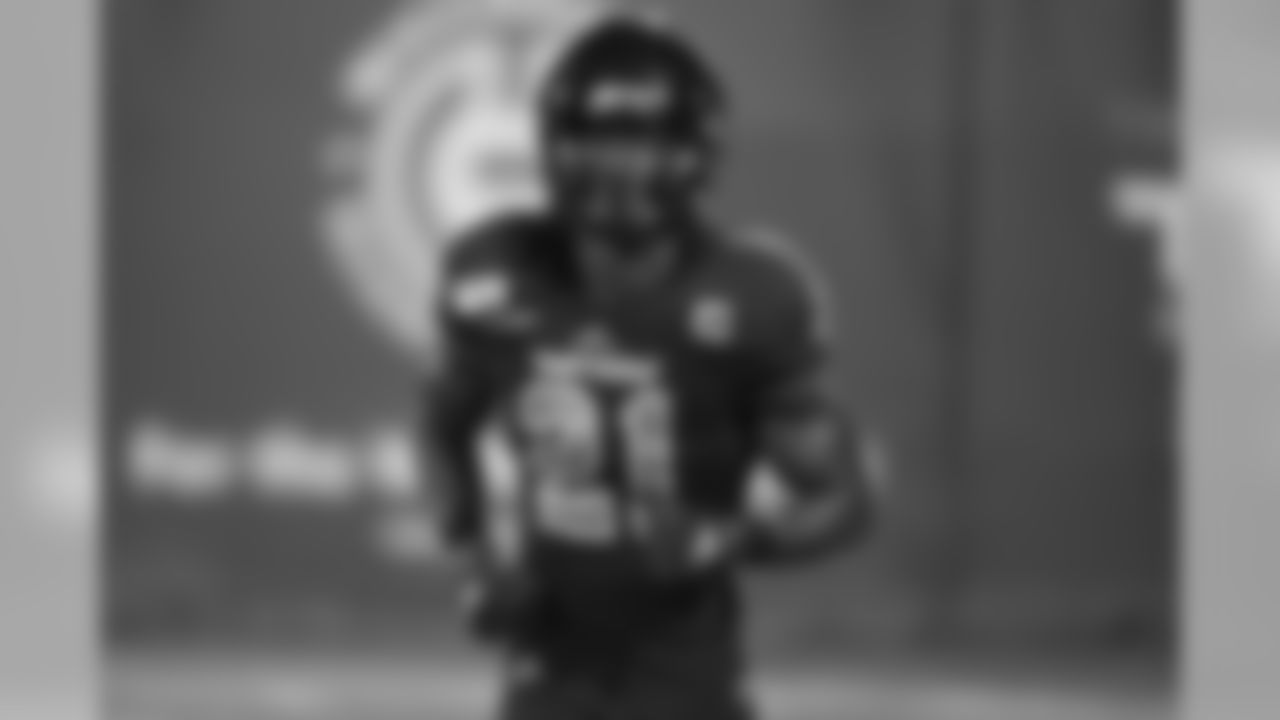
FIU CB Stantley Thomas-Oliver III
(AP Photo/Doug Murray)
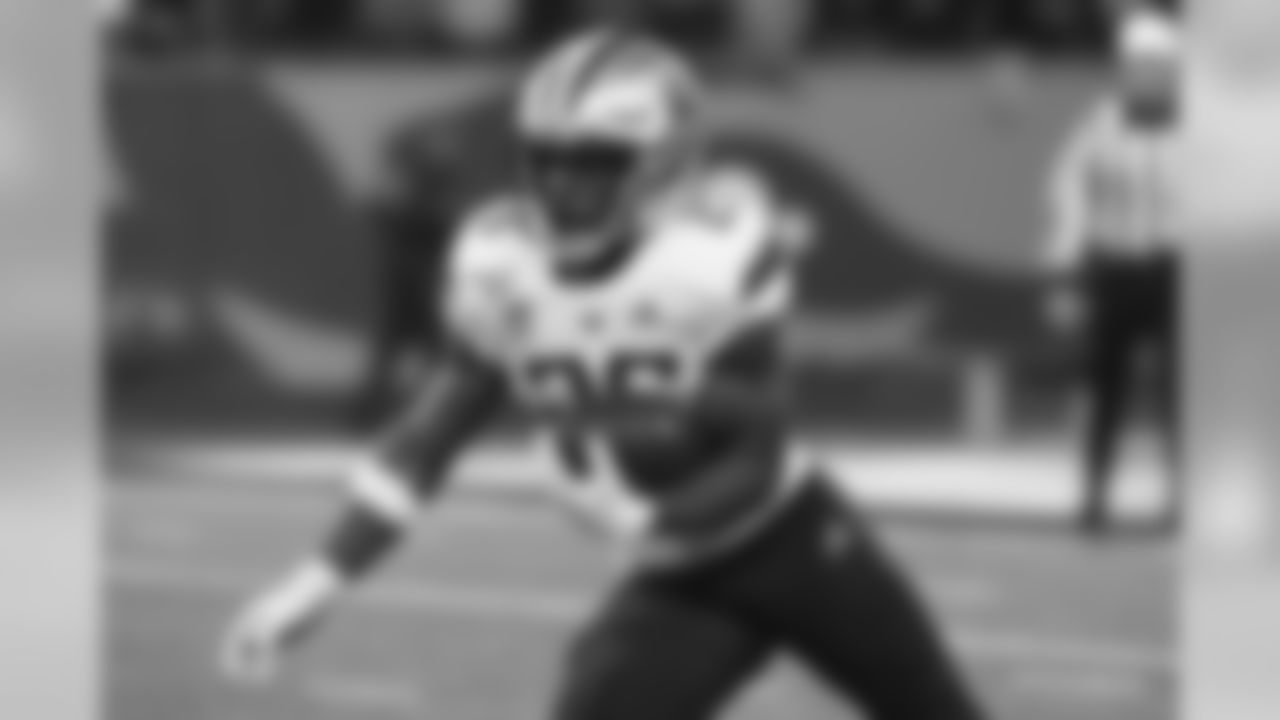
Washington RB Salvon Ahmed
(AP Photo/Amanda Loman)
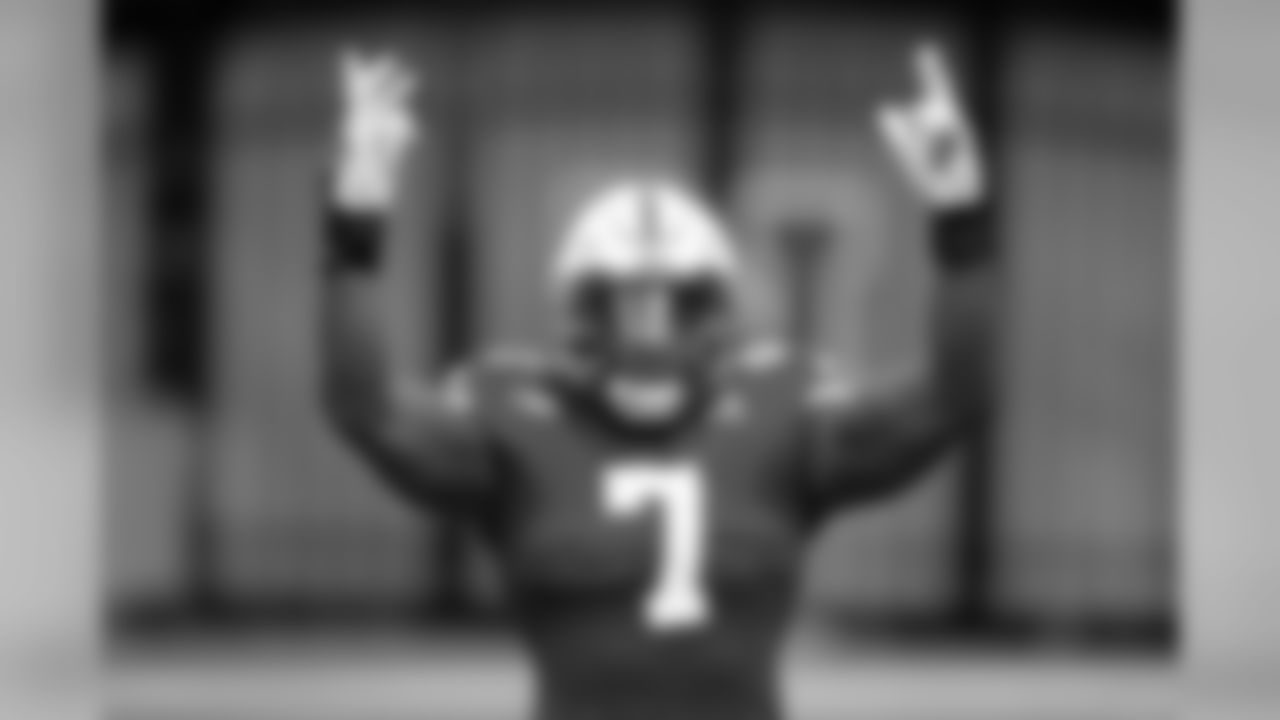
Nebraska LB Mohamed Barry
(AP Photo/Nati Harnik)
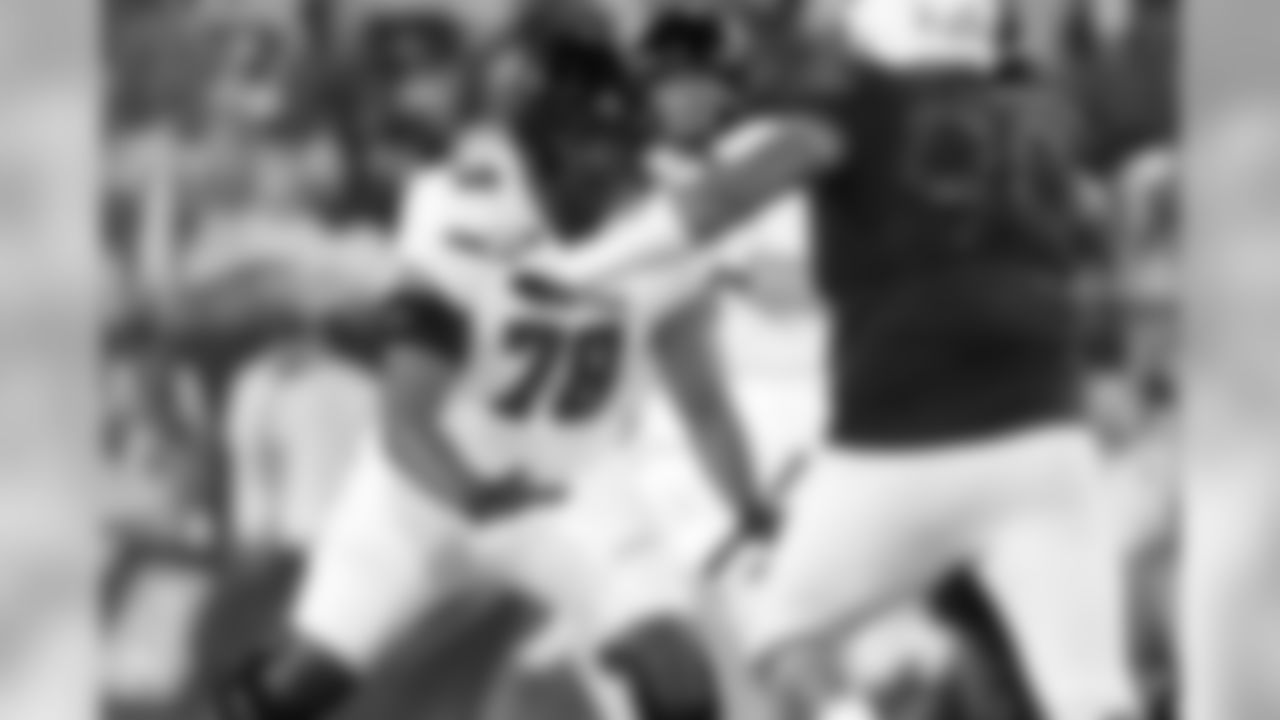
Texas Tech OT Terence Steele
(AP Photo/Ralph Freso)
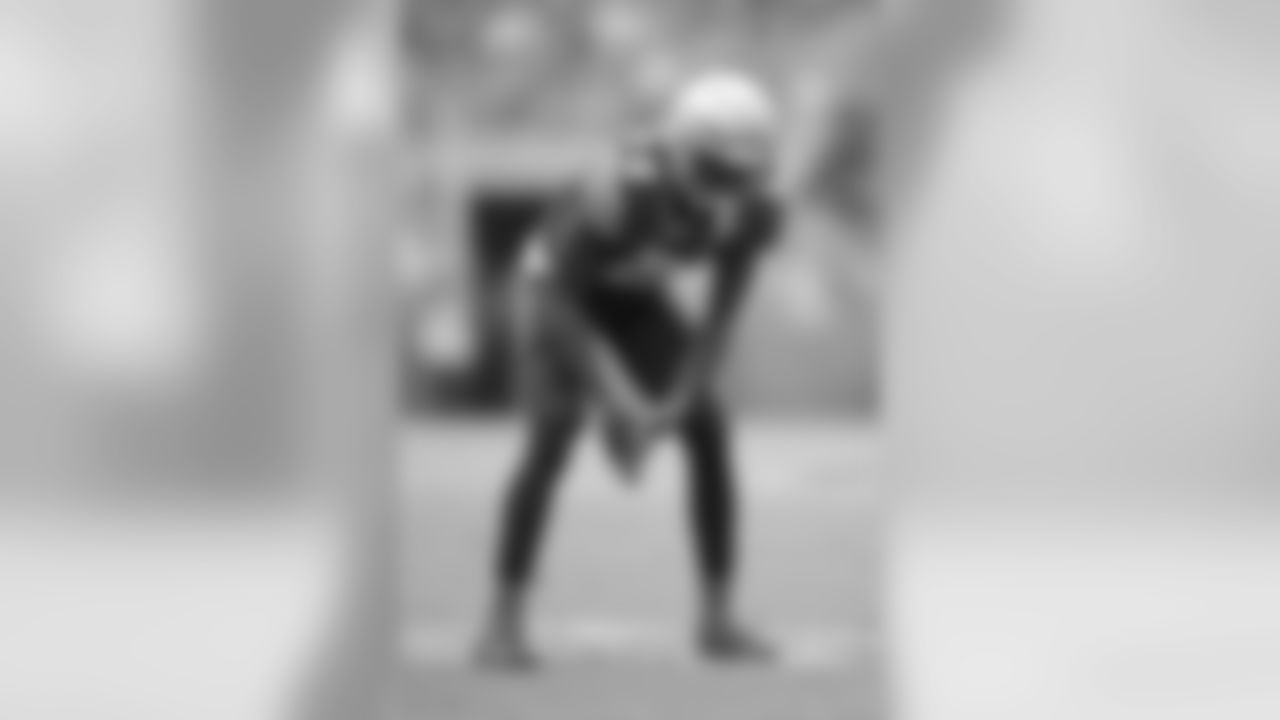
Florida State CB Stanford Samuels III
(Tom DiPace via AP)
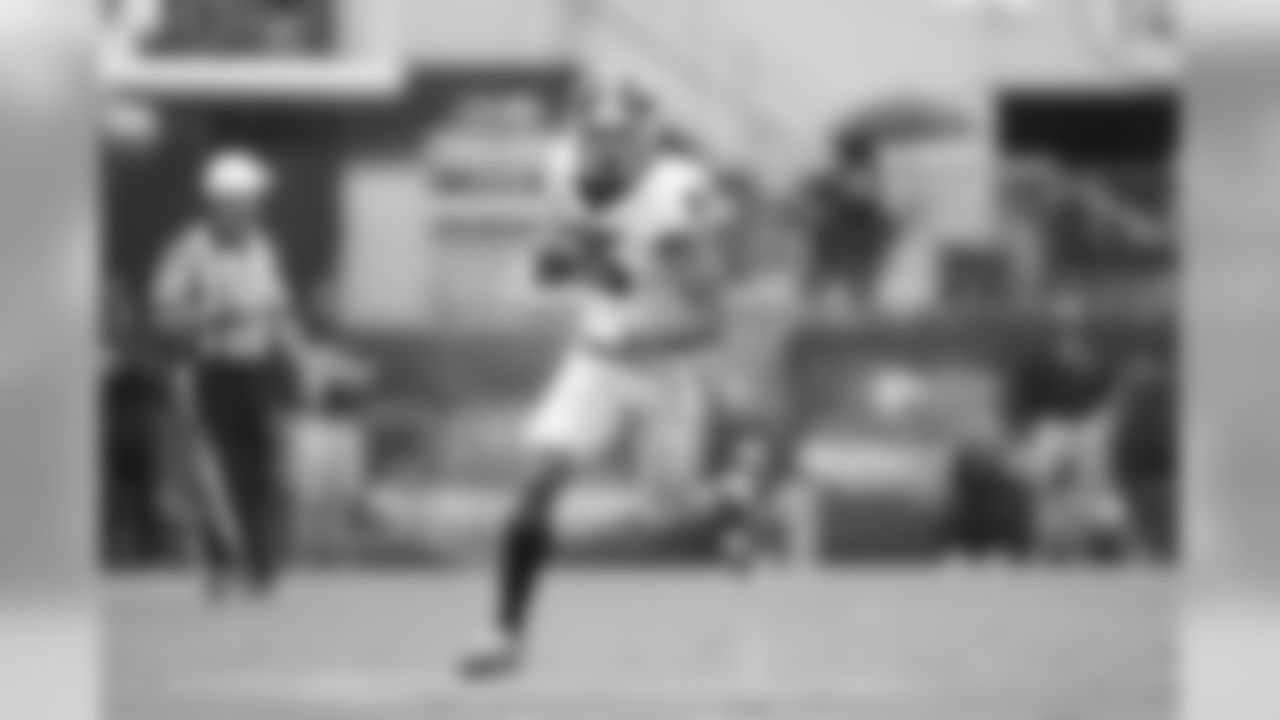
Georgia WR Lawrence Cager
(Tom DiPace via AP)
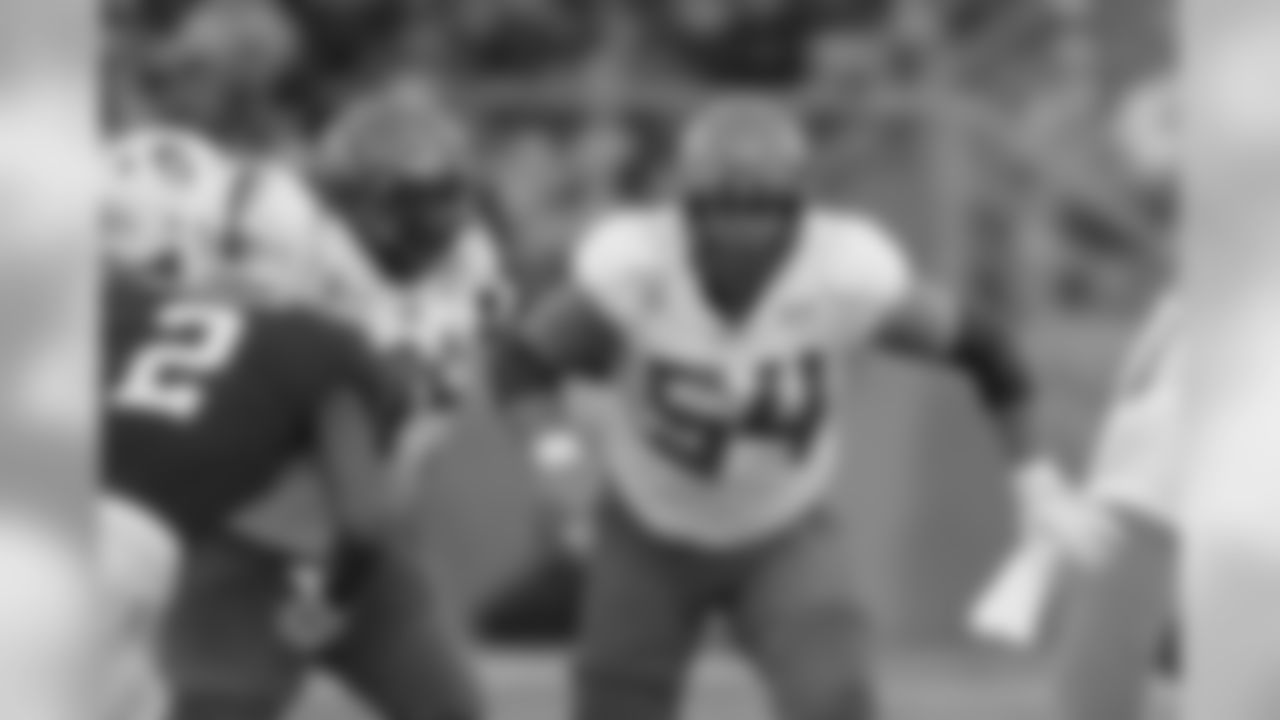
Oregon G Calvin Throckmorton
(AP Photo/Tony Avelar)
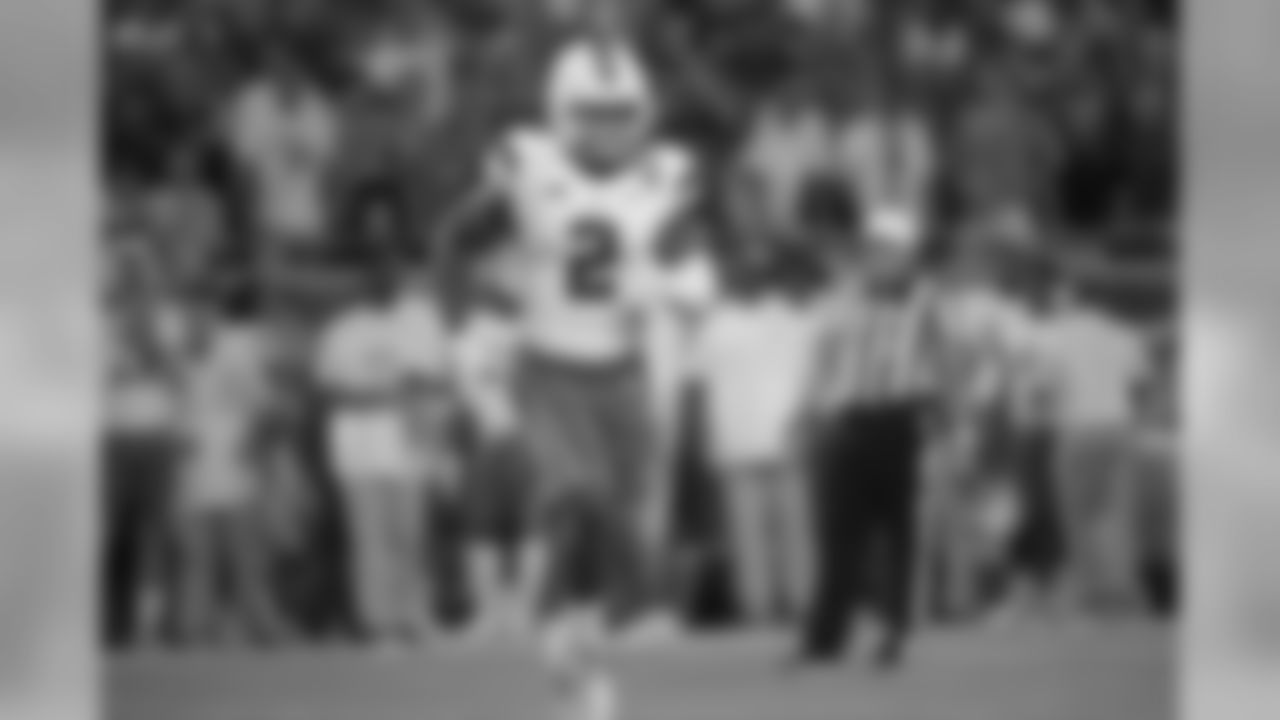
Miami WR K.J. Osborn
(AP Photo/Phelan M. Ebenhack)
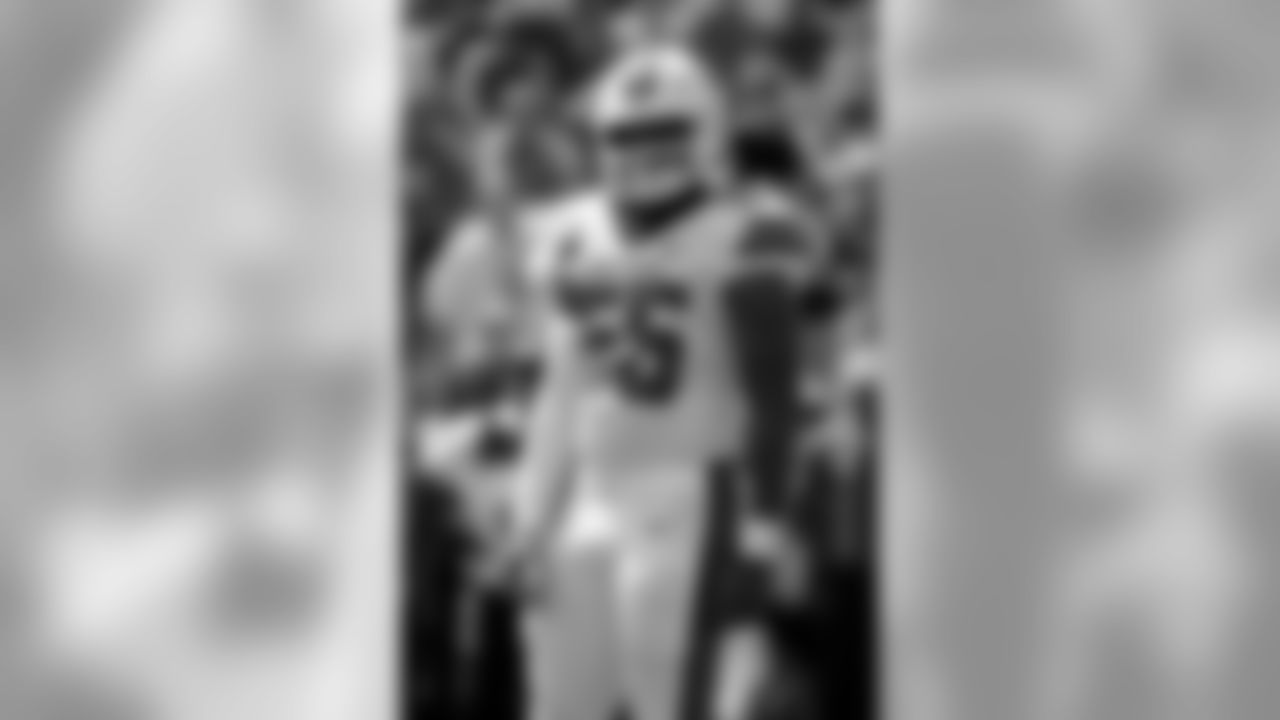
Syracuse EDGE Kendall Coleman
(AP Photo/Will Newton)
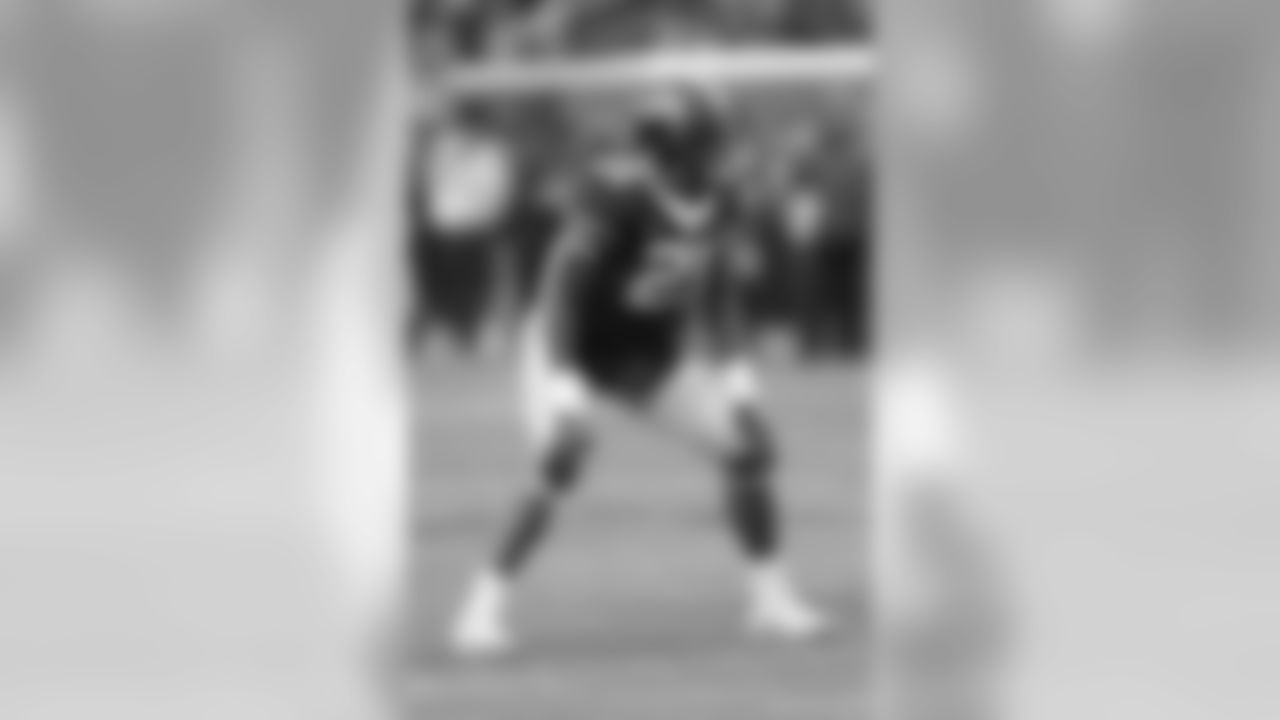
Minnesota LB Kamal Martin
(AP Photo/Andy Clayton-King)
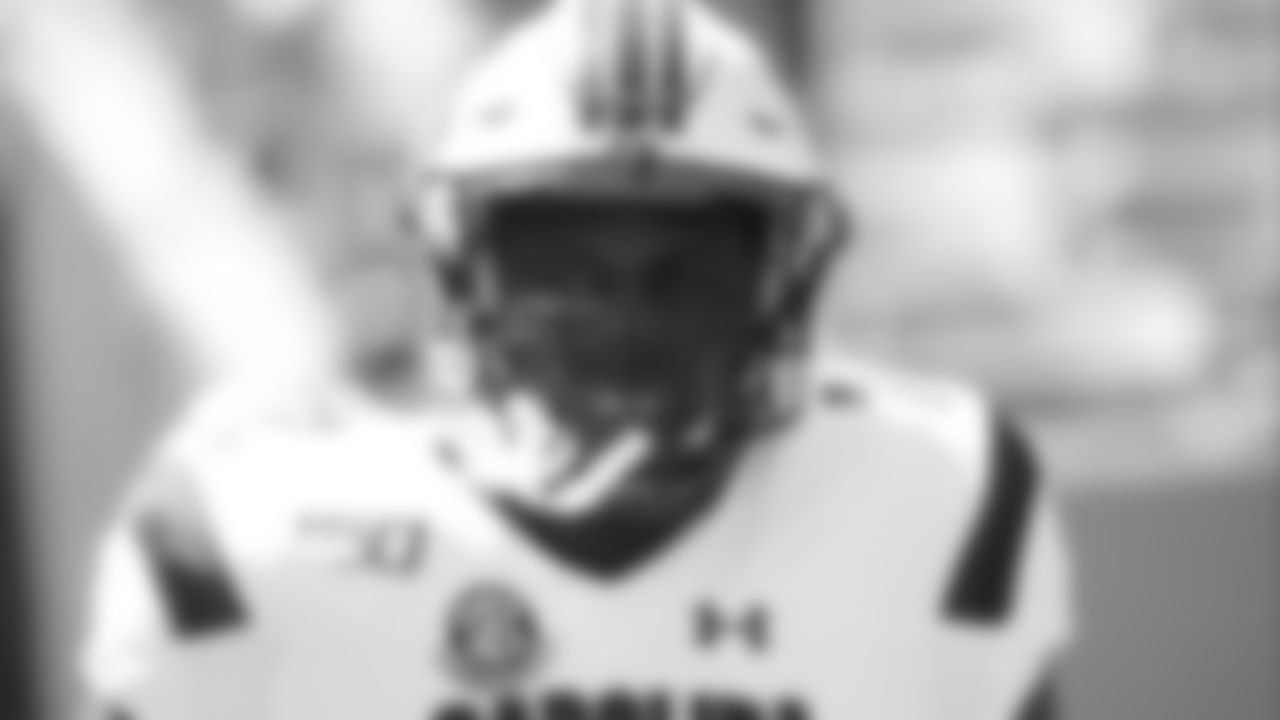
South Carolina IOL Donell Stanley
(AP Photo/Brian Blanco)
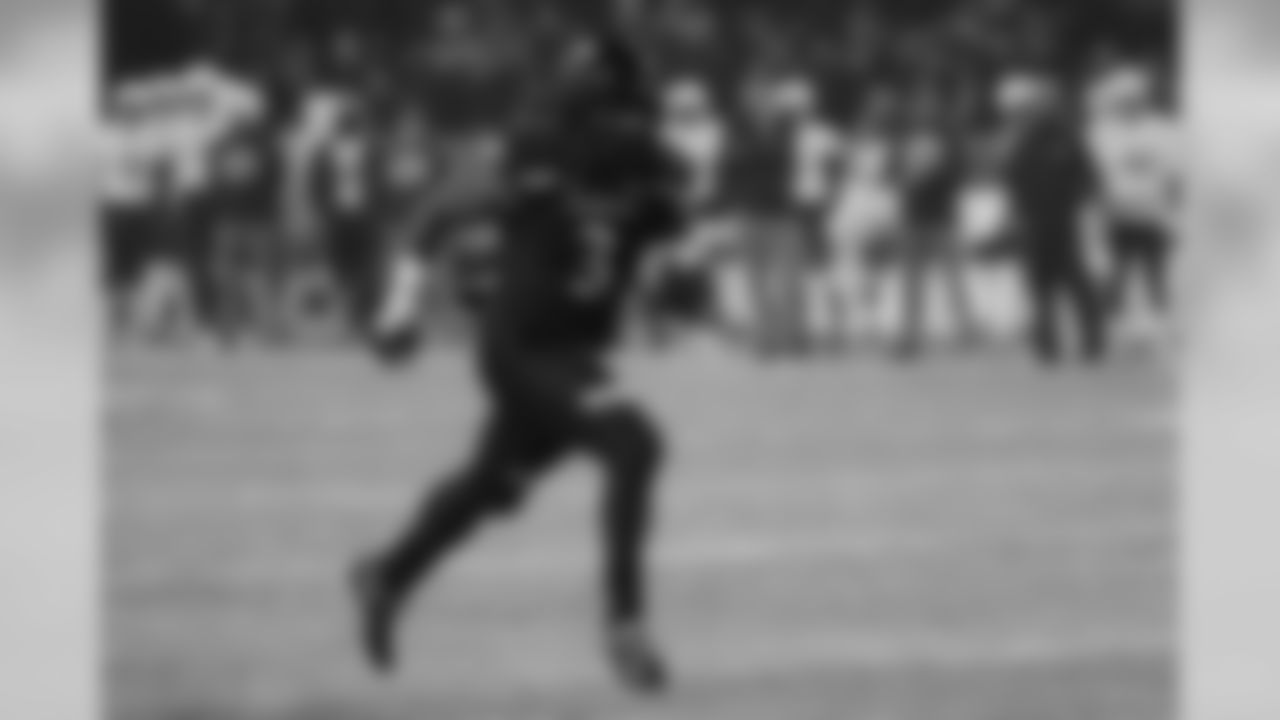
Cincinnati RB Mike Warren
(AP Photo/John Minchillo)
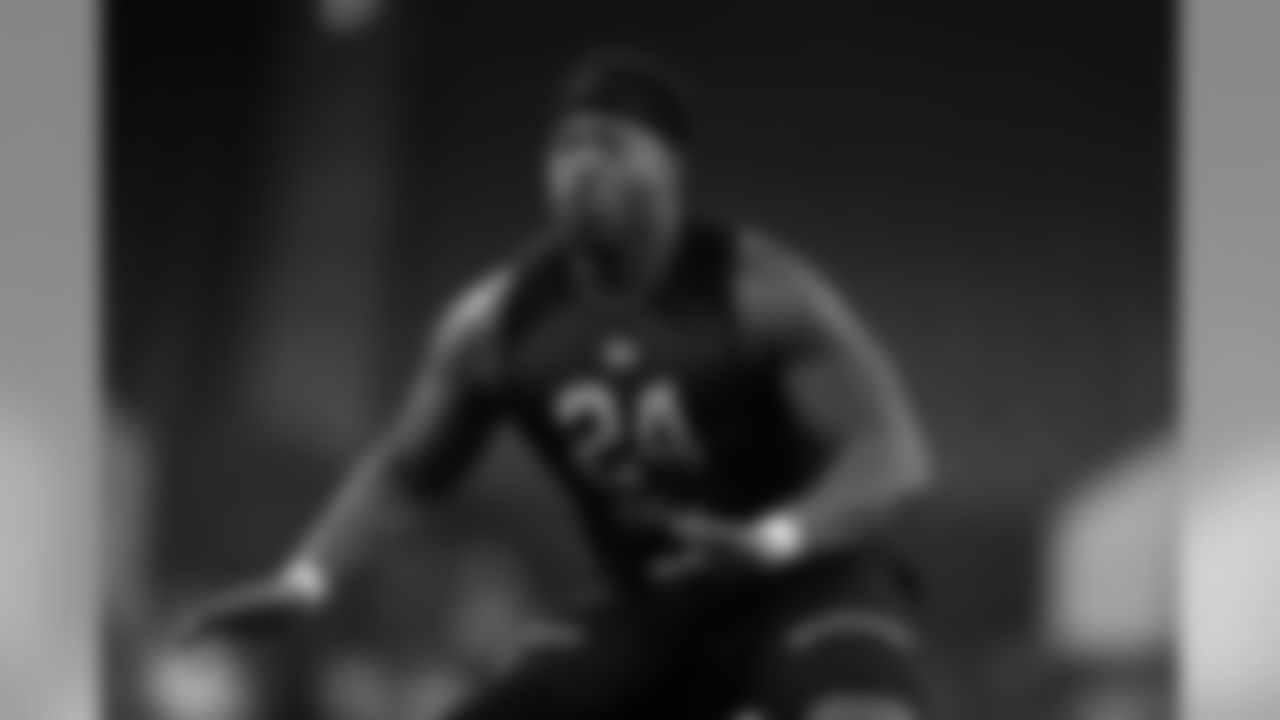
TCU G Cordel Iwuagwu
(AP Photo/Michael Conroy)
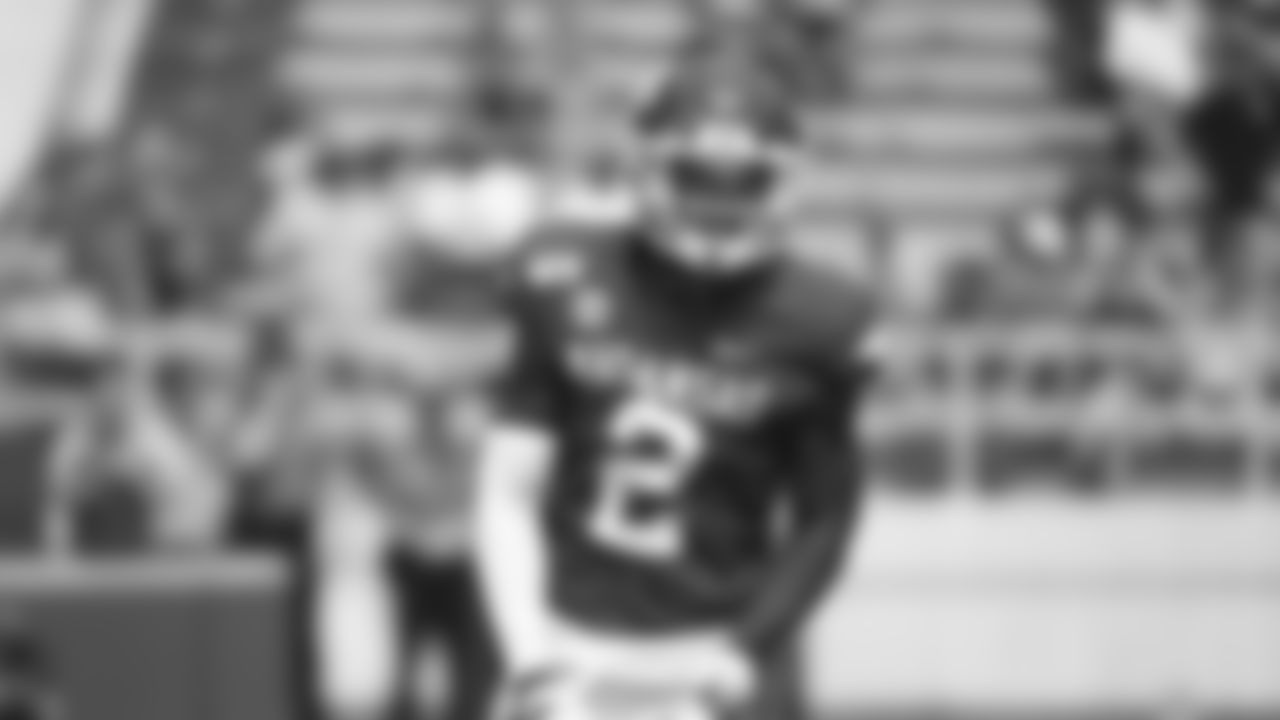
Arkansas CB Kamren Curl
(AP Photo/Michael Woods)
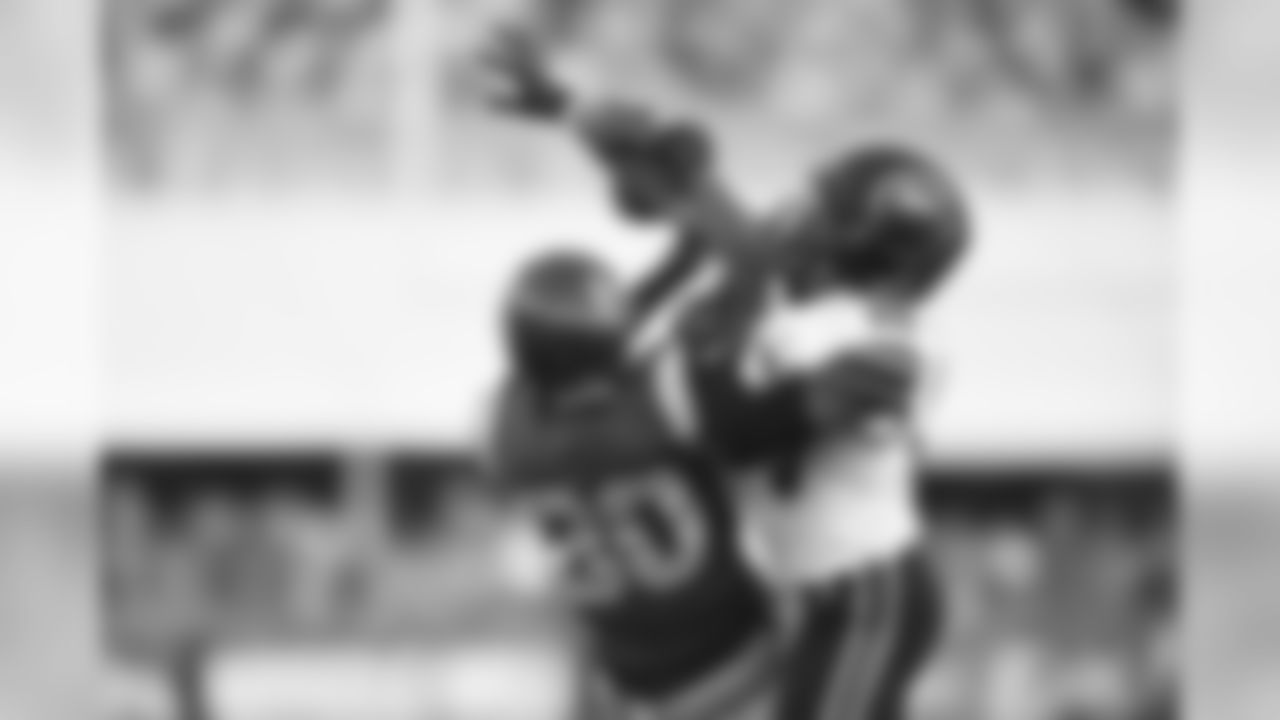
Utah CB Javelin Guidry
(AP Photo/Kelvin Kuo)
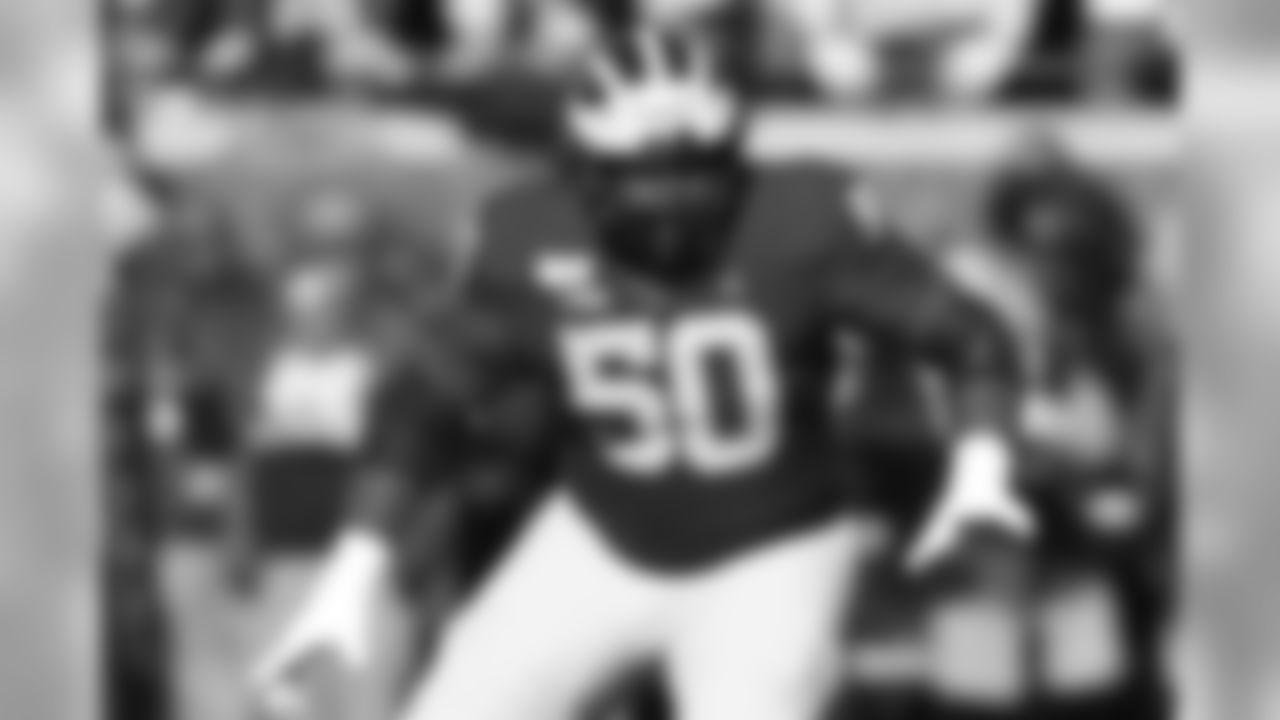
Michigan G Michael Onwenu
(AP Photo/Paul Sancya)
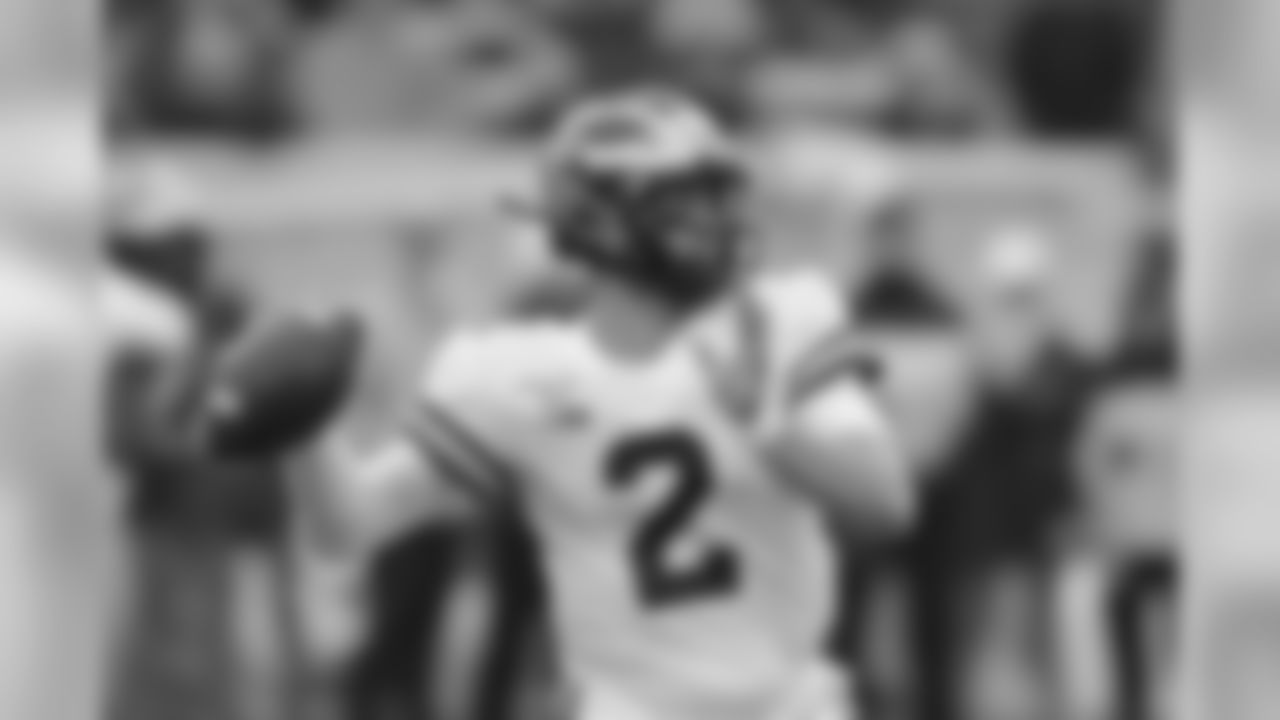
Michigan QB Shea Patterson
(AP Photo/Darron Cummings)
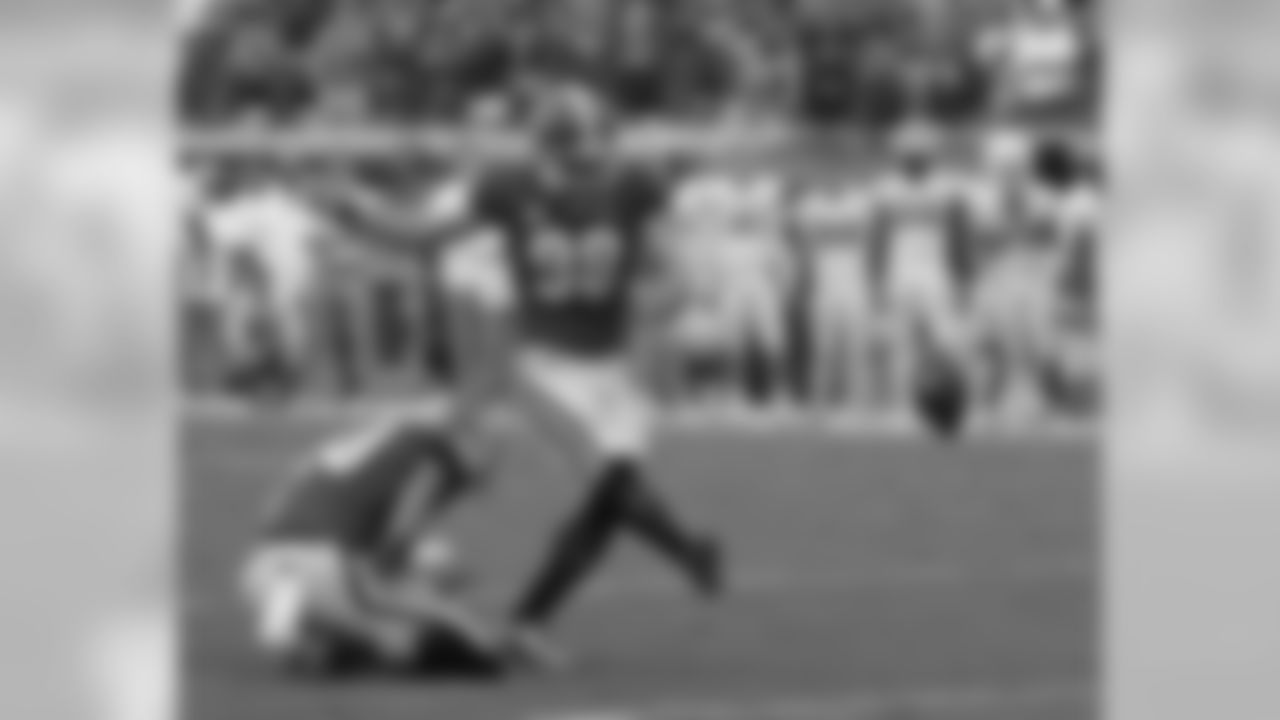
Georgia K Rodrigo Blankenship
(AP Photo/John Raoux)
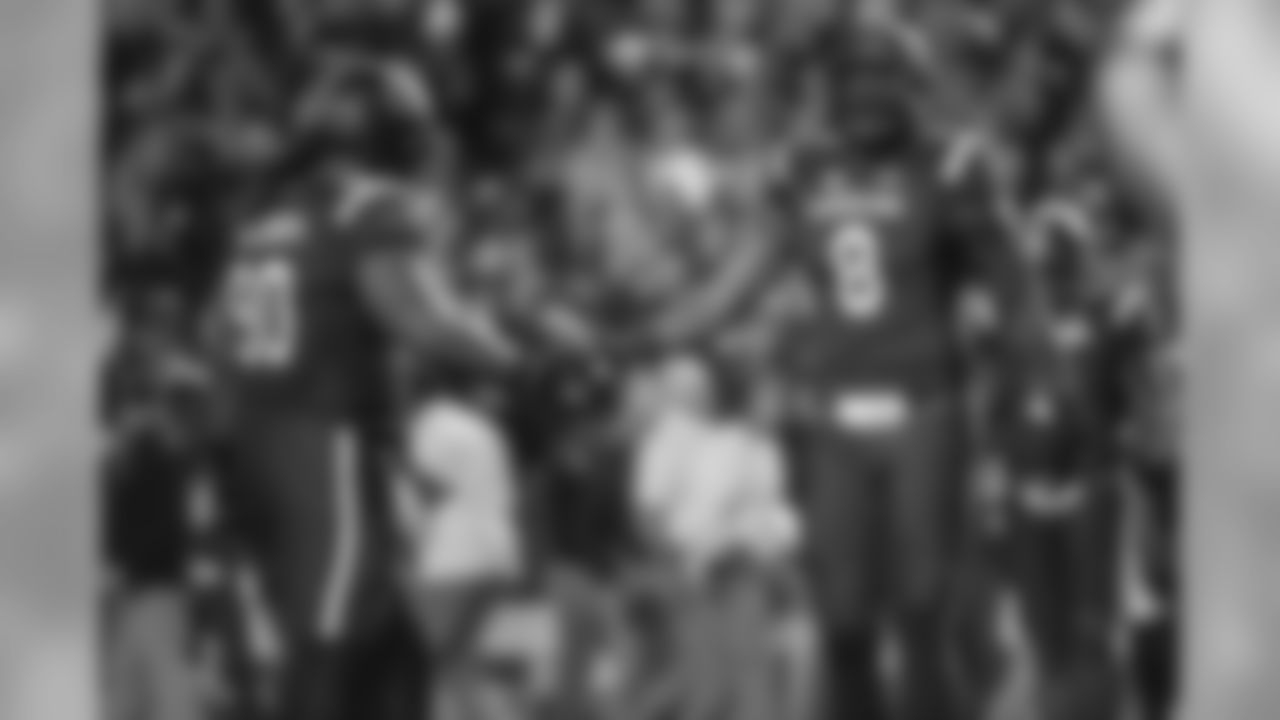
South Carolina EDGE D.J. Wonnum
(AP Photo/Sean Rayford)
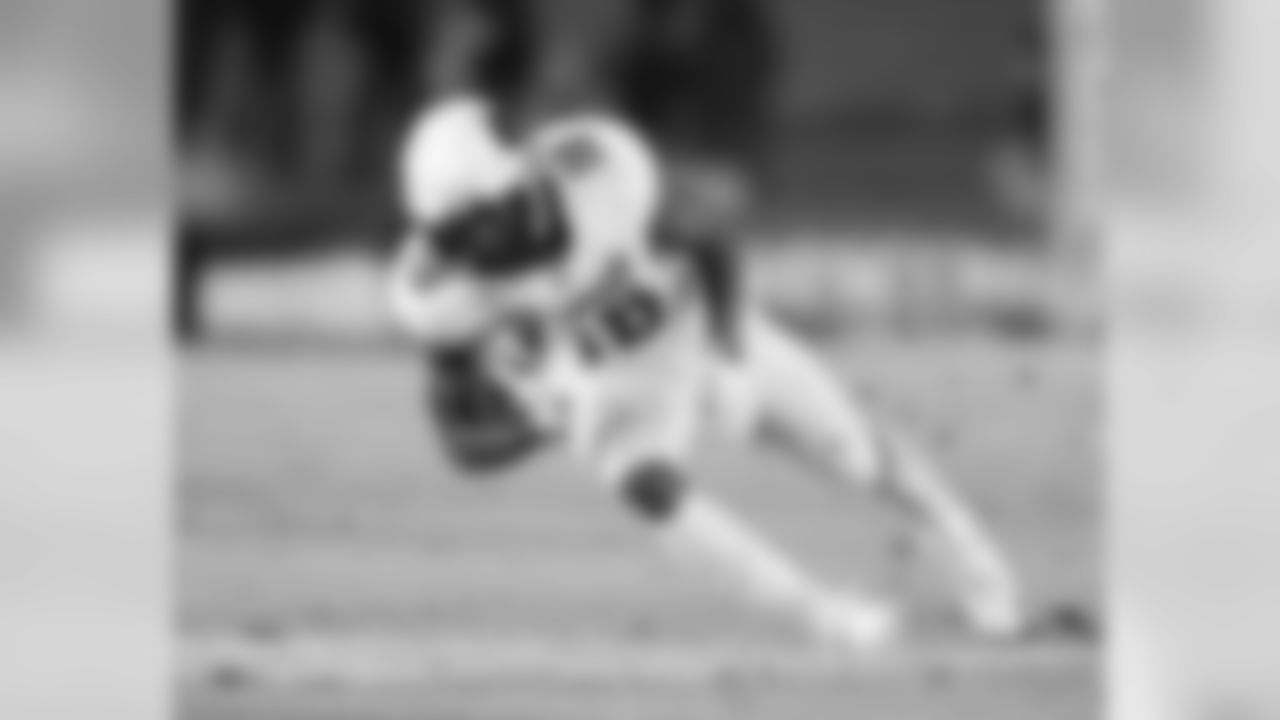
Colorado WR Tony Brown
(AP Photo/Kelvin Kuo)
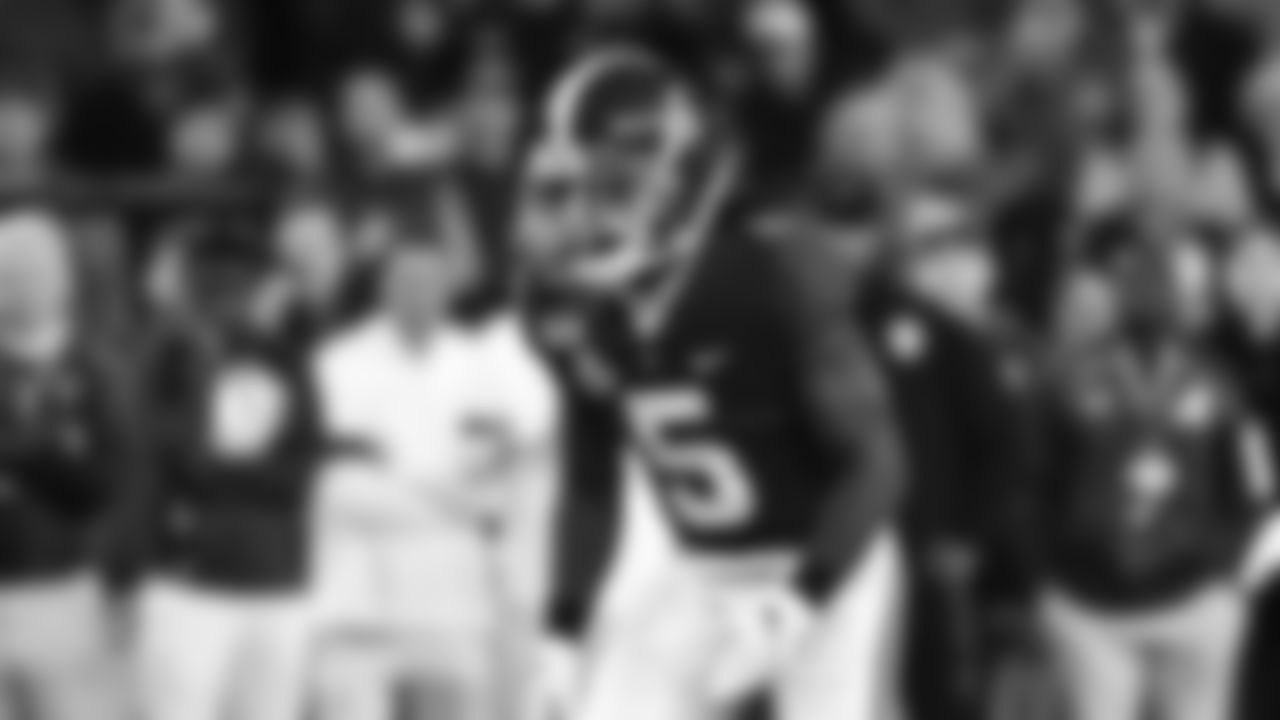
Alabama S Shyheim Carter
(AP Photo/Vasha Hunt)
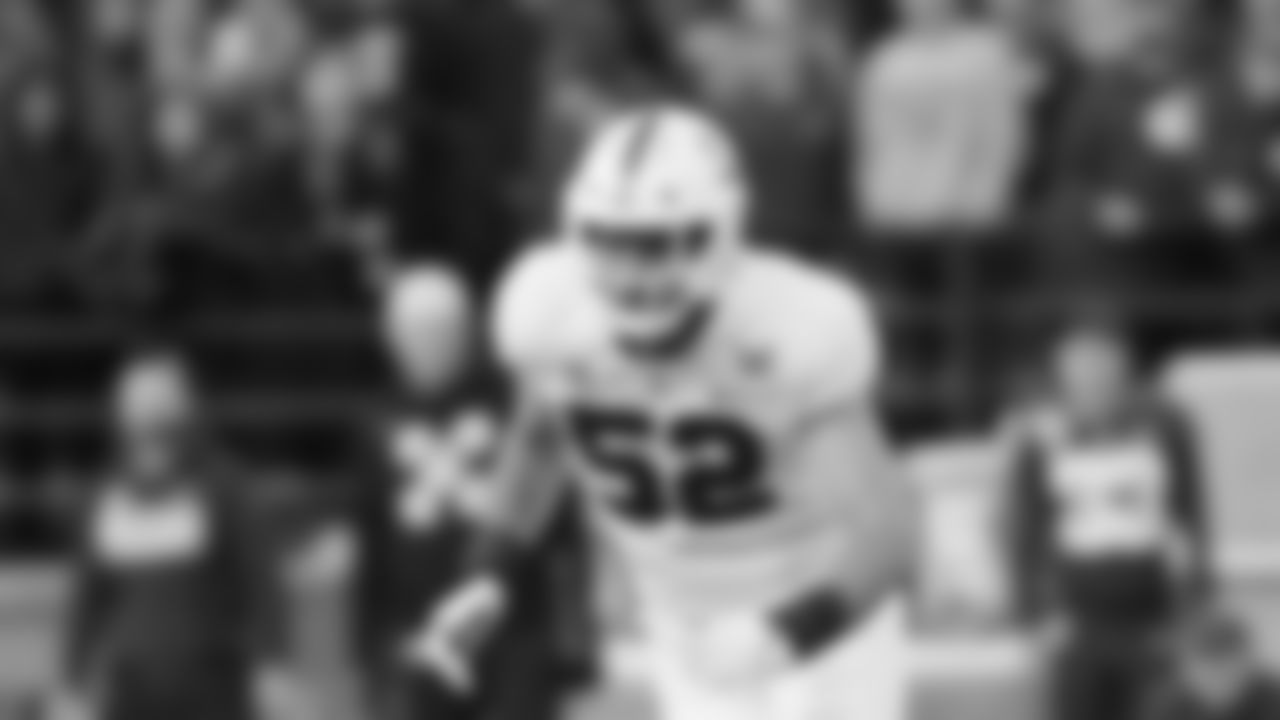
Stanford LB Casey Toohill
(AP Photo/Young Kwak)
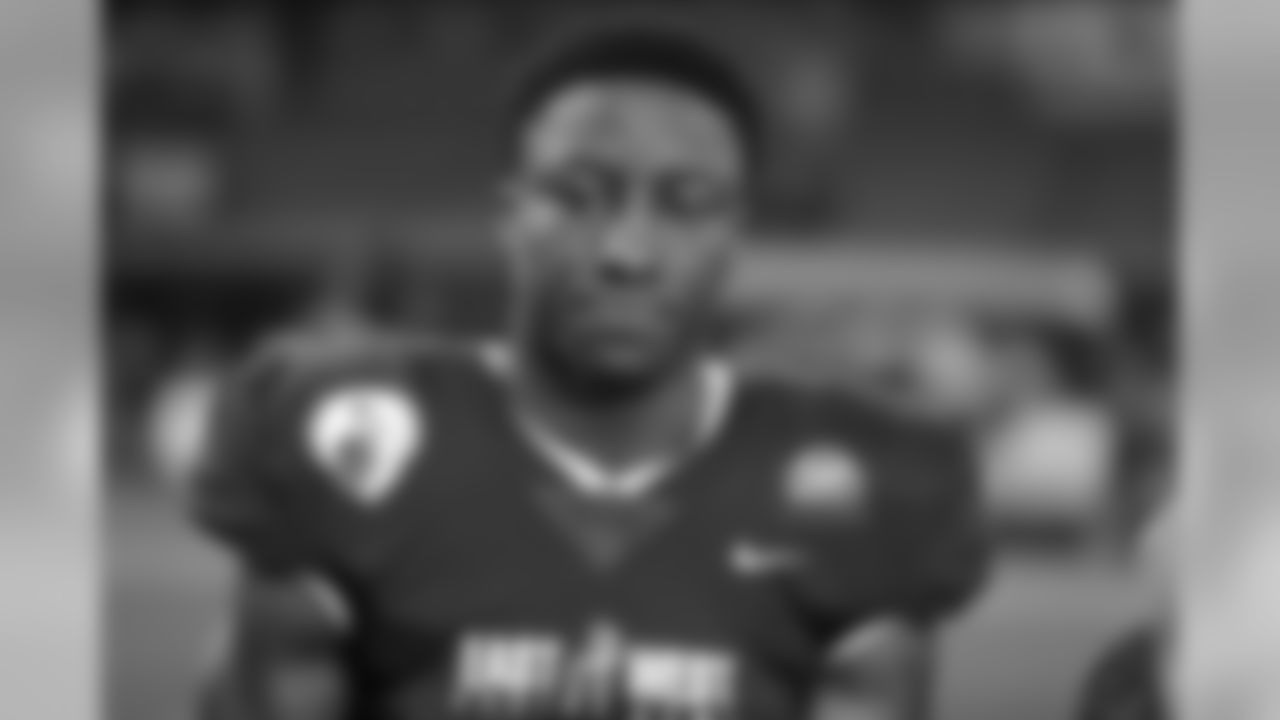
Illinois State S Luther Kirk
(AP Photo/Chris O'Meara)
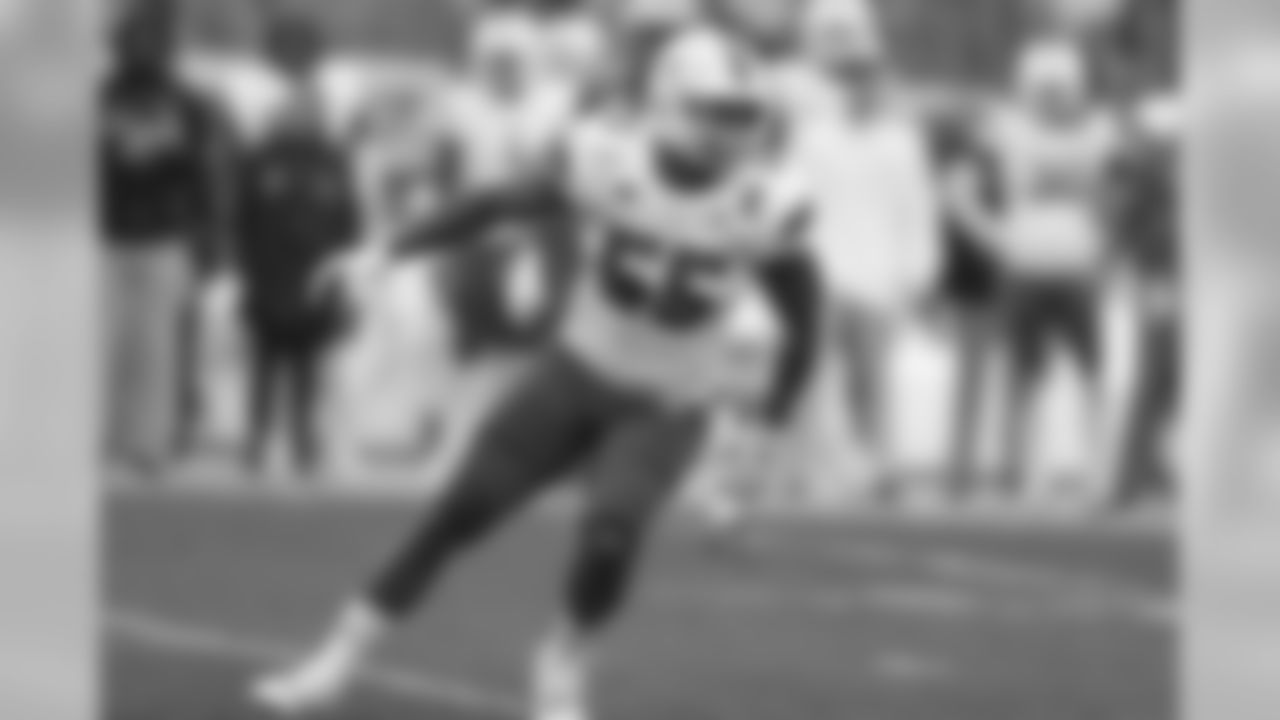
Miami LB Shaquille Quarterman
(AP Photo/Keith Srakocic)
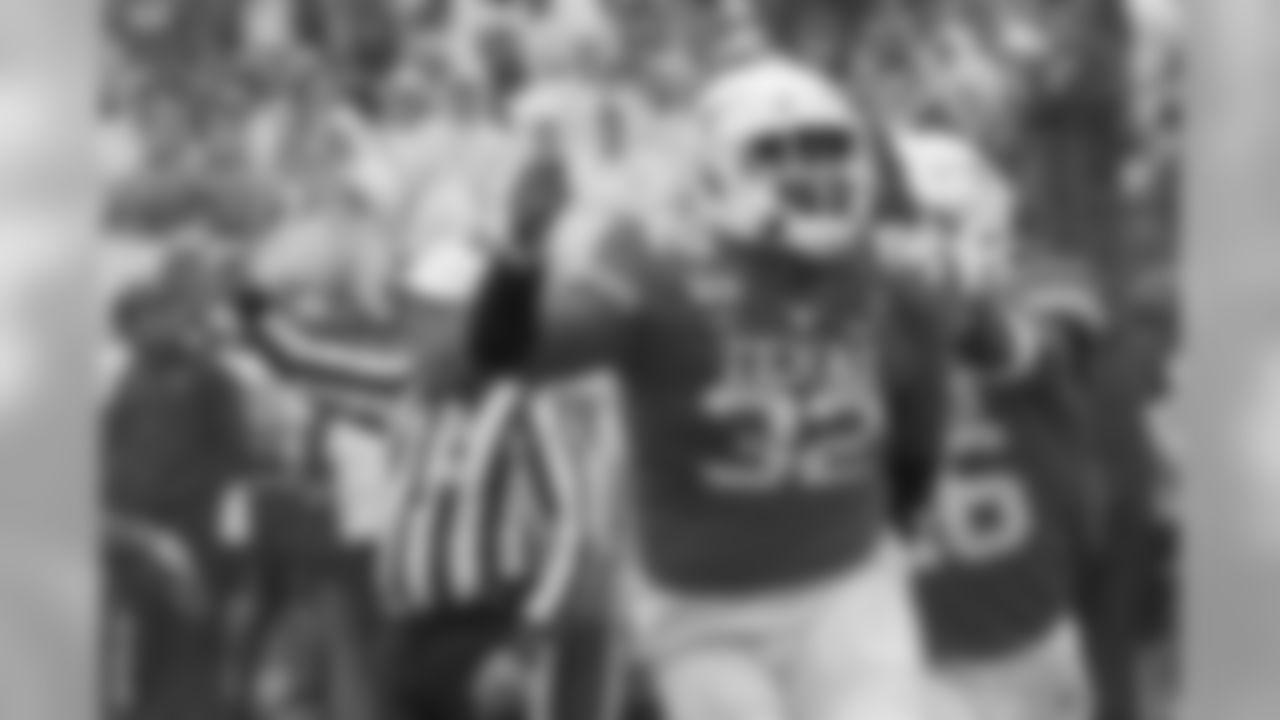
Texas DL Malcolm Roach
(AP Photo/Michael Thomas)
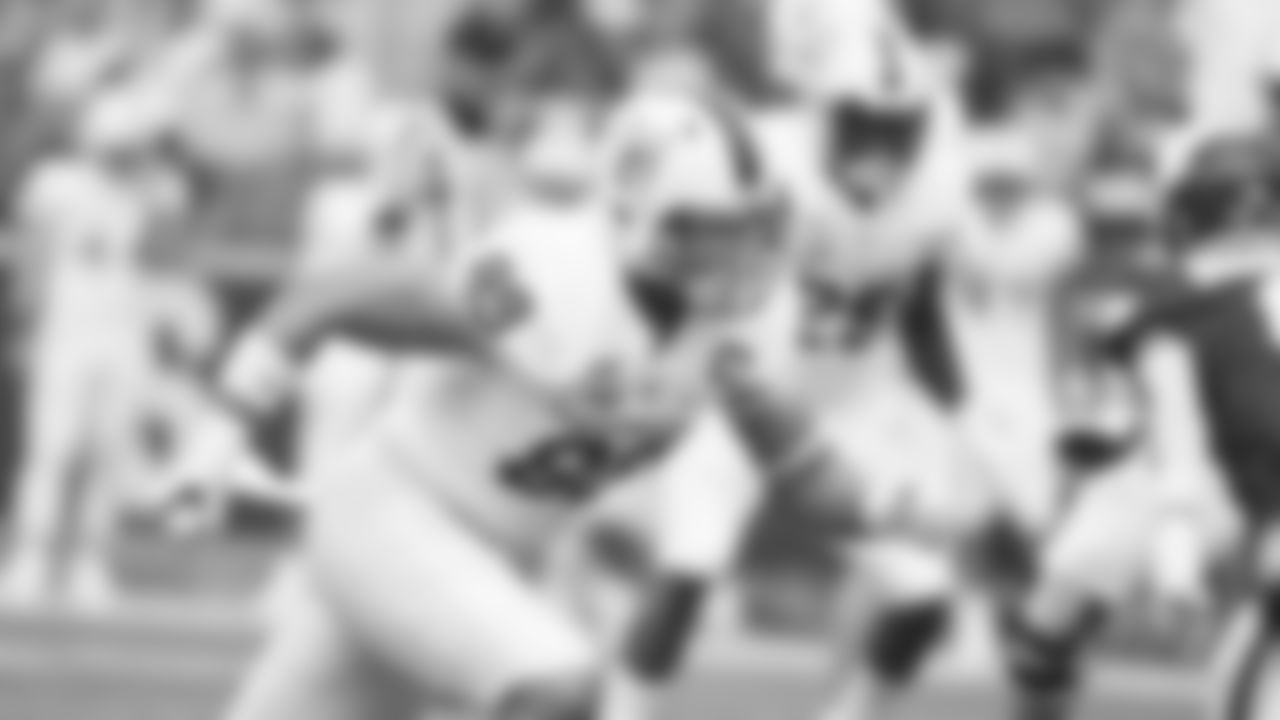
Portland State TE Charlie Taumoepeau
(AP Photo/Michael Woods)
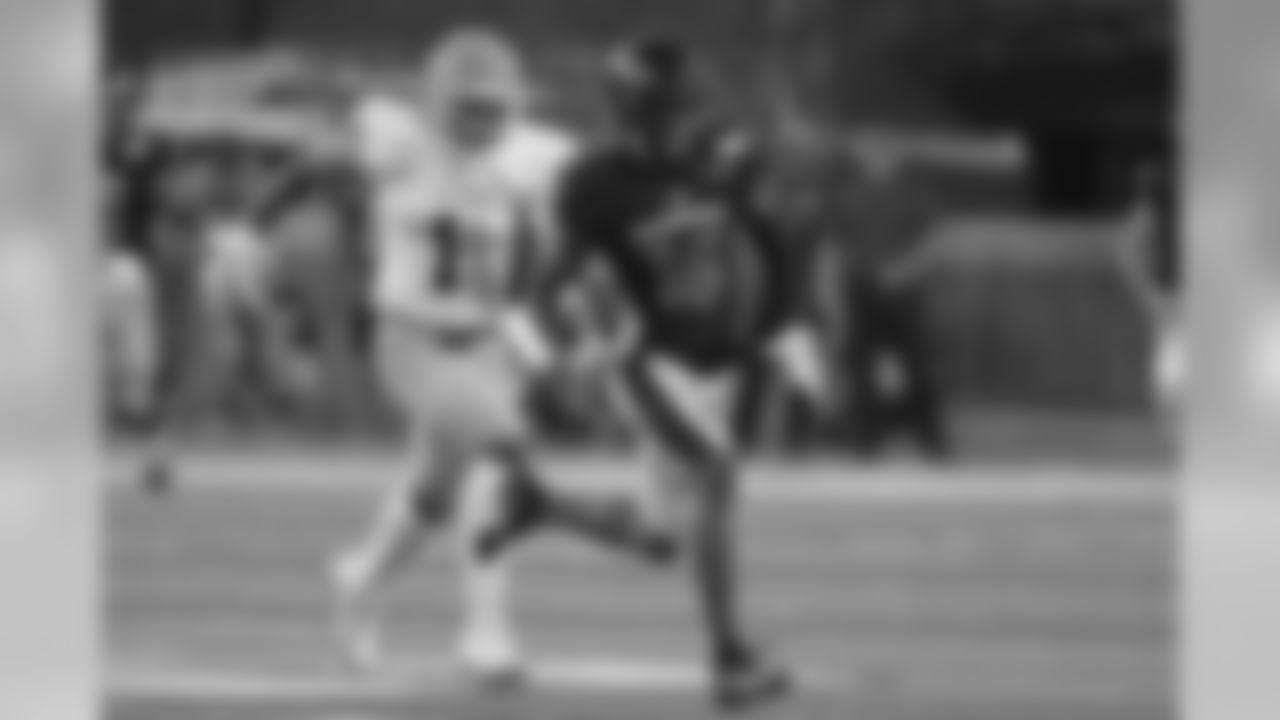
Southern Mississippi WR Quez Watkins
(AP Photo/Rogelio V. Solis)
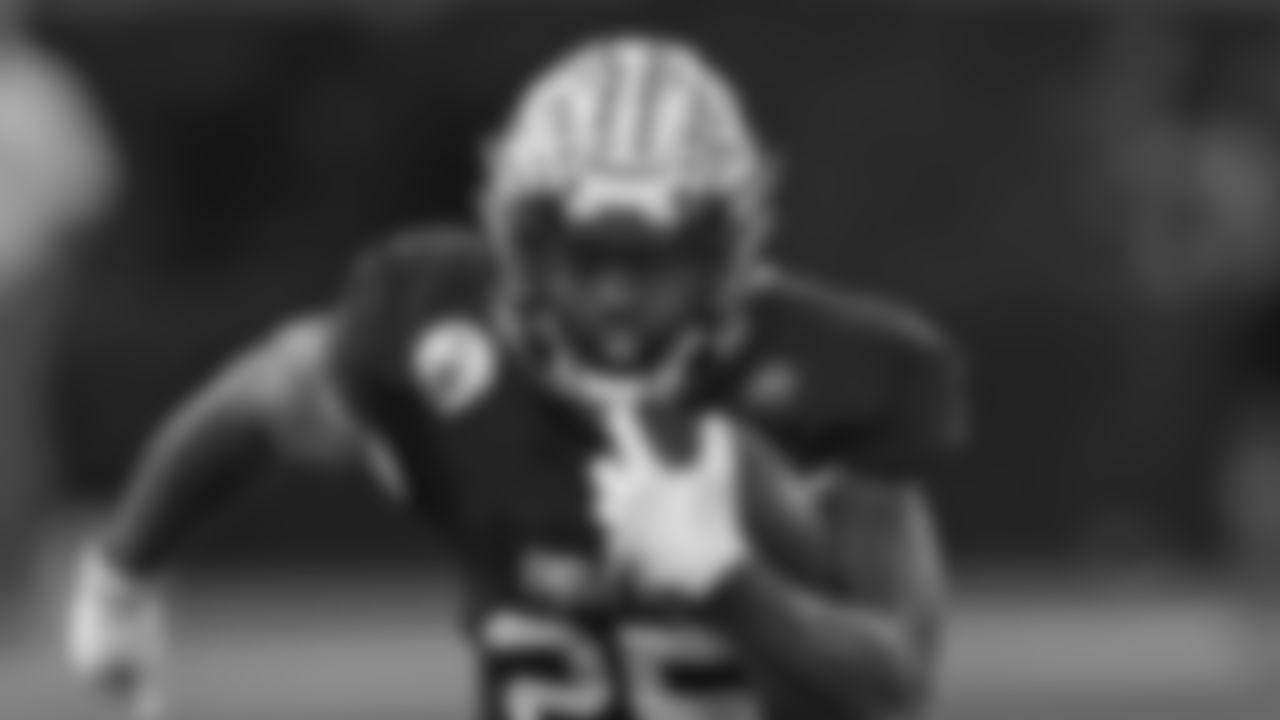
Illinois State RB James Robinson
(AP Photo/Chris O'Meara)
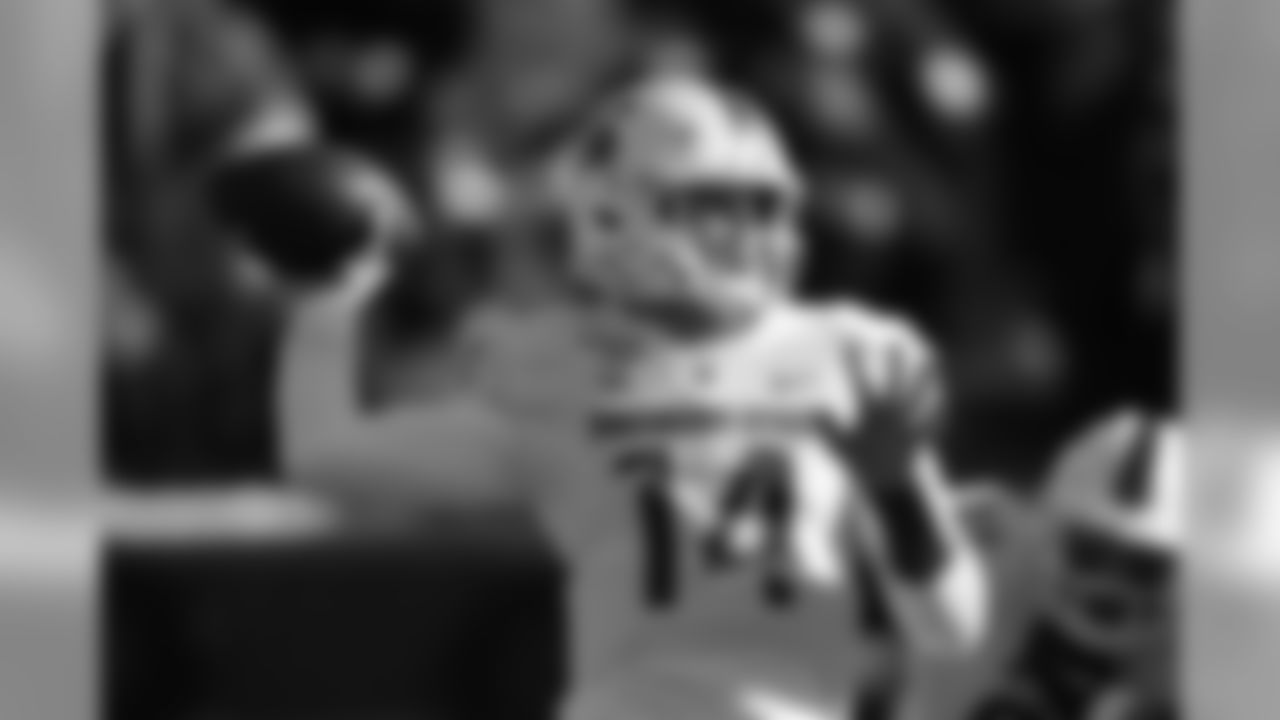
Michigan State QB Brian Lewerke
(AP Photo/Paul Sancya)
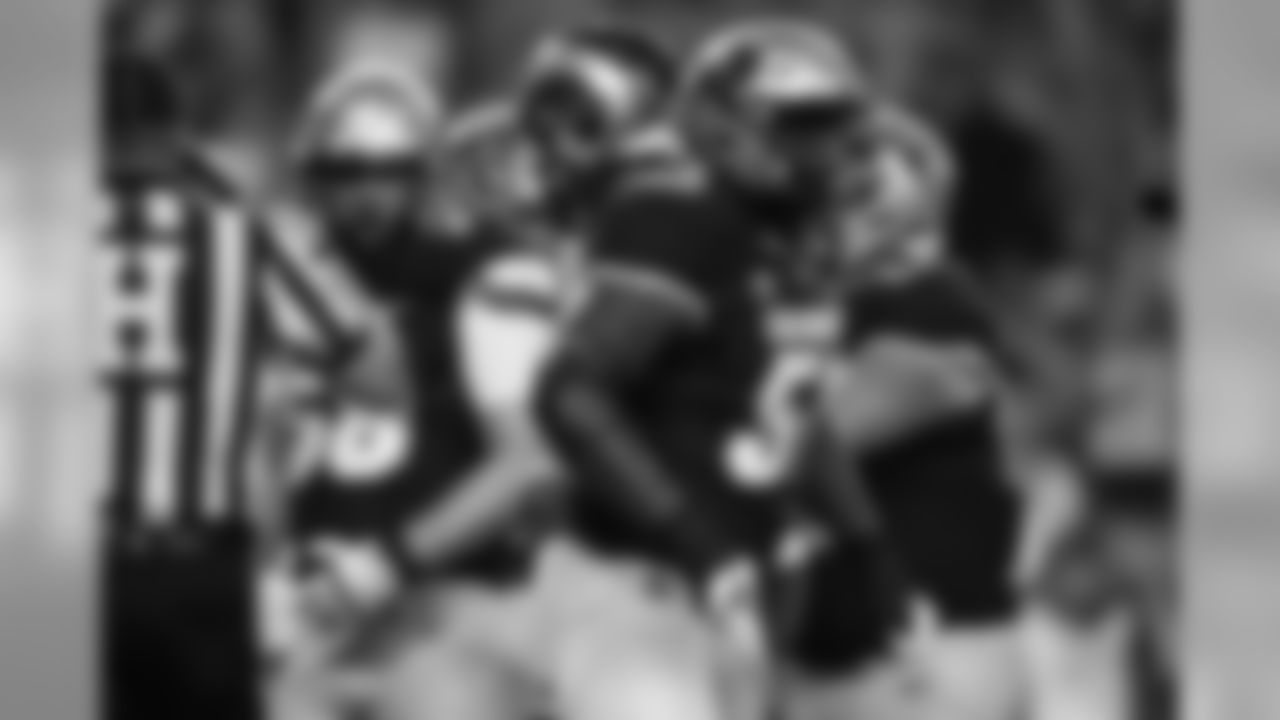
Colorado OT Arlington Hambright
(AP Photo/David Zalubowski)
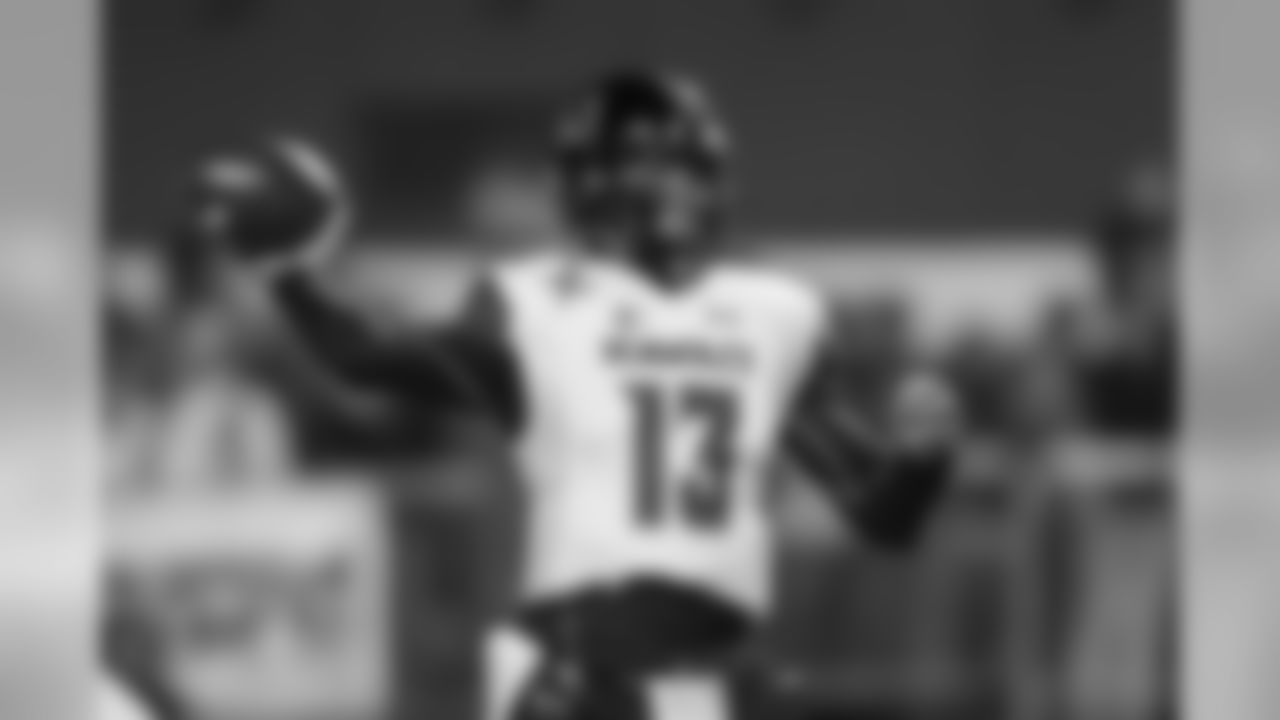
Hawaii QB Cole McDonald
(AP Photo/Steve Conner)
Q: Where does the final decision lie? Is it you? If the coaches want somebody and you want somebody else, how does that get resolved?
Gettleman: It's a New York Giants decision. That's what it is. It's completely collaborative. We just talk it through. That's all there is to it. We just talk through it. This is my eighth, ninth draft, and I've never had a big difference of opinion with a head coach. We talk it through, we discuss it. It's about coming to a consensus. We're not arm wrestling to decide who gets their way. None of that stuff. It's a consensus, it's a collaboration, and that's the best situation you can have.
Q: Should I assume that even now, a week before the draft, that most of you have a similar thought of where that first-round pick is going to go?
Gettleman: We're still discussing it. We're still discussing.
Q: John Harbaugh a couple weeks ago expressed some concern about security because of the virtual nature of the draft. Do you feel like you have things in place where you won't have to worry about any hacking or any unwanted behavior from outside the building or outside the organization?
Gettleman: I believe so. Justin Warren and Ty Siam, they're all over it. I really believe we'll be fine.
Q: We know how much work you guys put in to the offseason schedule and trying to figure out which pro days, who's going to go and where the scouts are going to end up on campus and who's coming into the building. Have you been able to replicate whatever research or evaluation process you would have from that perspective, with the video conferencing and any calls you may make, as Joe (Judge) mentioned the other day tapping into resources that maybe even more so than you'd normally use? Are you able to get out of the current situation what you would have gotten out of the entire month of March with the way you traditionally set it up?
Pettit: I think so. For the most part, we have. I was actually down at Clemson when we got called back. I started thinking in my head, 'If we don't get back out, there are things we'll miss out on.' We did such a good job throughout the fall and the All-Star games and the Combine interviewing and testing a lot of players at those venues. We were able to get a lot of that information which you get in the fall. What we did was we gathered the scouts together and we said, 'Hey, use this time now, we're not out on the road, use this time to go back and watch more film, watch the games you didn't watch, watch them again. Call the schools, call the players. Be really thorough. Now you're not going to have the opportunity to be on campus, so maybe call the academic people one more time. Maybe they'll give you a different opinion.' So, we really worked the whole fall process over again, and our scouts were great doing that. We were able to dig up some more information. The only thing really that you miss is just those small interactions that you might have being with a player personally, whether it's in our building or just on campus. There are a lot of times you're going to meet with a player privately, you're walking on campus with him and you can get little interactions that way that mean something. That's really the only thing we lost. I do think this time, because we were so prepared through the All-Star (games) and Combine, like I said, interviewing and testing these guys, I think we're pretty much on par where we would be any other year.
Q: Regarding players who at the combine either didn't work out due to injuries or choice, or some of these smaller school guys who maybe weren't at the All-Star games, can you just speak to what kind of resources or if you've had to devote extra resources towards getting information on those guys?
Pettit: The biggest part of our evaluation, obviously, is from the tape. We always use the pro days and the Combine as just a supplement, another spoke in the wheel, just to validate what we thought that they showed on tape. The players that didn't show up at those places and the pro days we couldn't get to, the players have done a good job and the scouts have done a good job of reaching out. We'll get videos of them doing some pro days but it's not the same. Again, we have to go back to what we really base majority of our evaluation on, and that's the tape. That's why we've spent the last month really going back and digging into the film, looking at it from a different lens maybe, and that's kind of helped get some of that information for us.
Q: You talked often in the past about fixing the offensive line, fixing the offensive line. Do you feel a particular urgency or pressure this year to come out of this draft with one or two offensive linemen who can help pretty much right away with Daniel Jones and Saquon (Barkley) and this team?
Gettleman: Well again, you know my theory. It's very, very difficult for Saquon to run the ball if he doesn't have holes. It's going to be difficult for Daniel to throw the ball when he's on his back. We'll continue to build the offensive line. Is it a pressure point? To a degree. I'm not going to deny that. But it's about getting the right guy. It's about not panicking. Like I said before, we think Nick Gates has a bright future as an offensive lineman. Spencer Pulley has done good work for us at center. (Jon) Halapio is coming back, hopefully he'll be ready to go and recovered from the Achilles by June. We're just going to keep working at it. Joe and I are of the same mentality that really and truly, the offensive line sets the tone for the team. It really does. I think of all the teams that I've been with that have gone to Super Bowls, the offensive lines were the tone-setters. You think of the offensive lines in 2007 and 2011 when we beat the Patriots, those groups set the tone. We're going to do everything we can to make sure we replicate that.
Q: Do you still think of Nate Solder as your left tackle period?
Gettleman: The bottom line is, and Joe said it, we're going to bring in people to compete. Everybody has to compete. Again, my thought process is we're not afraid to have too many good players at one position to answer your question. Joe knows Nate which is helpful. They have a relationship, they have a history. But we're going to bring in the best players. If they're at a position where there's an incumbent starter, then he's going to compete.
Q: From your years of doing this, how unique is the Isaiah Simmons evaluation given all of the different positions he plays? Does that make it more difficult?
Gettleman: What's happening now is there are a lot of college players like that. There are a lot of guys that because the college game is so different, they take a young man with a unique skillset and they use him in a variety of ways that maybe hasn't happened before. There are a number of guys that are being used like this. A lot of them are mid-level defenders, linebackers. You've seen they're mixing and matching their defensive linemen in a three-point but also standing up as a two-point. There's a lot of versatility going on, a lot of different ways that people are using players. It's not standard. It's not what I grew up with, that's for sure. You're seeing it more. It's up to us to figure out how that player who's been in what you're saying to me is an unconventional position, it's up to us to figure out how he fits the New York Football Giants.
Q: Aside from the technology, aside from the fact that you're home and dealing with the technology, with all the things that you guys have missed with pro days and all that, is this more of an old school draft in terms of the way you guys have to prepare for it? Does your experience and the experience of your scouting staff really help in that regard?
Gettleman: It's funny, I said that exact thing a couple of times. This is like back in the late 70s when they drafted with absolutely no contact with players. I think at the end of the day, it is a little bit old school because you're not getting the personal touchpoints that we used to have. It is a little bit old school. I just think that really and truly at the end of the day, it's really all about what the kid does between the white lines. It's not about running around in your underwear or running a 40-yard dash or doing the vertical jump or whatever. It's really about putting a lid on and playing ball. It is a little bit more old school like that. That's not all bad.
Q: What's the level of interest on the fourth pick from other teams? Is there any chance that teams are kind of waiting to see what Detroit does, since that could be a big factor on how desirable you think that pick will be?
Gettleman: We're still a week out. Really and truly, we're still a week out. We'll see what happens.
Q: How strong is your desire to possibly make a trade though? Is it something you're actively looking for? Or are you just willing to listen and if something happens to be of interest at that point, are you willing to make a move?
Gettleman: It's something I would very seriously entertain.
Q: We've talked to you the last couple of years in terms of what you've done in the top 10, how you feel in your scouting and your evaluation of Saquon and then Daniel last year, and when you knew that was the guy. Obviously, I understand there's still a consensus to be made in-house, but in your mind on the Friday before the draft, do you have the guy you want to pound the table for and convince everybody else? Or are you still going through in your mind who should be the pick for the New York Giants?
Gettleman: We're still working through it.
Q: Even you? I know the whole group is, but even you?
Gettleman: Yes, I'm still working through it. At the end of the day, I have to think long-term and short-term. At the end of the day, the decision we make will be what's best for the Giants, and it will be a collective, collaborative decision.


